

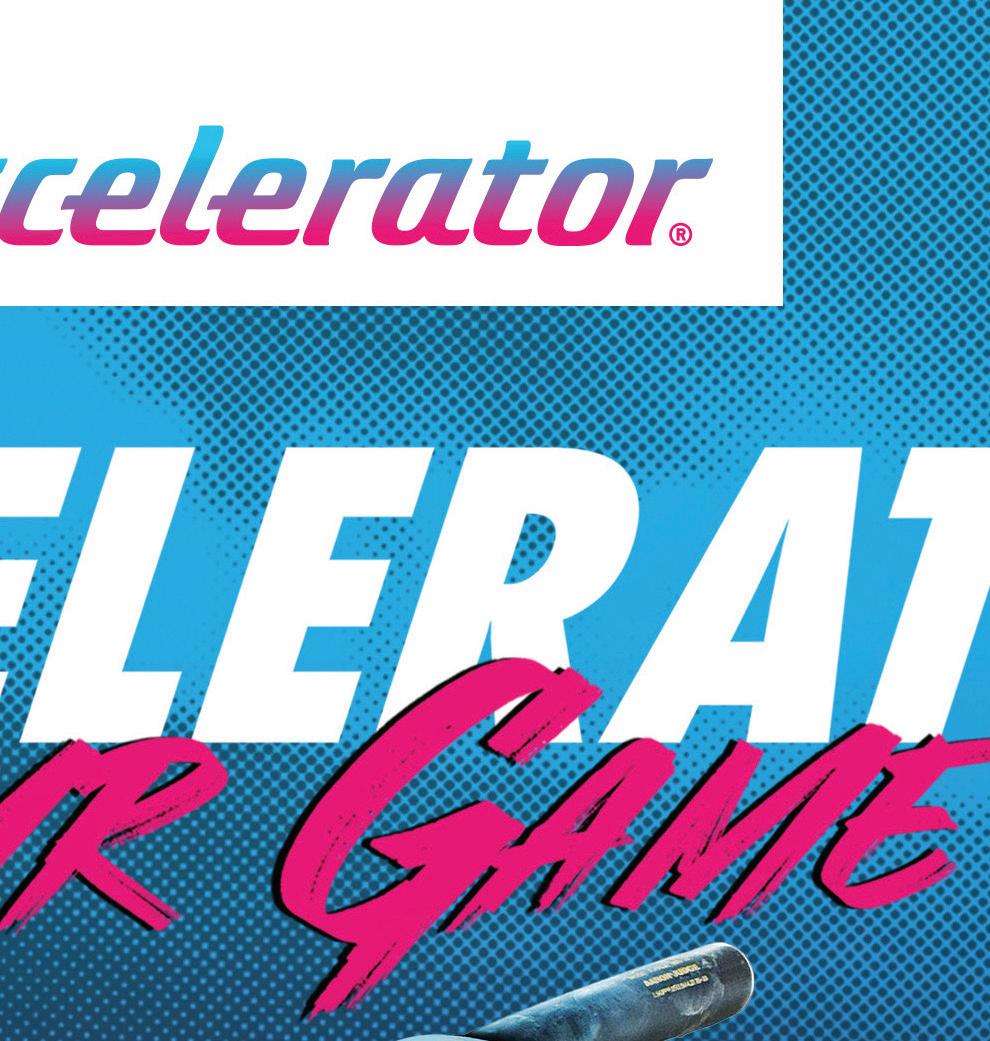










































As I write this it’s the middle of Dry January, or as my wife calls it, “the only thing the New York Times is writing about this month.”
Just about everyone in the CPG business is aware of the cultural force that this month-long voluntary draught has become since it started early last decade, but in case you aren’t aware of it, send me your email and I’ll make sure you are able to access the 700 or so press releases I’ve gotten in the past three months referencing it as a trend, re-introducing non-alcoholic spirit brands, offering up mocktail recipes, explaining the exponential growth of NA products, and generally letting me know that January is about renewal and clean living and this product has taken the market in a sober storm.
(Of course, the storm is only sort-of sober – I’m also being reminded quite regularly by a variety of THC-added beverage brands of the factoid that, according to at least one poll, about one in five participants in Dry January are getting through it while using cannabis).
Sobriety is certainly hip amongst the young folk, with Gen Z leading the charge and twice as likely to abstain than millennials. Now, since Gen Z includes kids born in the late 2000s and 2010s, we know that many in that generation are legally required to abstain, but we know that attitudes seem to be changing. One of my favorite quotes about it came during an interview on NPR’s Marketplace with Little Saints founder Megan Klein, who said she had heard a kid from Gen Z call alcohol “Boomer Technology.”
In the past couple of years we’ve seen the growth of alcoholfree bars, alcohol-free spirits stores, and my personal favorite, alcohol-free hard seltzers. We know we’re expecting to see even more offerings in the future. But, in a question that many drinkers face themselves, how much is too much? Let’s look at the opportunities vs. the hype.
One good aspect of this near-universal disarming of drinks has been the massive renaissance in the alcohol-free beer industry. Watching companies like Athletic Brewing become one of the fastest growing craft breweries in the country, tasting products from established breweries like Dogfish, enjoying the craft nature of beer analogs from Hoplark has helped establish that good beer doesn’t necessarily have to have alcohol in it. And that’s great, because beer is a year-round drink, one that often is consumed repeatedly during a particular drinking “session,” and one that has near infinite scale and variety as a category.
In other words, the success of NA beer relies more on brewers’ ability to produce a terrific product with repeated use occasions that lines up with more than just a month of sobriety.
As an aging beer drinker, I’ve started to join the ranks of those who occasionally mix in an alcohol-free beer into my sessions because I know that it’s good to take breaks, particularly at my age. Pacing is important. Not only are there lots of aging beer drinkers, there are lots, and lots, and lots of beer drinking occasions. The growth of NA beer makes sense because it covers more than just the occasional cocktail party or bar outing, but that enormous range of situations when beer is the default drink of choice. As a product derived over the centuries in large
part for refreshment (even hydration!), beer is ubiquitous. The notion that one could engineer booze out and still create that refreshment, and the ability to put it in so many of the places that beer already thrives, is so good that it isn’t even revolutionary –the trick to so many of these products isn’t that they’re alcoholfree, it’s that they’re a massive improvement on the alcohol-free beers that consumers have previously become resigned to. Just like the craft beers that came before them were a qualified improvement over many of the beers already on the market.
Despite massive growth seen at places like the Fancy Food Show, and even predictions from the experts that we’re going to see a massive expansion in brands and sober lifestyles, the idea that we’ll see a big set of winners in NA spirits isn’t as clear to me. For one, it still seems to be powered by the idea that it’s what’s missing that counts, as opposed to a quality improvement on what exists already. First, let’s look at pre-mixed drinks: there are a vast array of non-alcoholic products – soft drinks – that don’t have alcohol already and tend to substitute for highballtype cocktail blends. That’s not to say that the idea of a nonalcoholic gin and tonic or Paloma isn’t totally unpalatable, but rather that so many tall drinks have soda or soft-drink based analogs that it cuts pretty heavily into the total potential market. You get the impression that there’s a thundering herd of brands heading for a tiny hole in the fence. One or two might squeeze through, but don’t expect them to create a massive market.
Now, let’s talk basic spirit substitutes, or the Lyres and Seedlips of the world. Can there be complex, interesting spirit substitutes that have a solid price point and are viable in a “treat” environment – both for the temporary abstainer or the long-term teetotaler? Sure. Judging by my inbox, there are dozens aiming to fill that role, but their existence is constantly pegged to a market that appears, Brigadoon-like, every January. An optimistic reading is that Dry January’s long-term effect is to create a market among an expanding set of sober-by-choice consumers, but even then the growth is hardly going to sustain the number of brands we’re seeing right now.
More concerning for me is that there’s a hint of opportunism that creates a market out of those who are sober because they have to be, as opposed to by choice. There’s already some medical data that indicates these kinds of products are likely to cause relapses for those in recovery, and a lot of them just won’t risk it, anyway. This kind of product shouldn’t be used to create social pressure for those in recovery to stick around in places where they might not otherwise want to be. Sobriety can be hard enough without wandering through a thicket of products that claim to offer an accurate substitute for one’s addiction.
That also applies for NA beers, of course, but there’s a market for active drinkers there as well. How many “flexitarian” beer drinkers there are will ultimately determine the size of that market, and I’m betting its many pallets bigger than those who are going to spend the dollars to habitually nurse a bottle of faux gin, no matter how close it might be to the real thing. Naturally, there will be winners, but basing a gold rush on one dry month is going to lead to a long hangover indeed.

As I write this, it’s Martin Luther King Jr. Day. I love that we have an opportunity, annually, to commemorate the extraordinary life he led. His impact on society was both concrete and inspirational. He set an example of what can be accomplished when you have goodness of heart, and clarity of purpose. The fact that it has morphed to a “National Day of Service” is the best way to honor his legacy.

The day got me thinking about the role of the beverage business in helping to change the world for the better. Over the years I’ve met with so many entrepreneurs, from the largest of companies to the smallest of brands. They are an impressive lot. Our conversations have almost always touched on how they started their brands, their strategies, logistics and distribution, but the best ones also focused on the “why” of the decision. We broached their difficulties and failures with honesty. I guess when it comes to sharing a journey, I’m a comforting person. There have been so many success stories, some modest, some bona fide jackpot winners, but as we all know, the failure rate of beverages is high. One thing I always find reassuring, however, is that for so many entrepreneurs, while the
focus is always on the success of their brands – as it should be – they want to do more than just make a ton of money.
It is well documented how the major beverage companies support so many causes, way too numerous to mention. Combined, it’s hard to find a charity or cause that they don’t have their signature on. Aside from being the right thing to do, it’s also smart marketing and positioning. Doing good for their communities is the right business. Hopefully the motivation is pure, but either way, good comes out of it.
Nevertheless, I look to the small brands that really set an example for what I think really comes from the heart. So many of these innovative brands align with charities and causes. They set aside a percentage of their revenues and/or profits to help organizations of every ilk. Whether it’s environmental causes, agricultural movements, or illuminating the plight of people in need, beverage companies have always stepped up to the plate. It is an admirable trait of these special people. I hope that someday every company will help contribute to society, but for now, I thank those that do, from the bottom of my heart.
www.bevnet.com/magazine



Barry J. Nathanson PUBLISHER bnathanson@bevnet.com
Jeffrey Klineman EDITOR-IN-CHIEF jklineman@bevnet.com
Martín Caballero MANAGING EDITOR mcaballero@bevnet.com
Ray Latif CONTRIBUTING EDITOR rlatif@bevnet.com
Brad Avery REPORTER bavery@bevnet.com
Justin Kendall NEWS EDITOR, BREWBOUND jkendall@bevnet.com
Carol Ortenberg EDITOR, NOSH cortenberg@bevnet.com
Adrianne DeLuca REPORTER adeluca@bevnet.com
SALES
John McKenna DIRECTOR OF SALES jmckenna@bevnet.com
Adam Stern SENIOR ACCOUNT SPECIALIST astern@bevnet.com
John Fischer ACCOUNT SPECIALIST jfischer@bevnet.com
Jon Landis BUSINESS DEVELOPMENT MANAGER jlandis@bevnet.com
ART & PRODUCTION
Aaron Willette DESIGN MANAGER
Nathan Brescia DIRECTOR OF PHOTOGRAPHY BEVNET.COM, INC.
John F. (Jack) Craven CHAIRMAN
John Craven CEO & EDITORIAL DIRECTOR jcraven@bevnet.com
HEADQUARTERS 65 Chapel Street Newton, MA 02458 617-231-8800
PUBLISHER’S OFFICE 1120 Ave. of the Americas, Fourth Floor New York, NY 10036 646-619-1180
SUBSCRIPTIONS
For fastest service, please visit: www.bevnet.com/magazine/subscribe email: magazinesupport@bevnet.com
BPA Worldwide Member, June 2007









So now we’re in financial market with a completely different vibe than just 18 months ago. The same investors, it seems, whose exuberance blew newly public issues into stratospheric valuations have suddenly turned very sober, holding those same targets to standards of financial discipline that never were mentioned during their road shows. Less visibly, it hasn’t been much different on the private side, with the recipients of tens of millions now taking severe haircuts on valuation. Look at oatmilk giant Oatly: never a word said about immediate profitability in its road shows (and never a word asked, that I recall), yet it arguably underpriced a share offering that soared from a valuation of $10 billion to $13 billion upon its debut. Oatly’s executive team could not have been clearer that all discretionary cash flow would go toward building new plants all over the world, following its highly integrated production model. Now of course, it’s getting hammered on the Street, despite generally meeting its commitments on sales growth and continuing that global plant buildout with surprisingly few glitches, given the current period of supply chain snarls. Like others, it’s now pursuing an asset-light model (or asset-lighter, anyway) and assuring investors it’s aiming for profitability.
Shifts like these are all the more necessary because of a complementary shift occurring on the side of the strategics who’re usually the ultimate buyers of emerging beverage brands. Many have come to the realization, perhaps with an extra nudge from the portfolio prioritizing that the pandemic demanded, that their old model of partnering with early-stage brands to build the next big platforms didn’t really work. At least, not in any way meaningful to multibillion-dollar multinationals that need serious growth increments, and quickly, not modest additions that add complexity but not enough topline heft to impress investors. We’re still seeing deals getting done, with Keurig Dr Pepper particularly active with its Athletic Brewing and Nutrabolt alliances, but even those are explosively growing brands and, in C4 Energy’s case, beyond trivial size.
From this perspective it doesn’t hurt to look at Coca-Cola’s influential Venturing & Emerging Brands incubation unit, whatever exactly is left of it these days. In over 15 years of existence, it’s plied a conscientious course trying to uncover trends driving consumer behavior and the outside brands that might fill them. From what I’ve heard it’s always operated honorably and has been an enthusiastic champion of beverage innovation (including by sponsoring BevNET’s own Showdown competitions). Yet what does it really have to show for all the hard work? It may have fumbled some key investments, like the coconut water brand Zico, but it also did pretty well by its Honest Tea investment, carefully onboarding it into the broader bottling system, maintaining its organic credibility and commitments to the growing community. At least, until this past year, when it shocked the beverage world by announcing that this brand would be sunsetted. Even after a decade-plus in Coke’s grip, Honest was well shy of the billiondollar sales level by which the company measures innovation successes and simply wasn’t worth the - minimal - focus and space on the trucks any more. So even what might be viewed as VEB’s best success proved inconsequential to a behemoth like Coke.
That’s a sobering conclusion. There seems to be a similar rethinking going on among most of the big beverage and beer players. After all, why should they expect different outcomes?
For those in the innovation space there’s a very interesting offshoot of those twin forces. If most of the strategics are disillusioned with the incubation model, and the investors are risk-averse, then early-stage brands need to come up with a new model beyond blowing up the top line at any cost to win the notice of would-be acquirers. Lately, several operators and deal-makers have been pointing to the emergence of this model as a kind of safe space where brand-builders now can ply their craft unmolested by deep-pocketed multinationals with priorities that can shift on a whim. Not a backwater, exactly, but at least a more placid pool where the big guys are less likely to fish, either as acquirers or by launching knockoffs. At Vita Coco that’s explicitly underpinning their ambition of becoming a multiplatform player in coconut water and adjacent categories. At the recent ICR investor conference, CEO Martin Roper spoke of how even a $100 million brand might be viewed as “niche” in the current climate. So the longer-term plan he’s hatched with executive chairman/co-founder Mike Kirban is to grow or acquire one or several brands in that range that move through similar channels to the core coconut waters. Those are “niches the big guys wouldn’t worry about,” he figures.
Zico’s founder (and restored owner) Mark Rampolla, who runs the PowerPlant Ventures investment shop, sees the planets aligned for a range of operators who can be stewards of these mid-range brands. The strategics, he blogged, are “clearly not interested in managing hundreds of small, niche brands under their existing umbrellas – and we’re starting to see roll-up companies fill the void. Before long, I expect there will soon be a new group of public, multi-brand companies that take over and fill this void.” Or privately held ones, I would add.
Of course, beverage roll-ups haven’t exactly had a brilliant history. New Age Beverage alone would have been enough to tarnish that notion with its discredited push to acquire troubled brands cheaply with a view to tapping synergies. That never materialized, and the company veered into the get-rich-quicker realm of multilevel supplement marketing and eventually spiraled into bankruptcy. But it never really invested in those brands, and some already had had their shot and failed. There’s a wry comment I’ve heard over the years about how this idea of pooling a pair of weakened brands in the hope they can unlock some synergies is not much different than two drunks propping each other up at the bar. Platform operators like Vita Coco with a sizable, established brand and demonstrated history of responsible fiscal stewardship are a different story. Talking Rain and AriZona Beverages might similarly qualify, but so would a bunch of earlier-stage companies trying to suss out their ultimate goals.
This changed landscape likely will preference a different breed of entrepreneur, those who’re not just about the adrenaline rush of blowing up the topline for a quick flip – “carpetbaggers,” I sometimes call them – but rather those who genuinely enjoy engaging in the daily challenges of the business without any timeline of when to move on.
Just in the iced tea business we can point to the likes of AriZona, Milo’s and Joe Tea as patient, family-run businesses that have demonstrated impressive commitment and staying power. And hey, those young surf dudes at acai pioneer Sambazon have certainly surprised me by how long they’ve stuck around – 22 years and counting. Personally, I’d like to see more of these patient, long-term players “out here in the middle,” to cadge a song title from James McMurtry. As the smalltown paramour sings to his big-city girlfriend in that classic, “Wish you were here, my love.”
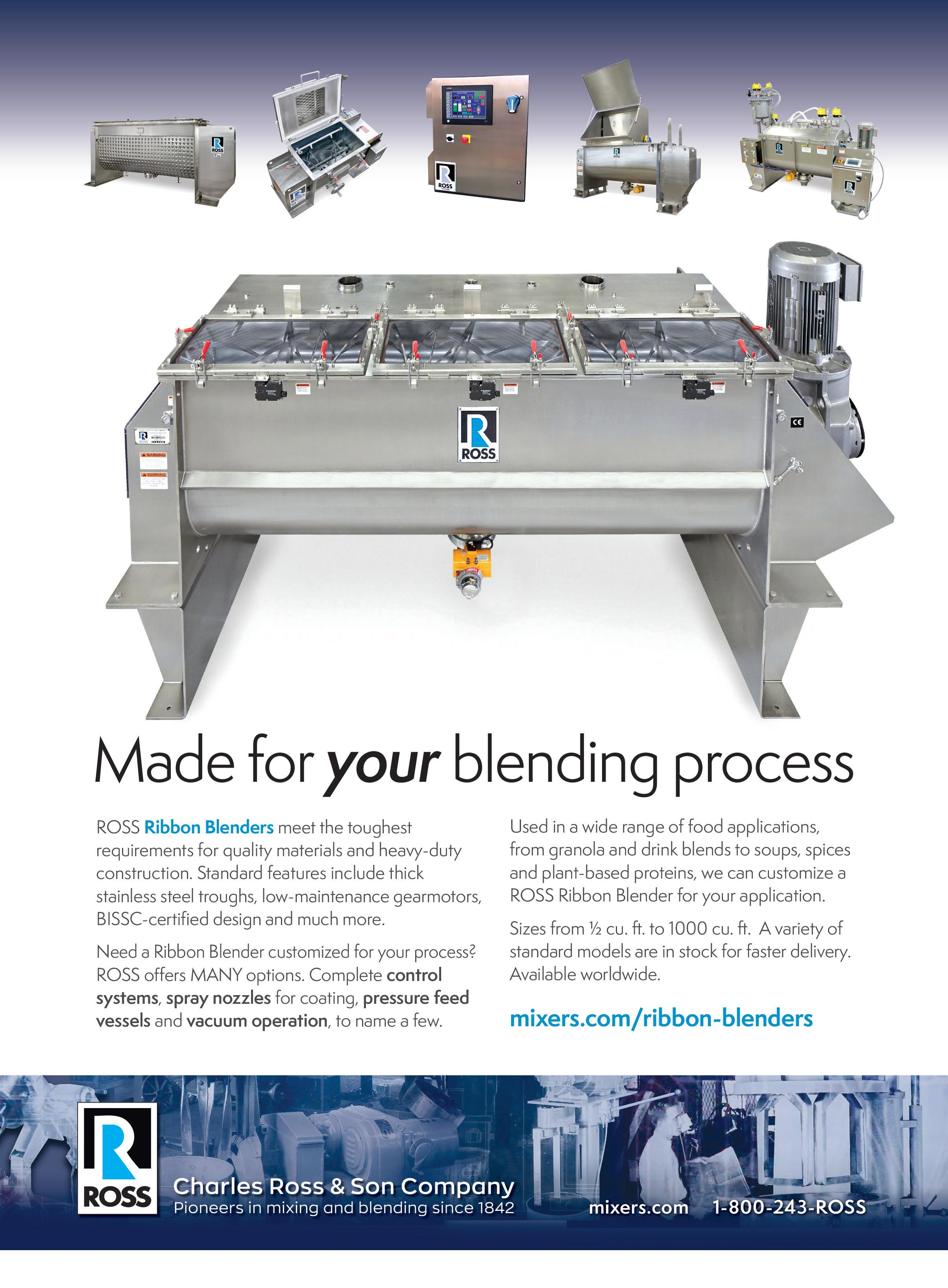
















Colorado-based beverage maker Hoplark is separating into two subsidiaries: Hoplark, which will oversee the core brand as it currently exists, and Hoplark Labs, a tech-driven division that will launch new beverage brands and products under the leadership of the company’s founder, Dean Eberhardt.
The restructuring, announced to employees, which went into effect on January 1, represents a significant new chapter for Hoplark, which debuted its flagship line of non-alcoholic hopped teas in 2018. Created by Eberhardt as a flavor-forward alternative to craft beer, the brand has become one of the fastest-growing names in natural CPG, and has since expanded nationwide into categories including sparkling water and nonalcoholic ‘beer.’

Hoplark Labs is intended to use the company’s learnings from the past four years as fuel to continue pursuing beverage innovations that go beyond the core brand proposition, Eberthardt told BevNET in December. In turn, the move will put the Hoplark brand in experienced hands of former DRY Soda and General Mills executive Betsy Frost, who was promoted from Chief Commercial Officer to Hoplark CEO.
“It’s a super exciting thing for me because it’s really my core passion and the thing I love more than anything,” Eberhart said. “It’s not a normal thing to do four and a half years into a crazy beverage startup, but I think it’s the right thing — clearly the right thing for me and I think clearly the right thing for the company.”
Over the years, Hoplark has built its identity around creative flavors, unique label designs and limited edition varieties like its “explorer” series, and Eberhardt remains committed to those as foundational elements. But he also acknowledged that his “desire to push the envelope on stuff might be a bit distracting.” At the same time, promoting Frost, who joined the company in May, to the top job brings operational expertise at a time when Hoplark is doing “way more than we’ve ever done,” including onboarding 3,000 new doors in an eight-month period.
Eberhardt will remain in his executive chairman role at Hoplark and continue to “support the team at the executive level and at the innovation level,” as well as tinkering with process engineering as needed.
“That cultural separation allows for, most importantly, the Hoplark brand to really finds its identity and lose a bit of some distracting elements of trying all the stuff that we try and different things that have been going on and really focus directly on this incredible market opportunity,” he said.
In Eberhardt’s new role, creating “distractions” is unlikely to be an issue. Though the two subsidiaries will share the same parent company and ownership, he explained that Hoplark Labs plans to create its own brands and products in other beverage categories that will “probably” be separate from the Hoplark brand, in addition to designing and creating beverages for
clients. The Hoplark brand will continue to run its own R&D department, but there will be some “overlap” between the two organizations, and Eberhardt didn’t rule out Hoplark Labs developing a product that “gets reinserted back” into its eponymous brand.
“We’re picking our spots for where we think we have a really strong brand voice and perspective, but going to also create it for others,” he said.
As for what may come out of Hoplark Labs, Eberhardt said to expect drinks featuring “real ingredients brewed with craft techniques,” and created with patented tech IP and applications. The past four years have yielded significant learnings on how to work with fresh ingredients — the company does not use flavorings, extracts or concentrates — that have encouraged Eberhardt to push further into bold flavor experiments, some of which require going further downstream in the supply chain. He cited the challenge of finding fresh juniper berries — hard to find in a market set up for dried berries used in gin.
“The other thing that we’re able to do with the technology is extract different layers of flavor than other people are extracting right now,” he said. “So we can extract fresher, brighter flavor notes and characteristics because of how we process it, and because of how we source it to actually turn an ingredient that might be thought of a certain way into a completely different experience.”
Hoplark Labs officially got off the ground in January, but Eberhardt has already laid the groundwork for new partnerships that will be announced within the next few months, he said, likely followed by “thoughtful” product rollouts in specific regions by summer.
On a personal level, the pivot has been unexpectedly revealing for Hoplark’s founder, particularly after spending the last 16 years operating his family’s manufacturing business.
“Although I may be really quite good at (operating and building businesses) the unexpected result of launching Hoplark might be that it’s possible that I’m great at developing innovative taste experiences that connect to market opportunities. I did not totally see that coming.”








Keurig Dr Pepper (KDP) has entered a strategic partnership with C4 Energy producer Nutrabolt and will invest $863 million for a 30% ownership stake in the brand, along with distribution rights, the company announced in December.
Based in Texas, Nutrabolt produces a variety of fitness and workout powders and supplements, including C4 Pre-Workout and post-workout recovery brand XTEND. C4’s ready-to-drink energy line, introduced in 2018, has become its fastest growing product – with retail dollar sales up 140.4% to $299.2 million in the 52-weeks ending November 19, according to NielsenIQ.
According to a press release, the deal is expected to “meaningfully increase retail availability and household penetration” for C4 as KDP onboards the energy drink for mainstream retail distribution. The transition will begin next year.

Nutrabolt will continue to distribute C4 both directly and through its existing distributors for the specialty, health club and fitness channels, as well as continuing to work with some of its existing beverage distribution partners in select markets.
“This partnership represents a win-win transaction between our two companies,” KDP CEO Bob Gamgort said in a statement. “KDP gains significant presence in the rapidly growing performance energy drink market and Nutrabolt gains access to a strategic investor with extensive sales and distribution capabilities to further accelerate its growth.”
KDP’s cash investment was expected to close by the end of the year and will reflect approximately $740 million net of anticipated cash tax benefits. The conglomerate will receive preferred equity with 5% annual coupon paid in cash or inkind and its 30% ownership stake will make it the second largest investor in Nutrabolt, behind founder, chairman and CEO Doss Cunningham.
The investment “represents a multiple below 4x estimated 2023 net sales” of C4, which are expected to surpass $650 million, the release noted.
KDP will also have the opportunity to “earn additional equity tied to in-market execution” and will gain seats on Nutrabolt’s board of directors. KDP also will have the ability to increase its ownership stake in the future “under various capital raising scenarios.”
“This strategic partnership will supercharge C4 Energy’s current growth trajectory by accelerating household penetration, enhancing distribution and strengthening our overall
commercial capabilities. We will also be partnering with a talented and ambitious leadership team who shares our values, our competitive spirit and has a similar philosophy of disciplined growth and maximizing overall value creation,” Cunningham said in the release.
The deal marks another major shift in the performance energy space, following PepsiCo’s breakup with Bang Energy and its subsequent $550 million investment and exclusive distribution agreement with CELSIUS last summer. It may also be another blow to independent beer distribution houses who have been subjected to major flux over the past several months as CELSIUS exists and Bang has worked to rebuild its independent network.
It wasn’t immediately clear what the role of influential New York DSD house Big Geyser may be for C4 in the future. While Nutrabolt said it intends to retain select distribution partners for C4, no specific companies were named. Big Geyser previously secured an exception to CELSIUS’ PepsiCo partnership in order to continue distributing the brand.
Among the top selling brands in the new generation of better-for-you and performance energy, C4 was one of the few without a strategic partner. As the space has accelerated, corporations like Anheuser-Busch (GHOST) and Molson Coors (ZOA) have aligned with independent brands.
C4 is not the only performance energy brand in KDP’s portfolio either; the company previously partnered with entrepreneur Lance Collins to launch A Shoc in 2019 and serves as the brand’s national distributor. While A Shoc closed a $29 million Series B funding round in 2022, the brand has often struggled to break out within the crowded energy category. According to IRI, A Shoc sales were down -18.9% to $51.5 million in the 52-weeks ending October 2.
The announcement comes over a year after KDP said it intended to increase M&A activity and improve its distribution network, during an Investor’s Day webcast in October 2021. The company previously acquired Canadian non-alc canned cocktail brand Atypique in June.
An August report that KDP was in talks to acquire Bang Energy at a $2 to $3 billion valuation was swiftly denied by the company.
Ahead of the partnership, Nutrabolt boosted its leadership team; in November the company announced a new CMO, veteran marketer Robert Zajac, and new EVP & Chief Growth Officer Sabba Naserian.








Powered by Real Food From the Ground Up has acquired Velocity Snack Brands Opco, LLC (VSB), the owners of puffed chip company Popchips.

Terms of the deal, which closed in November, were not disclosed. Amit Pandhi, CEO of VSB, as well as executives from Powered by Real Food From the Ground Up declined to comment for this story.
“This addition expands our roster of brands and positions us to be your go-to partner for better-for-you snacks,” a notice sent to retailers late last month said. “Adding Popchips to the portfolio is true to our beginning, we never stop evolving, and striving to give consumers what they want. It’s been a core value to our company from day one. The expanding Powered by Real Food From The Ground Up portfolio positions us to meet all your needs.”
Entrepreneurs Keith Belling and Patrick Turpin founded Popchips in 2007, a year later selling venture firm TSG a reported 30% stake in the company for $25 million. Belgian private equity firm Verlinvest went on to purchase the majority of the company, including TSG’s shares, in 2012.
Popchips had less than $5 million in sales when TSG invested, but, boosted by celebrity endorsers like Katy Perry and a sales team laden with veterans of the Vitaminwater brand,grew annual sales to $75 by 2012. However, at the time of the acquisition by VSB, Popchips was reportedly struggling with distribution and manufacturing issues, both impacting sales.
As of March 2022, when the VSB began investigating new financing options, Popchips reported 234 trade points of distribution, according to the U.S. MULO SPINS/IRI data included in the prospectus. The company reported 4% household penetration, far lower than the 26% and 8% of other better-for-you snack brands SkinnyPop and Popcorners, respectively. With a 29% increase in dollar velocity growth year-over-year, compared to the 15% seen in the “better-for-you” snack category, there was potential to see dollar gains by driving distribution.
“As the pioneer in BFY snacking, Popchips enjoys strong consumer awareness and is highly coveted by the most desirable cohort of snacking shoppers,” the prospectus said. “Popchips remains one of the only independent snack brands of scale and is well positioned for long-term growth.”
VMG was “open to a variety of alternatives” regarding financing, ranging from an outright sale of the brand to partnering with a new investor as they “strongly believe[d] in the long-term potential of the brand,” the prospectus noted.
Despite impressive growth, Popchips faced a limited pool of publicly traded strategic acquirers. PepsiCo acquired Popchips competitor Popcorners in 2019, while Hershey’s Amplify has been noticeably quiet when it has come to acquisitions in recent years. B&G previously announced its intentions to exit the snacking set and is seeking to sell its Back to Nature snack brand.
Under Pandhi’s leadership, Popchips achieved its first profitable quarter ever in 2021 and first profitable year in 2022, reporting roughly $50 million in sales, according to a prospectus sent to potential acquirers.
Those gains have come against the backdrop of $4.5 million in cost savings generated by cutting payroll and switching from company-owned manufacturing to a co-packer. Freight and warehousing expenses were also cut 11%, under VSB’s ownership, while over 120 employees were dismissed. VSB executives also slashed the company’s SKU count from 64 to 21 by streamlining pack size options and dropping the company’s Nutter Puffs and Ridged Chips in order to focus on the core product line.
The snack brand also is a private label partner for Aldi, Kroger, and Safeway.

Enter Powered by Real Food From the Ground Up Founded in 2018 as a portfolio company of investment and incubation platform Halen Brands, the company produces grain-free, vegetable-enhanced salty snacks under its Real Food From the Ground Up brand, as well as its newly launched You Need This brands. Halen Brands, and the firm’s founder Jason Cohen, exited the company in 2022, with president and CEO Aaron Greenwald subsequently assuming control.
When VMG announced the acquisition of Popcorners, and creation of the VSB, the firm planned to acquire and build a platform of snacking brands that could share common back office functions, such as finance and operators while also offering a portfolio of snacking options during a single sales call. However, that path never came to fruition. The capital for VSB came from VMG’s fund IV, and once the VC group moved onto Fund V in 2021, the potential for any future investment or acquisitions became unlikely.
VMG general partner Wayne Wu declined to comment as to the history of VSB or the Popchips sale.
Less than two years after the baking mix brand was sold to Sovos Brands, Birch Benders announced in January it had been acquired by baking platform Hometown Food Company.
Details of the transaction were not disclosed.
“The Birch Benders acquisition is a wonderful addition to Hometown Food Company’s portfolio of brands and it increases our footprint in the betterfor-you, breakfast and baking categories,” said Tom Polke, president and CEO of Hometown Food Company in a press release.
Hometown, owned by private equity firm Brynwood Partners, manages a baking product portfolio that includes the Pillsbury Baking Co., Funfetti, Hungry Jack, Arrowhead Mills, White Lily, Jim Dandy, Martha White, and De Wafelbakkers -- all formerly part of the J.M. Smucker Company. Hometown operates a 650,000 square foot plant in Toledo, Ohio.
Birch Benders will expand its offerings in the better-for-you baking set and complement legacy brand Arrowhead Mills within the overall portfolio, Brynwood executives said in a release.
The move positions Hometown to compete with brands like protein-enhanced baking and snack maker Kodiak Cakes, which was sold to private equity firm L Catterton in 2021.

Birch Benders was sold to Sovos brands in August 2020 by its co-founders Lizzi Ackerman and Matt LaCasse for $151.4 million. At the time of that deal, Sovos said Ackerman and LaCasse would have a five year “consulting agreement” with the low-sugar and low-carb brand.
Though Sovos has tried to expand Birch Benders into new categories, launching shelf-stable cookies last year, the brand has struggled. On its third quarter earnings report in November, Sovos reported a roughly 34% decline in net sales for Birch Bend -
ers due to a softening of both the pancake and waffle mix categories as well as waning consumer interest for ketocentric products, a core point of differentiation for many of the baking brand’s SKUs.
Birch Benders represented only 5% of Sovos’s net sales in the third quarter, compared to Italian food brand Rao’s which represented 64% of sales. In a press release, Sovos CEO and president Todd Lachman said the divestment would allow the company to focus attention around a smaller subsegment of brands.
“[The] announcement reflects Sovos Brands’ continued commitment to growing our core Rao’s and Noosa brands and, in particular, accelerating Rao’s to $1 billion in net sales and beyond,” Lachman said. “As we look ahead, Sovos Brands will be a more focused business that is better-positioned to drive sustainable sector leading growth for years to come.”
Backed by $70 million in new growth capital, plant-based food and beverage company NotCo is aiming to build a business-to-business food technology platform “that operates like Coca Cola.”

Since launching in 2015, the Chilean company’s funding has totaled nearly $433 million. The latest round, announced in December, was led by existing investor Princeville Capital, with additional participation from Bezos Expeditions, Tiger Global and L Catterton, among others.
According to co-founder and CEO Matias Muchnick, NotCo will continue to operate and make growth decisions with the heightened inflation and currency exchange rates, as well as the geopolitical environment and overall global economic climate, in mind. Against the backdrop of those challenges, he also highlighted the value of having Marcos Galperin, founder and CEO of MercadoLibre, the largest Latin American tech company, on board as an investor.
Galperin will serve as Muchnick’s “potential favorite mentor in the world,” he said, noting he has admired Galperin’s ability to stay at the helm of his company for the past 22 years.
Establishing the B2B platform will be essential to executing that long-term goal, but will also allow NotCo to scale its technology quickly and efficiently, a strategy Muchnik believes is essential for NotCo to “capitalize on its uniqueness,” which he said is rooted in its technology and artificial intelligence platform named Giuseppe. Developing the B2B arm will help take the company “out of the shadows” of what Impossible, Beyond and Oatly are capable of doing, he claimed. In 2022, the company announced a joint venture with the Kraft Heinz company and just launched its first co-branded product, NotKraft Singles, in October.
Muchnick declined to speak to the entirety of NotCo’s relationship with Kraft, citing confidentiality agreements, but he confirmed that all future NotCo partnerships will develop co-branded products. NotCo will have control over how its technology is applied, work on product R&D and everything else it takes to
get the item to shelf, but once launched, the partner company will be charged with scaling up manufacturing, distribution and commercializing the new ‘NotProduct.’
“The physical world is a very difficult world – supply chain issues, scalability, manufacturing – all of that really brings a lot of headaches,” said Muchnick. “For us, a licensing agreement brings two things: simplicity of the business and an angle to our business unit and revenue streams at very high gross margins. [We are] focusing on margin contributions and bringing NotCo, in the next two years, to be a profitable company.”
Cobranding products offers value to both parties, Muchnick explained. In the seven years since the company launched, it has capitalized on the work of its own brand and the technology and artificial intelligence capabilities it has built. After the joint venture with Kraft was announced, Muchnick said slews of large food companies began reaching out with requests the company make a “Not” version of their product.
“All of the requests were actually considering the brand on the front of the pack because what they can’t do as a corporation, multinationals cannot connect to a [newer] generation of consumers,” he said. “They have had a hard time doing that. With the element of the branding of NotCo and calling it ‘Not’ they can connect to a consumer that maybe in the past they couldn’t.”
That branding seems to be resonating with Kraft consumers: though currently in just 30 stores, sales of NotKraft singles are 1900% higher than expected, said Muchnick, adding that the partnership has worked incredibly well because
both sides have strong self-awareness to their respective roles. Looking to 2023, the joint venture will see NotKraft products enter four new categories.
The company has also partnered with foodservice operators throughout Latin America including Starbucks in Mexico with NotMilk and Burger King in Chile which Muchnick claims sells 32 NotMeat units per store, per day. In December, it was announced that Dunkin’ will roll out two plant-based NotDonuts.
“This is the real chance of making a democratic plant based industry and not just the Ivy League of it, not just the premium product,” said Muchnick. “It makes sense to jump on the shoulders of our distribution partner like Kraft with the commercialization platform that they also already have.”
This approach is already supported by how NotCo functions within its own operations. The company has managed to scale by outsourcing its manufacturing and distribution and currently works with 50 different co-packers around the world, an approach inspired by the Coca-Cola model. By selling its technology the way Coke sells its concentrate, NotCo has been able to position itself to “out compete” all of its “comparables” (Beyond Meat, Impossible Foods and Oatly) in terms of the strength of the business, he explained.
He aims to operate NotCo with half the business dedicated to branded products and the other half from co-branded partnerships in the next five years. Muchnick believes with this approach NotCo is poised to outcompete plant-based leaders across categories, citing the likes of Beyond Meat, Impossible Foods and Oatly. Since the company’s start, he emphasized it has focused on building the business with an efficient profit/loss ratio and high gross margins.
“We always understood that if we don’t operate very efficiently, then we’re not going to make it,” said Muchnick. “For us, it’s about moving the needle towards sustainability as fast as possible because this fucking world needs it, very fast. The only way to do that is with speed and we needed to understand how to do it very efficiently.








U.S. craft breweries saw a “varied recovery” in 2022, with volume returning to pre-COVID-19 pandemic levels, but not all channels bouncing back and margins tightening, according to the Brewers Association’s (BA) annual Year in Beer report.

“The maturing craft industry continues to grow more competitive, facing both internal business pressures and externally the continued growth of new beverage alcohol competitors,” BA chief economist Bart Watson said in a press release. “While these challenges are daunting, craft brewers are known for their innovation and flexibility, and will need both as they evolve to meet the next generation of beer lovers with new beers and new occasions.”
More than 9,500 breweries operated in the U.S. at some point in 2022, according to the BA. The trade group estimates more than 550 breweries opened during the year, while more than 200 closed. In 2021, an estimated 710 breweries opened while 176 closed, according to the BA’s 2021 report.
The numbers indicate slowing brewery growth, which is not entirely due to the COVID-19 pandemic, but rather a continued pattern of a “maturing industry,” Watson said during the Brewbound Live conference in Santa Monica in December.
While craft beer volume has returned to 2019 levels, not all channels have “bounc[ed] back equally,” Watson said in a video accompanying the Year in Beer report.
On-premise establishments have “continued their long and unsteady recovery in 2022,” and business has returned, but draft sales are still recovering.
In a similar sentiment, small and local brewpubs and taprooms have “proved nimble” and are faring well despite “continued supply disruptions,” while micros and regionals have struggled, tackling fights for shelf space “in an increasingly competitive distribution climate.”
The BA highlighted its 2022 legislative and regulatory battles for small brewers, including several fights against lowered excise tax rates for spirits-based ready-to-drink canned cocktails (RTDs) in Arizona, New Jersey, Washington, Vermont, Illinois, New Jersey, California and Colorado.
Excise tax changes have been spearheaded by the Distilled Spirits Council of the United States (DISCUS), which argues that “alcohol is alcohol” and RTDs with a similar ABV to malt-based beverages should be taxed at the same rate.
The BA also applauded the U.S. Department of Treasury’s report on competition in beer, wine and spirits, published in February. The BA shared comments with the Treasury, the Department of Justice (DOJ) and the Federal Trade Commission (FTC) prior to the
report expressing concerns over “wholesaler consolidation, unfair state franchise laws, and restrictions on direct-to-consumer sales” and later applauded the report for its recognition of laws that “inhibited the growth and competitiveness of craft producers.”
The BA will continue to advocate for regulatory changes and against lower excise tax rates in 2023, as well as for the United States Postal Service (USPS) Shipping Equity Act (H.R.3287/S.1663), which would allow the USPS to ship alcoholic beverages. Bills were introduced into the House and Senate in 2021.
The BA also highlighted the continuation of its mentorship program, which has now matched 102 mentors with 124 mentees, as well as its mini grant program, which has donated more than $150,000 to diversity, equity and inclusion (DEI) organizations and advocates.
Additionally, the trade group celebrated the return of the Great American Beer Festival (GABF) after a two-year hiatus. More than 40,000 attendees celebrated the 40th anniversary of the event, held October 6-8, which featured 500 breweries and more than 2,000 beers. The first GABF in 1982 featured 24 breweries and 47 beers, according to the BA.
Supply chain challenges will persist into 2023, as barley and hops face “unprecedented challenges created by climate change,” according to the BA.
“Although the 2022 harvest improved, the severe depletion of stocks in 2021 kept barley supplies and prices high in a very dynamic and changing market,” the BA wrote.
While the U.S. – which recorded the largest hop acreage in 2021 – is expected to record an average hop crop yield for 2022, Germany – which boasted the second largest hop acreage in 2021 – is expected to record a hop yield -20.4% below 2021 levels and -18% below its average yield, according to global hop supplier BarthHaas in an August report.
“As the economy ramps back up and on-premise beer and restaurant sales increase, so will demand for CO2,” the BA continued. “More brewers may feel the pain of facing curtailed production schedules or even full-scale shutdowns as some brewers did during the pandemic.”
“2023 will be a reset for many brewers as the maturing craft industry continues to grow more competitive, facing both internal business pressures and externally the continued growth of new beverage alcohol competitors,” Watson said. “While these challenges are daunting, craft brewers are known for their innovation and flexibility, and will need both as they evolve to meet the next generation of beer lovers with new beers and new occasions. “
The BA’s predictions for 2023 include:
• Brewery openings in the U.S. will be “the lowest in over a decade”;

• “Distributed craft volume will not grow”;
• The supply chain “will remain rocky,” although average prices “will come down from 2022 peaks;
• And “total brewery employment will still grow.”








Industry veteran John Mallett will depart from Bell’s Brewery next month, after more than 20 years with the Comstock, Michigan-based brewery.
News of the departure comes exactly a year after Mallett was placed in the role of VP of brewing and quality for both Bell’s and New Belgium Brewing, helping oversee the integration of the two companies after Bell’s was acquired by New Belgium’s parent company, Kirin-owned Lion Little World Beverages.
Now that the integration is complete, Mallett has made the decision to “take a step back and devote more time to his family and hobbies, such as skiing and sailing,” a Bell’s spokesperson told Brewbound.
“John’s contributions to Bell’s, and to the entire craft beer community, are truly impossible to measure or even say out loud,” Bell’s EVP Carrie Yunker said in a press release. “He’s a brilliant brewer and a visionary operator who brings a strong sense of passion and a willingness to bust through constraints to every beer he makes and every life he touches.”
Mallett has been brewing craft beer for more than 35 years, holding positions at Commonwealth Brewery (Boston) and
Old Dominion Brewing Co. (Ashburn, Virgina), before joining Bell’s in 2001. At the time, Bell’s was breaking ground on its now-main brewing facility in Comstock, Michigan. Bell’s grew to be the sixthlargest Brewers Association-defined craft brewery by volume in 2021, producing 490,000 barrels of beer.
While at Bell’s, Mallett was a “driving force behind the commitment to both quality and safety that the company is known for today,” helping to establish “robust teams and processes focused specifically on best-in-class quality standards and safety-always protocols,” according to the release.
“As volume growth continued to demand numerous expansions and build outs of the Comstock, Michigan, brewery, Mallett remained committed to growing manufacturing capabilities responsibly, with a focus on protecting our resources for generations to come,” the company wrote.
In 2021, Bell’s celebrated Mallett’s 20th anniversary with the company by launching the John Mallet Scholarship, which helps fund an individual’s studies at the Master Brewers Association of the
Americas. Bell’s committed to funding the scholarship – which debuted in 2022 – for the first three years, including covering registration and travel for the awardee. Bell’s founder Larry Bell also donated $125,000 to the fund “in an effort to permanently endow the scholarship,” according to a press release.
“As I reflect on my 20+ years of working out of Comstock, the brightest point by far is the relationships I’ve built with coworkers, beer fans, farmers, researchers, suppliers, tradespersons, students, the media, publicans, design professionals, educators, distributors, regulators and fellow brewers,” Mallett said in Wednesday’s release. “I can say without hesitation or doubt, that this has been an experience beyond my wildest dreams. The brands and breweries we’ve built together are impressive, but the people and teams behind these achievements deserve a far greater spotlight.”
There are no plans to fill Mallett’s position at this time, according to the Bell’s spokesperson, noting that “the impact John’s had on the brewery – and the craft beer community – is irreplaceable, but he has done an excellent job of training and preparing the leaders in place at Bell’s today to continue this work in his absence.”
The Brewers Association (BA) will increase the cost of membership for the first time in nearly two decades, the organization reminded members.
New prices – which are tiered according to brewery size –were scheduled to go into effectFebruary 1. The increase was first announced in November.
Annual dues will increase $30 for both breweries producing between 0 and 500 barrels, which will see their rate increase to $225, and breweries producing between 501-2,500 barrels, which will see their rate increase to $325.
Larger breweries pay both a flat fee and a per-barrel fee. Breweries with production volume between 2,501-60,000 barrels will see their flat fee increase by $30, to $325, and their perbarrel rate increase by $0.01, to $0.11 per barrel beyond 2,500.
The flat rate for breweries with annual output between 60,001-150,000 will increase $605, to $6,650. The per-barrel rate for those breweries will increase $0.0065, to $0.0715 per barrel beyond 60,000.
The largest breweries – those producing between 150,000 and 2 million barrels – will see their flat rate increase $1,200, to $13,200; the per-barrel rate will increase $0.0005, to $0.0055 per barrel beyond 150,000.
Only the 14 largest BA-defined craft breweries produced more than 150,000 barrels in 2021, according to the BA’s May/June edition of the New Brewer. They included D.G. Yuengling and Son Inc., Boston Beer Company (Samuel Adams, Dogfish Head), Sierra Nevada, Duvel Moortgat USA (Firestone Walker, Boulevard, Brewery Ommegang), Gambrinus (Shiner, Trumer), Bell’s Brewery, CANarchy (Oskar Blues, Cigar City, Deep Ellum, Wasatch, Squatters, Perrin), Artisanal Brewing Ventures (Victory, Southern Tier, Sixpoint), Stone, SweetWater, Deschutes, New Glarus, Brooklyn Brewery, and Matt Brewing (Saranac).
Of these, Yuengling is not a member, according to the BA’s member directory. Lion Little World Beverages’ 2021 acquisition of Bell’s may preclude the brewery from full membership moving forward.
The BA defines independent craft breweries as those who hold brewers licenses from the U.S Department of Treasury Alcohol and Tobacco Tax and Trade Bureaus (TTB), produce fewer than 6 million barrels annually, and are not more than 25% owned by another “beverage alcohol industry member that is not itself a craft brewer.”
In addition to professional brewery memberships, the BA offers memberships to allied trade businesses and organizations ($495), distributors ($395), craft beer retailers ($95) and individuals
($175). Dues for these memberships are not increasing in 2023, a BA spokesperson told Brewbound.
Membership dues make up the BA’s second largest source of annual revenue behind events. Membership dues in 2021 – the most recent year numbers were available – totaled $4,508,011, a decline of $345,347 from the $4,853,358 that the organization generated in 2020, according to the group’s 2021 annual report.
The 2021 membership revenue figure marks a five-year low for the BA, falling just below 2016’s membership revenue of $4,678,181, when the organization counted 8,882 total professional members.
Membership revenue has declined $640,676 in the five-year period since 2019, which represented a highwater mark for the BA with dues accounting for $5,148,687 in revenue. The BA counted 10,966 members across all classes that year. Membership revenue topped the $5 million mark for the first time in 2018, as the organization collected $5,122,013, with 10,739 members across all classes, the last year in which the organization shared membership numbers.
The news of membership dues increases follows the BA announcing in December that it has ceased one of its four signature events, the SAVOR beer-and-food pairing event that was held annually in Washington, D.C.

SAVOR along with the Great American Beer Festival (GABF), Craft Brewers Conference (CBC) and the American Homebrewers Association’s HomebrewCon made up the BA’s big four events. In 2019, the year before the COVID-19 pandemic forced the BA to cancel the in-person versions of its events, events generated
$16,173,153 in revenue for the organization, more than double the events revenue from 2021 when the BA brought in $7,294,944. In 2020, with the pandemic in full effect canceling in-person events, the BA’s events revenue dipped to $1,701,215, according to the group’s 2020 stewardship report.

For more stories, check out brewbound.com
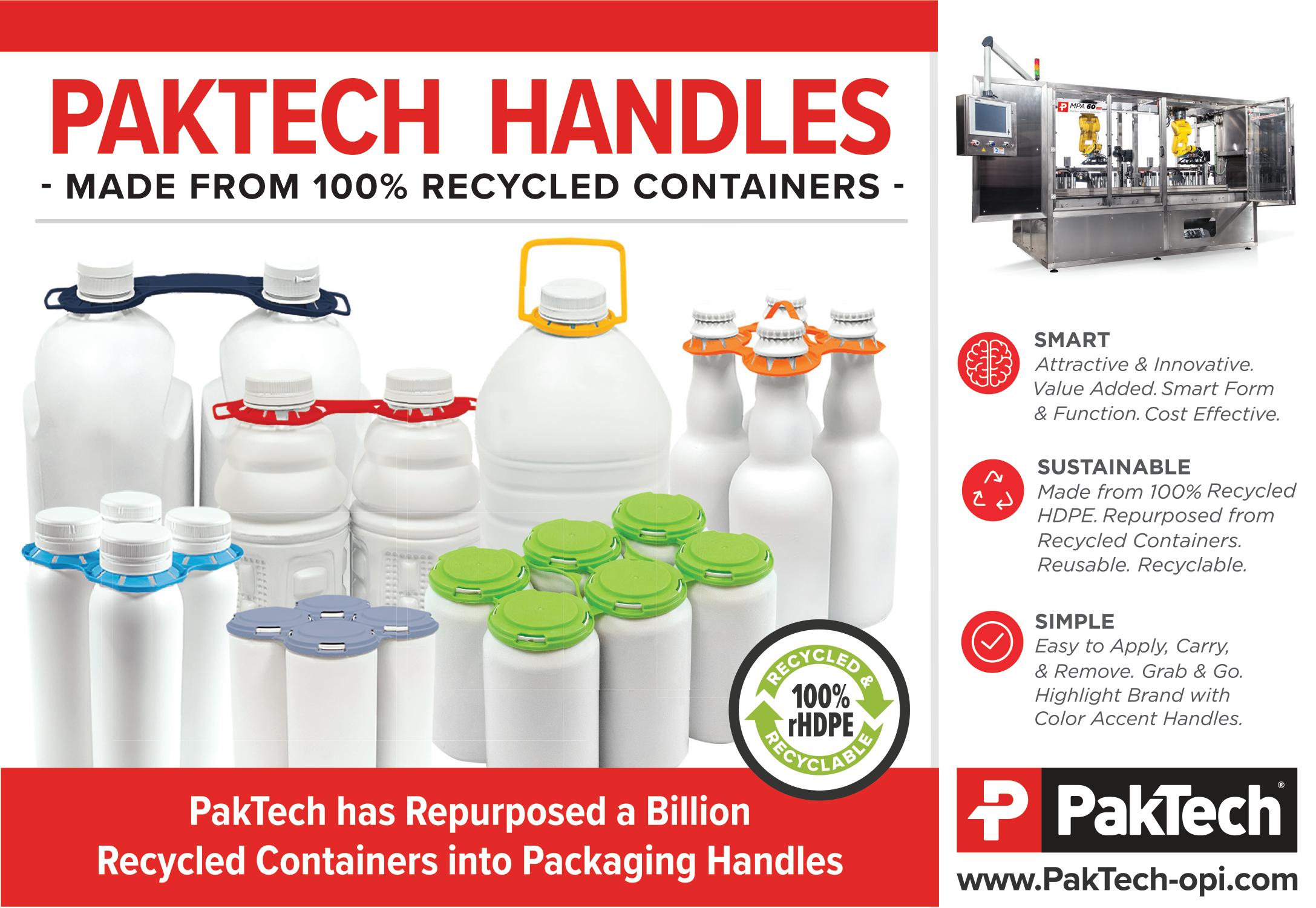
With Sierra Mist sales on the decline, PepsiCo has repositioned itself to compete against CocaCola’s Sprite with the debut of a new lemon-lime soda, Starry. “With one product dominating the category, consumers deserve another option,” said PepsiCo Beverages North America chief marketing officer Greg Lyons in a press release. Starry comes in both Regular and Zero Sugar varieties and is available at retailers and food service outlets nationwide. For more information, visit starrylemonlime.com.

MTN DEW announced the reemergence of its Pitch Black flavor, slated to roll out in January 2023. The LTO first launched in 2004 before returning to store shelves from 2016 to 2019. Now, the third iteration will also be offered in Zero Sugar and Energy formats. For more information, visit mountaindew.com.

Monster expanded its energy drink lineup with the addition of Monster Energy Zero Sugar. Available in the brand’s flagship flavor, each 16 oz. can boasts 160mg of caffeine and has just 10 calories. Monster Energy Zero Sugar is currently available on Amazon for $26.93 per 15-pack with a full launch coming by the end of Q1 2023. For more information, visit monsterenergy.com.
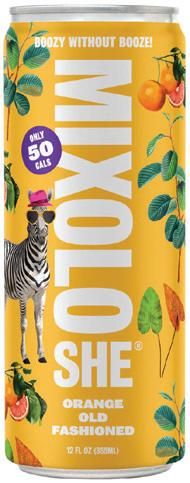

Austin, Texas-based better-for-you energy drink maker SOMI splashed into the new year with three new flavors: Osaka Redberries Matcha, Fancy Mango Matcha and Yuzu Lemonade Matcha. The zero sugar, matcha-based energy drinks feature ceremonial grade matcha and L-theanine and boast 140 mg of caffeine per 12 oz. can. All three flavors are available online for $42 per 12-pack and will soon make their debut at Central Market. For more information, visit drinksomi.com.
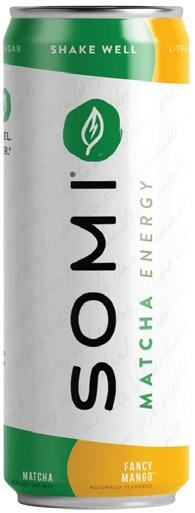
Portland, Oregon-based CBD-infused sparkling water brand Aprch introduced the first edition of the Aprch Partner Project, Mint+Cucumber, made in partnership with snow goggle and helmet maker SMITH. According to the brand, the #WeRunCold cans are a tribute to SMITH’s #WeRunCold

Winter campaign features a mountain scape designed by Ryan Schmies. The limited-edition offering is available online for $12.99 per 12 oz. can. For more information, visit drinkaprch.com.
While its name might imply summery vibes, THC-infused cannabis beverage Endless Coast is ready to head indoors this winter with its new seasonal flavor release Spiced Apple, which pairs crisp apple notes with familiar notes of holiday spices. Available in 4-packs at adult-use cannabis stores across Massachusetts, each can contains 5mg of THC per 12 oz. can. For more information, visit endlesscoastseltzer.com.
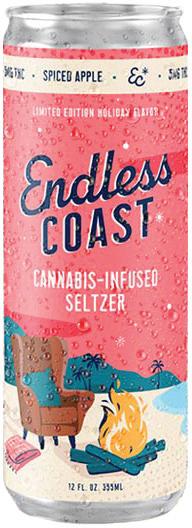
MIXOLOSHE expanded its lineup of non-alcoholic soft seltzers with three new products: Blueberry Gin & Tonic, Cosmic Bitter Spritz and Orange Old Fashioned. All of the drinks come in 12 oz. cans and have just 50 calories. Additionally, the brand will soon roll out three nonalcoholic spirits, including Gin, Whiskey and Tequila. The seltzers are available for $29.99 per 12-pack and the non-alcoholic spirits will be available for $29.99 per 750ml bottle. For more information, visit mixoloshe.com.
Siren Shrub Co. released a new limited edition flavor, Currant. The wine alternative features flavor notes of jam and is crafted with currants, organic apple cider vinegar and organic cane sugar. Siren Shrub Co. Currant will be available exclusively online for $22 per 16 oz. bottle. For more information, visit sirenshrubs.com.

Dr. Zero Zero has launched its non-alcoholic iteration of the Amaro, AmarNo. The new offering is formulated with extracts of sage, wormwood, Chinese rhubarb, quassia and orange. Dr. Zero Zero AmarNo is available online for $34.99 per bottle. For more information, visit drzerozero.com.

Sparkling water maker Spindrift announced the launch of four new varieties: Nojito, Peach Strawberry, Mint Green Tea and Mango Black Tea. The Nojito marks the brand’s first foray into the mocktail category and its first integration of an herb, mint. For more information, visit drinkspindrift.com.









Well, here’s a Dry January special for you if there ever was one: the NA Beer category, which is an incredible amalgamation of legacy brands, craft companies, and new entrepreneurs. There’s no doubt that Heineken and Bud are benefiting from increased interest in the category, but it’s also clear that the interest is being driven from below, where companies like Athletic have done the heavy lift ing to energize NA products. New brands from craft companies like Boston Beer, Brooklyn, Brewdog, and Lagunitas are on the rise — will they have the momentum to overcome the big guys’ mass sales advantages when we look at the category next year?
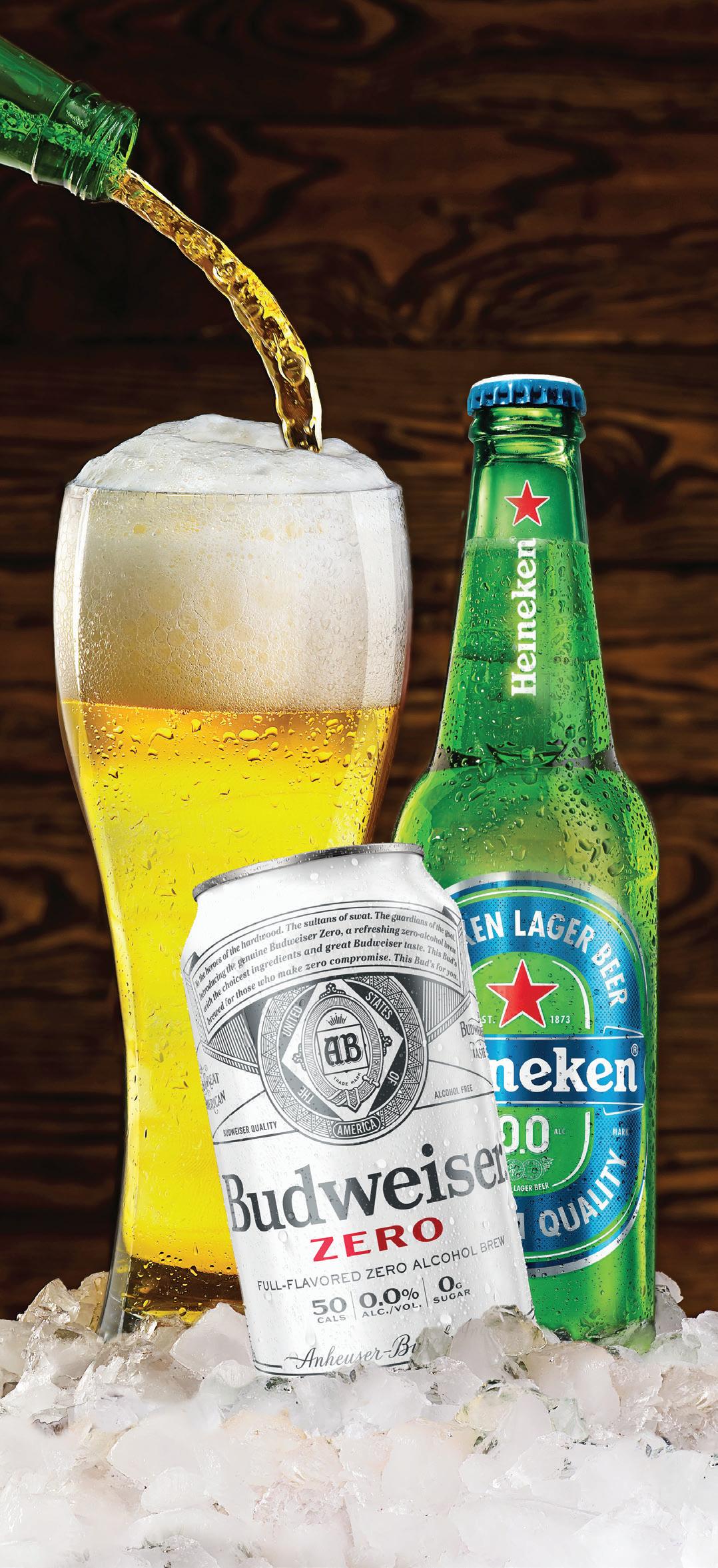









SOURCE: IRI, a Chicago-based market research firm-@iriworldwide% 52 Weeks through 01/01/23
SOURCE: IRI, a Chicago-based market research firm-@iriworldwide% 52 Weeks through 01/01/23
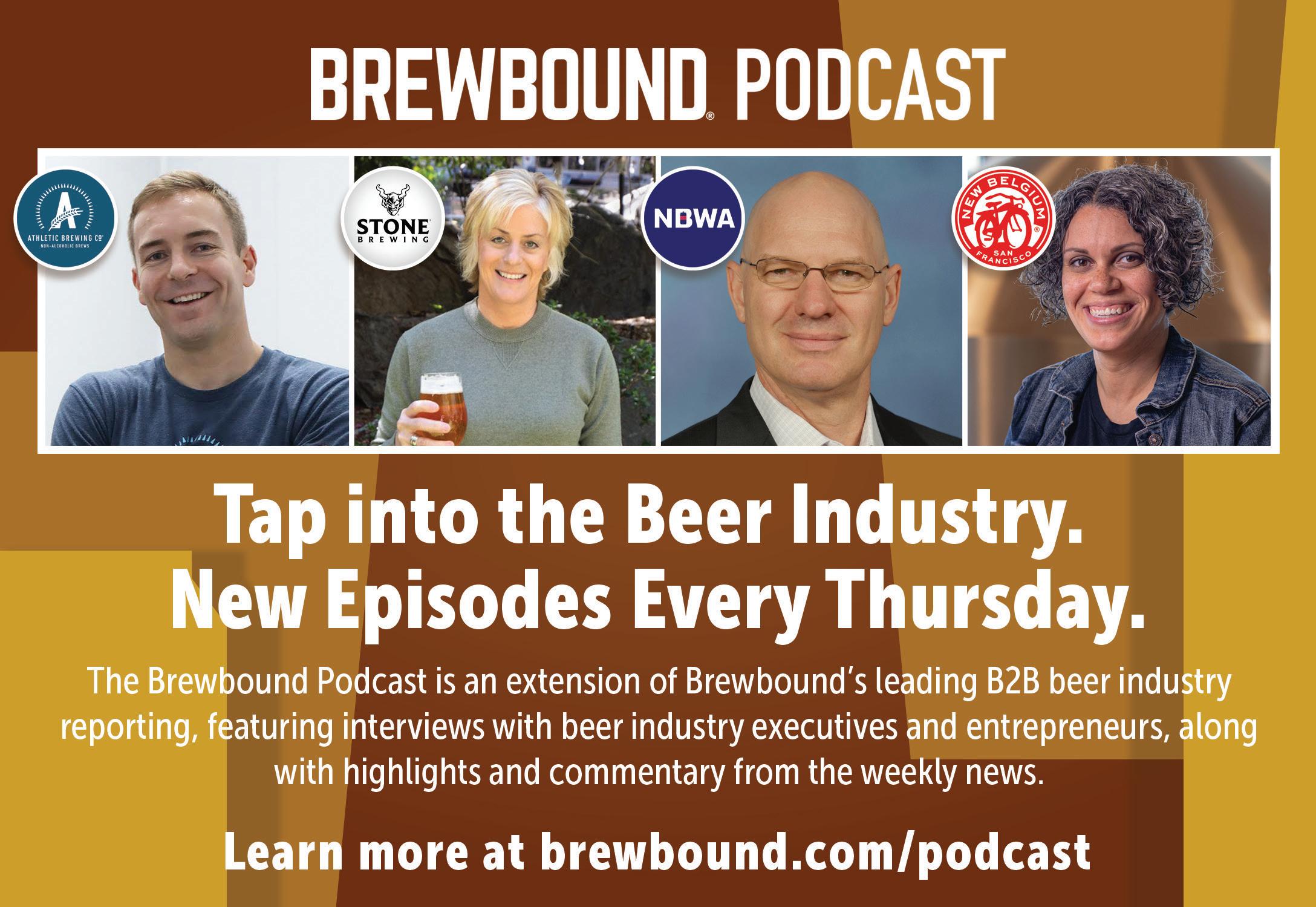



After a year of upheaval and uncertainty, beverage brands and entrepreneurs must be more active, adaptable, and careful than ever before as they seek to reach consumers with their unique products. That theme permeated the presentations and discussions across drink categories during BevNET Live Winter 2022, held December 5-6 in Santa Monica, California.
At the start of 2022, the world was still emerging from two years of living with COVID-19, and still grappling with fears of more variants bringing new waves of infection. But after the invasion of Ukraine sparked a global inflation crisis and concerns over spiraling costs-of-living, beverage brands have new challenges to take on.
During the opening day’s first presentation, Janica Lane, managing director at Piper Sandler, cited the impact of a potential forthcoming recession as a chief macroeconomic stressor of food and beverage companies today. Within an interconnected economy, that has had knock-on effects on the stock market and companies’ ability to access growth financing. And while economic cycles are nothing new, Lane noted that “it feels like every year since 2020 has been more uncertain than before.”
“If you guys are looking at the sell-through data and looking at growth from pricing versus volume in almost every single category, it’s price and not volume that’s driving the growth,” she said.
Examining how pricing has influenced his brand’s recent gains, Sanzo founder and CEO Sandro Roco explained how his product has benefitted from intentionally starting from a higher price point ($2.49 per 12 oz. can). That decision was partly driven by margins, but also helped to stress test the brand’s potential.
“It was also a challenge to say hey, is this product, is the brand unique enough? Can we build a community around this that justifies that level of premium, so that we aren’t having to have these conversations that other brands may be having?”
Later, Fawn Weaver, the CEO of Uncle Nearest Premium Whiskey, discussed her personal and corporate mission to diversify and disrupt the primarily white, primarily male spirits industry.
Founded in 2017, Uncle Nearest is named for Nathan “Nearest” Green, the first Black American master whiskey distiller. The company is on track to report $100 million in revenue for 2022 and launched a $50 million venture fund in 2021 to support BIPOC and women-owned alcohol brands. So far, Uncle Nearest has invested in bitters producer Hella Cocktail Co. and The Equiano Rum Co., with a third investment expected to be announced in the near future, Weaver said on stage.
“When I look at the industry overall, there have been six spirit conglomerates that more than 90% of the volume – at least in our country – is controlled by,” Weaver said. “They are all white male founded, owned and most continued to be led, at least at the highest level they’re still led [by white men]. There has never been an opportunity for a spirit conglomerate to be built by someone who wasn’t a white male
– until now. I don’t have a whole lot of time to get that done in my lifetime, so I don’t have the flexibility or the luxury of not being this energized.”
As both a brand owner and an investor, Weaver said she’s not interested in quick exits and will likely never sell Uncle Nearest, having repeatedly turned down past offers from various suitors. Likewise, for her investments she has no requirement for brands to exit, preferring to instead nurture them into large independent companies with the potential to exist indefinitely (although, she clarified, she is not opposed to her portfolio brands selling should they choose to).


After much anticipation, BevNET Live Winter 2022’s mystery guest was revealed to be actress and Goop founder Gwyneth Paltrow, who sat down alongside Equitea cofounder Quentin Vennie to discuss the canned tea brand’s mission to make better-for-you products available to consumers of all backgrounds.
Vennie discussed founding the brand after his own yearslong health and wellness journey, which began after surviving a drug overdose and multiple suicide attempts. Vennie said he embraced exercise, clean eating and meditation, helping him to find a new balance in life. But it was when his son was diagnosed with ADHD at age 7 that Vennie said he set out to create Equitea in order to provide a natural aid to mental health struggles so his son wouldn’t one day experience the same crises he did.
“There’s no separation for me between self care and survival,” Vennie said. “As someone who lives with debilitating anxiety, someone who was struggling with a life-threatening addiction, showing up for myself better prepares me to show up every day for my family, for the people I love, for my business, and for those that I serve.”
Paltrow came on board Equitea as an investor while seek-
ing to support minority-owned businesses during the Black Lives Matter protests in 2020. After connecting with Vennie through social media – “I believe I slid into his DMs,” Paltrow said — she is aiming to support the brand however she can, but is cautious not to overshadow Vennie or the brand with her celebrity name recognition.
“I think I’m just like, kind of a – I don’t know – fairy godmother in the corner,” Paltrow said. “Quentin is the most incredible founder, the brand is incredible, and for me it’s really just about Quentin being able to have a platform to tell his story. Watching the way he works and goes store by store, telling the story, I’m just in the reserves to kind of help out where needed.”
During the event’s Best Of Awards presentation, Liquid Death was recognized as Brand of the Year following a breakout 12 months which saw the company expand its distribution, secure growth capital, bring on new key partners and reveal its ambition to evolve into a bigger, broader beverage platform. Accepting the award on stage, Liquid Death founder and CEO Mike Cessario attributed much of the brand’s success to its team.
Also honored during the show was Seth Goldman, cofounder of Eat the Change and the driving force behind Just Ice Tea. Having watched his former brand Honest Tea get discontinued by Coca-Cola over the summer, the CPG veteran quickly assembled a new supply chain and route to market for his second foray into the tea category, going from concept to launch in a matter of months. That decision proved fortuitous for consumers seeking a lightly sweetened organic tea option, but also retailers and growers who had been blindsided by Coke’s decision.
During the first day of NOSH Live Winter 2022, held December 1-2 in Santa Monica, California, Melissa Urban, founder and creator of elimination diet Whole30, opened the show with a sitdown discussion on building a brand through community.

Throughout the conversation, Urban emphasized the deliberate choices the Whole30 team made to create the cult following the nutritional philosophy has today, which enabled the platform to later extend into the world of CPG with a line of salad dressings. As an elimination style diet, she said followers often use Whole30 as a “self-experiment” with the understanding that it is not a diet intended to be a continuous part of their lifestyle. Even so, consumers keep coming back year after year. According to Urban, those who revisit Whole30 often do so because of the support of the community and the inclusivity that has been fostered by the brand’s leaders.
She also highlighted the importance of rhetoric when it comes to every aspect of copy associated with the brand. Citing an example from Whole30’s early days where the program labeled foods as compliant, she explained the word “compliance” gave a “militant” connotation leading the team to later adopt the phrase “Whole30 compatible” instead. The brand has made the conscious decision to be outspoken about topics that span beyond food, but impact the lives of many of its followers, which further helped develop a sense of community around the program. Urban explained that in taking an active stance on social media, the team knew it may lose portions of its audience but made the deliberate decision to do so anyway and it paid off.
Following Urban, Jared Stein, co-founder of Los Angeles-based private equity investment firm Monogram Capital Partners, spoke about capital efficiency, stating that it had not been a major factor for many investors until recent years. He said a business that has grown efficiently without taking on outside finds is alluring to many investors in today’s market, as it shows grit and a willingness to build a business no matter what.
Supply chains have now become a point of interest for investors when assessing a brand’s health and long term sustainability. Stein said in today’s market, an analysis of each piece of the puzzle that gets a product to market is required to assess the overall health of a business. This includes relationships with co-manufacturers which are increasingly being offered to join investors in fundraising rounds. Giving a co-manufacturer a financial stake in the business can help with a brand’s margins and help “whittle out” the toll rates that come with outsourced production. Meanwhile businesses that self-manufacture bring an added complexity when it comes to an investor assessment as these brands are often running two businesses under one roof. Many may want to see plans to diversify how the manufacturing business operates outside the brand itself, such as with private label products or offering comanufacturing for other businesses.
Day one of the event also featured a presentation from YouTube sensation-turned-entrepreneur Emma Chamberlain, who provided insight into how she turned a love of coffee that she developed “at an inappropriately young age” into a rapidly growing CPG brand that has a multitude of SKUs, ranging from whole bean coffee blends to flavored matcha. Chamberlain, who has amassed a social media audience of more than 35 million followers, emphasized during the discussion the importance of establishing a brand that could stand on its own. The 21-year-old said it was important for her that the specialty coffee brand’s audience didn’t just “see
her face everywhere” when they visited its social media pages.
Additionally, Chamberlain stressed the importance of recognizing when you need help, especially in the situation of creators making their first foray into the CPG world. Last year, she brought on Christopher Gallant as CEO. Following Gallant’s appointment, Chamberlain Coffee raised a $7 million dollar funding round to fuel omnichannel business growth.
For the second day of NOSH Live, better-for-you foods made with functional or upcycled ingredients were a common theme as speakers on Friday brought up the importance of reaching consumers who are shopping for natural products that are good-foryou and good-for-the-world.
Frozen Greek yogurt maker Yasso’s CEO Craig Shiesley shared insights from a 30-year career helping build sustainably-grown CPG food businesses. His brand-building strategy follows a sixpoint plan: Brand Power, Loyal Consumer Base, Distribution Upside, Industry-Leading Margins, Growth Potential and Strong Fundamentals. Shiesley laid out Yasso’s progression to becoming a $240 million company in 2021. It followed a three-phase approach utilizing his brand building strategy, leading the brand to a place where it can utilize its margins to maximize growth potential through innovation and prove its strong fundamentals.
Ex-professional skateboarder and TV personality turned CPG investor Rob Dyrdek also took to the stage on day two to discuss how he balances his investment strategy with his life philosophy.
“The same way you do a five-year projection on the growth of your business, you should have the same design and focus in your life, so you will grow your business and your life together,” Dyrdek said. “When you find success in business, you find success in life.”
In 2016, Dyrdek launched his venture creation studio Dyrdek Machine, which has invested in 16 brands and exited six companies so far. The portfolio runs the gamut from apparel to wellness and beauty to food and beverage; the latter group includes Muertos Coffee Co., THC-infused beverage brand Leisuretown, Outstanding Foods and functional snack brand Mindright.
Outstanding Foods produces dairy-free, plant-based cheese ball snacks and Mindright makes nootropic-infused snack bars and chips that promote brain health. Even though Dyrdek regularly wakes up between 3:30 a.m. and 5 a.m., he cautioned entrepreneurs that maintaining energy and not “running on the edge” will provide more clarity to building a business. Many entrepreneurs can run into the problem where they fall in love with the idea of their product and assume that consumers will automatically love it too, he said. The key is doing the work to understand why a consumer will connect with and see value in a product.
Most important to Dyrdek’s investment strategy is connecting with the founder and finding products that have the highest probability of success. This starts with finding partners who are focused on a business’ fundamentals.
“Creating a business is the most exciting, incredible thing in the world – unless it doesn’t work,” he said. “Then it’s a nightmare. An ongoing, chaotic psychotic nightmare that you hang on to until you finally lose belief and give up.”








With economic uncertainty on the horizon and an industry in flux amid convergence and consolidation, fortifying businesses and fostering people-first workplaces were among the focuses of the 2022 Brewbound Live business conference in December.
Bell’s Brewery EVP Carrie Yunker opened the event with a keynote speech on the opportunities and challenges created by people-focused businesses. One simple question -- “What do you think?” -- can unlock a new level of engagement with your workforce, Yunker said.

Yunker shared her nearly 20-year journey from receptionist to heir apparent to founder Larry Bell.
“I don’t come from an MBA program. I don’t come from the sales and marketing side of the business. I didn’t start or inherit the business,” she said. “I came from the people side of the business.”
The work of creating an inclusive business can be challenging, “hard” and “scary,” Yunker acknowledged, even for companies with dedicated resources. And “there is no
finish line.” She encouraged leaders to set aside their fears, “be brave and willing to take action” and “commit to practice over perfection,” acknowledging that sometimes they’ll get it wrong.
Beyond being the right thing to do, leading with a people-first mindset is the best way to drive revenue and hit business targets, Yunker added. This type of work is noticed by consumers, who are as focused on who they buy from as what they are buying.
“People power your business, and your business will only thrive as your people
With nearly 9,500 breweries operating in the U.S., the surest way to stand out is to have a strong and authentic brand identity.
Talea Beer Co. co-founder LeAnn Darland, Funkytown Brewery co-founder Rich Bloomfield and Shojo Beer Co. co-owner and head brewer Haidar Hachem shared how they’ve each created strong brand identities to fill the gaps for underrepresented groups in craft beer.

Hachem and his wife Marilyn Orozco launched Shojo Beer Co. in 2021 as a Japanese-inspired craft brewery with influences from the couple’s Lebanese and Nicaraguan heritages.
thrive,” she said.
Schilling Cider CEO Colin Schilling bookended Day One with a talk stressing the importance of workplace culture in hiring and retaining employees. Toxic workplaces are more than 10 times more powerful of a factor in predicting employee turnover than any other factor, including compensation, Schilling said. As a result, companies must look at their workplace culture and determine what adjustments need to be made to improve and become more profitable.
Schilling Cider recently transitioned from a “strategy-driven” to a “people-first” organization, and while Schilling doesn’t consider himself a “culture expert,” the shift provided him with a “roadmap” that he shared with conference attendees. A key to that map is knowing that cultural change has to “be driven from the very top.”
“This is not a process that you can toss over to HR and say ‘Hey, let me know when this is done so I can come up and give a speech about it,’” Schilling said. “The CEO has to drive this conversation; the entire executive team has to be very aligned on this.”
Also important is distinguishing between culture and morale, he said.
“Culture is something that’s much more lasting and enduring,” Schilling added. “And it’s really one of those things that is harder to change.”
“The biggest thing that we try to accomplish is there’s the difference between appreciation or appropriation,” Hachem said. “Appreciation, you try to share a story and build cross-cultural connections with other people by broadening the general public’s knowledge of other heritages and cultures and all those things. Versus appropriation, where I’m taking everything that’s either Nicaraguan or Lebanese or Japanese and just like, ‘Hey, this is mine.’”
Darland and co-founder Tara Hankinson started Talea in Brooklyn, New York, to create a winery-style experience for craft beer that is approachable for new consumers.
“The physical space is key for us: It’s bringing our brand to life,” Darland said. “That’s on top of the liquid that we’re putting in the cans and the packaging design. It’s all a huge effort and strategy to speak authentically to non-beer bros.”
Funkytown Brewery, a Chicago-based Black-owned brewery, has focused heavily on establishing its local presence with community events and other engagement opportunities. The company seeks out consumer feedback on brand styles and flavors when creating its offerings, which include a variety of styles such as an Irish red ale, Belgian witbier and oatmeal milk stout.
“You have to show how it fits into their lifestyle,” Bloomfield said.
Leaders guiding three of the beer category’s top brands -- Firestone Walker’s 805, Constellation Brands’ Modelo and Sierra Nevada’s Little Thing -- shared insights on building those brand families.
Firestone Walker has found success beyond its core brand with 805 blonde ale, the brewery’s best-selling offering in off-premise retailers. Despite not having nationwide distribution, 805 is the No. 12 best-selling craft brand in IRI tracked channels.
Since its 2012 launch, 805 has maintained a brand identity that is distinct from the Firestone Walker portfolio. The company launched a sister brand, Mexican-inspired lager 805 Cerveza, and while both 805s look and feel similar, they target different consumers.
“If you’re creating an incremental product, the idea is incremental customers,” Hinz said. “The last thing that we want to do is trade a Cerveza drinker into an 805 drinker.”
Meanwhile, Sierra Nevada’s Hazy Little Thing, which launched in 2018, has eclipsed flagship Sierra Nevada Pale Ale to become the third best-selling craft brand in IRI-tracked off-premise retailers. However, Hazy Little Thing proved to be “highly divisive,” even internally, Ingram said.
“It was not popular with a lot of folks inside our walls, because they felt like we were maybe chasing a fad or it wasn’t congruent with the traditional Sierra Nevada mold,” he said. “So, we felt like that was all the more reason to give it its own identity and pull it apart from what people have come to expect from Sierra Nevada. And I think that a large part of its success, frankly, is that it did stand out, it did stand alone.”
For the Modelo brand family, incremental growth has come from its Modelo Chelada line extension, which launched nearly 10 years ago and now includes several fruit-forward offerings in addition to its original traditional tomatobased offering.
“We really felt like we could come into that segment with a strong brand that brought really strong authentically Mexican credentials, deliver a really high-quality product in a new segment that was valuable and at the same time, strengthened back to our master brand,” Gallagher said.
Forming a healthy relationship with a distributor is one of the most beneficial things a brewer can do to ensure long-term success, Scout Distribution CEO and co-founder Jeff Hansson and Reyes Beer Division VP of craft and innovation Jessica Muskey shared.
High on their list of things brewers can do? Get to know the distributor sales staff who will be in the market representing the brands.
“It’s great to have a relationship with me, but you need to have a relationship at the local level with our folks who are out there talking to our customers on a daily basis and selling – that’s where you need to get that focus,” Muskey said.
Hansson echoed the sentiment and encouraged suppliers to be “engaged with the team.”
“Go out and deck our drivers out with merchandise,” he said. “Anything to get share of mind with our people, first and foremost, especially mid-level management and down is so important, because it’s true; brands will call me and I’m like ‘Look, you can talk to me all day, but it’s the people that are gonna go get the wins for you and the placements in the trade, those are the people you got to talk to.’”
Nevertheless, understanding the modern consumer remains tricky. Mary Guiver, global principal category merchant for beer at Whole Foods, and Jamie Carawan, Buffalo Wild Wings’ VP of brand menu and culinary, noted the dichotomy between consumers seeking no- and low-alcohol options and those wanting higher ABV products.
Guiver noted that consumers are looking for sale tags, even as others are dropping $25 for 4-packs of local craft beer. Nevertheless, she cautioned bev-alc brands not to push price in 2023.
Carawan added that some Buffalo Wild Wings consumers are pulling back on the number of visits -- making a decision between filling their gas tanks and dining out.
“If they were coming twice, they’re coming once a week,” he said. “If they were coming four times a month, they’re coming twice a month. And they’re really managing check right now. So we’re looking at how do we deliver value?”
Hard coconut water maker Sunboy won the 14th edition of Brewbound’s Pitch Slam competition, presented by Ollie, a Next Glass company.
New York City-based Sunboy bested five other finalists -- including High Seas Mead, Primary Colors Brewing, RationAle Brewing, Rincon Reservation Road Brewery and Shoal Draft Cider -- to claim the top spot.
In a four-minute pitch, co-founder Yair Tygiel shared the story of his brand’s founding, which began with a custom method to brand coconuts for beverage companies for experiential marketing events in New York City prior to the COVID-19 pandemic.

“Sunboy hits on all of the biggest trends: ready-to-drink, better-for-you, lower sugar and lower alcohol,” Tygiel said. “We’re not allowed to make any explicit health claims, but we really don’t have to. Consumers understand that coconut water is hydrating, it’s healthy. It’s what they reach for in the morning when they’re feeling hungover.”
Sunboy, launched in 2021, is in more than 100 retail accounts in New York, including Whole Foods Market. Its products (5% ABV, 130 calories and 3 grams of sugar per 12 oz. can) are available in three flavors: passion fruit, tangerine, and pineapple.
“Choosing retail targets is easy for us,” Tygiel said. “One of our off-premise cheats is to target accounts that already sell a lot of coconut water. We know our customers are there, and it’s easy for us to sell a 4-pack of Sunboy for $10.99 when consumers are used to paying $6 for a single bottle of coconut water in the same store.”
More than 300 beverage brands and approximately 60,000 attendees
BevNET StaffBevNET, NOSH and Taste Radio will be interviewing, broadcasting and filming throughout the event. If you’re attending or exhibiting, let’s connect! Reach out at news@bevnet.com, news@nosh.com, or ask@tasteradio.com
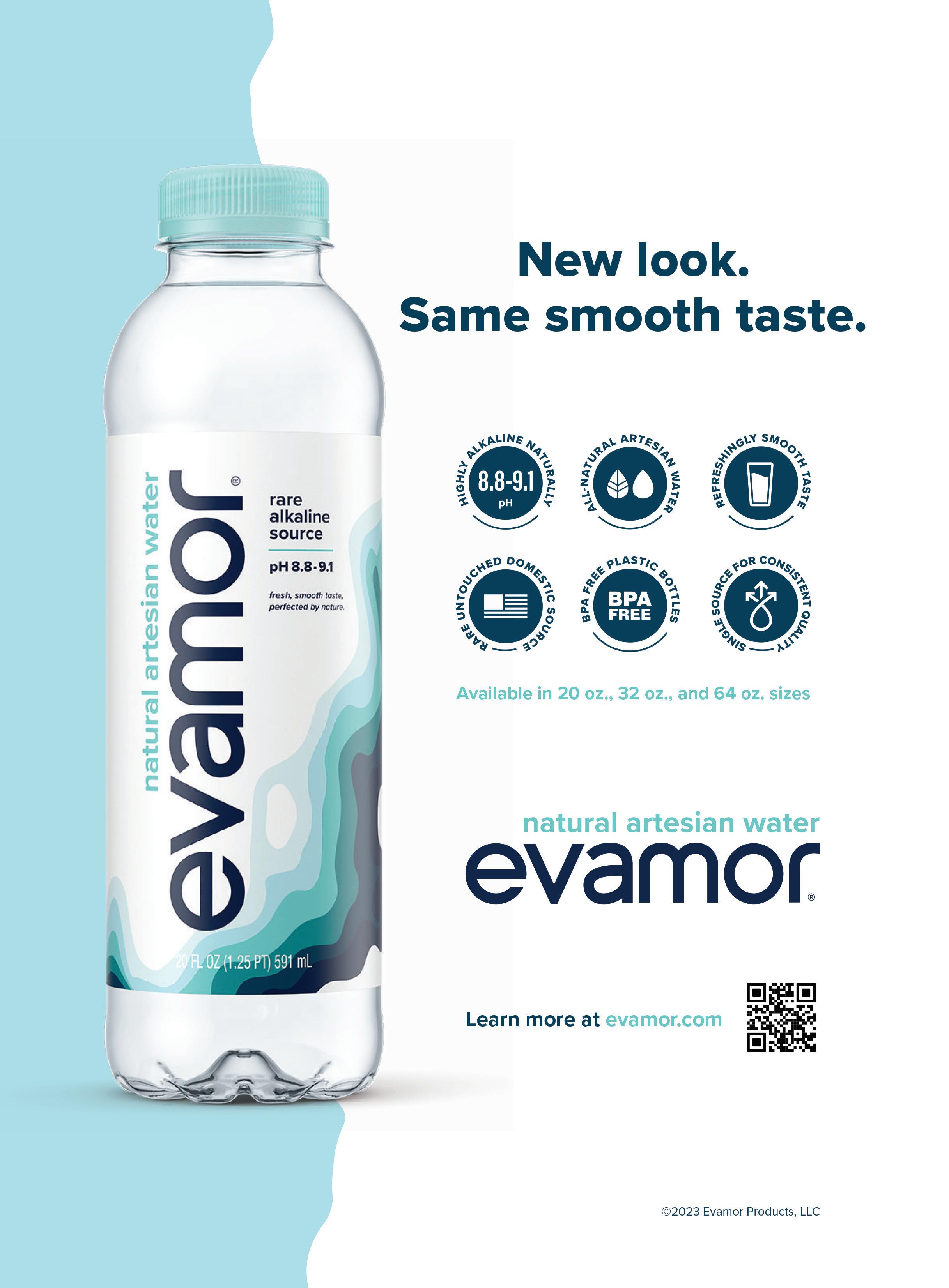
Each year, BevNET’s annual Best Of awards honors companies, brands, individuals, products, ideas and trends from across the dynamic and ever-changing beverage landscape.




At the beginning of this year, there was a sense that perhaps the worst effects of the pandemic were beginning to wane. Yet after a year spent navigating supply chain gridlock and labor shortages, 2022 saw a new wrench thrown into the recovery machine with Russia’s invasion of Ukraine in February. Global inflation suddenly kicked into overdrive, and shoppers felt its impact every time they stepped into grocery stores across the country. Even against that deeply challenging backdrop, food and beverage entrepreneurs remained ambitious, optimistic and resilient, staying true to their core principles while displaying an admirable ability to cope with rapidly changing conditions.












Liquid Death never had to spend much time in the darkness. When the canned water maker launched in 2019 it hit the market like a bat out of hell, ushering in a reign of terror against PET packaging and staid branding. Over the past three years, Liquid Death has dominated the conversation in the water category thanks to its humorous, heavy metal tinged marketing that continues to push the boundaries of where mainstream beverage advertising can tread; whether it’s having Tony Hawk mix his blood into the ink of a limited edition skateboard or Tasering its haters, the company knows how to get people talking. Much of the unique voice and vision for the brand has stemmed from cofounder and CEO Mike Cessario, and its quick success is already serving as a case study for other CPG brands. After all, how many three-year-old brands can say they regularly hear from consumers who have tattooed the logo on their bodies?


But Liquid Death’s success is not just some big show; the brand has put its ax to the grindstone to execute a serious sales strategy that has it on track to clear $130 million in sales this year, with over $195 million in investment to date and a $700 million valuation. The sustainably packaged water now has 94% national distribution coverage through DSD and broad-
The examples aren’t lacking, whether it’s Seth Goldman rising to help farmers (and tea drinkers) recover after Honest Tea’s closure; or Liquid Death seizing its opportunity to become a large scale beverage brand platform; or how innovation is happening on either side of the alcohol divide with products from Ghia and Togronis; or the way brands like Bawi, Sanzo, Ghost Town and others have helped inject fresh ideas and voices into popular drink categories. If anyone ever questioned the ingenuity and fighting spirit found within CPG, this year provided the industry’s emphatic and defiant response.
The winners of BevNET’s Best of 2022 Awards embody that spirit and drive, combining inspiration with effort, style, dynamism and personality. Even amid a period of global upheaval, when the world reaches for a drink, these brands and leaders are there to serve that demand.
line partners with a reach of up to 346,000 doors, in addition to over 400,000 on-premise and foodservice accounts, plus an exclusive deal with concert venue owner Live Nation. As it prepares to move production to the U.S. next year and expands its portfolio into new categories with an iced tea line, it’s clear Liquid Death is as serious as they come. The journey to the top of the mountain may still be a long and treacherous one, but this brand very much seems to enjoy the battle.



Seth Goldman, Co-Founder, Eat the Change



Seth Goldman picked up the pieces of his former brand’s broken luck this year and super glued them back together into something that could end up even stronger the second time around.
The celebrated “good guy” entrepreneur could have sat back and played the skeptic when the Coca-Cola Co. announced it was going to kill off Honest Tea, the signature product of the organic beverage brand that Goldman cofounded and later sold to Coke back in 2011. But rather than simply express his discontent and continue to count his millions – and keep his energy directed toward other enterprises, including vegan restaurant chain PLNT Burger and emerging snack platform Eat the Change – Goldman stood back up.
Goldman recognized that the stakeholders in Honest Tea – most prominently the multiple certified organic and Fair Trade suppliers of tea and other ingredients – were poised to lose business along with the consumers who had been crestfallen by Coke’s announcement. Moreover, in discontinuing Honest Tea, Coke had created a hole in the market for a product very much like Honest Tea, with the same conscious bona fides, addressing the very same loyal consumers.

Our Brand of the Year winner may be best known for screaming skulls, melting faces and collecting human souls, but that doesn’t mean they’re not patriots.
Last year, the state of Georgia passed a controversial election bill – SB 202 – that criminalized handing out food or water to people within 150 feet of a polling station, potentially leaving voters stuck in lengthy lines longing for a way to quench their thirst. Working with nonpartisan voter turnout org HeadCount, Liquid Death sought to circumvent the legislation and provide Georgians a convenient way to bring water with them to the polls. The brand sold Election Hydration Kits consisting of a fanny pack and a can of Liquid Death, available online for just $1 to any consumer living in Georgia.
Political marketing is always a big risk for a brand, but seeing as Georgia reported record-breaking early voting turnout for a midterm this year, we have to call this one a win for democracy and yet another win for Liquid Death.
No, it wouldn’t be Honest – that brand is still Coke property and is deployed for a successful kids drink line. But in the space of just a couple of months, Goldman – alongside old partner Barry Nalebuff, new compadre Spike Mendelsohn, and a host of his old sales team under the Eat the Change platform – have launched Just Ice Tea.
We can’t predict whether there’s another life-altering business in Just Ice Tea for Goldman, but what we can say is that the fast work to fi ll the gap is totally consistent with his nature, which is to use business forces to make the world better. He’s Person of the Year because he’s answered the call once again, swift ly, forcefully, and with a smile.



Kentucky-based Congo Brands is a somewhat unusual choice for a Rising Star award, as the company has built a portfolio of multiple independent brands – mostly created in partnership with celebrities and influencers – which are swiftly scaled through a robust sales and marketing program that allows these new products to get on shelf with experienced merchandising support. The strength of Congo’s portfolio made it difficult to choose just one brand to single out. Their breakout star, no doubt, is energy and protein line Alani Nu, which has quickly emerged as one of the fastest growing brands in the performance energy subset while breaking new ground in the category with female consumers. But also catching our eye is their new sports drink brand PRIME, launched this year with YouTubers Logan Paul and KSI, and which is well on its way to reach high-eight-digit sales in its first year on the market. Next up for launch: sweet tea line Down South. Only time will tell if it will be a three-peat success, but with Alani Nu and PRIME as models Congo has more than proven they know how to build brand equity and consumer loyalty with speed and precision.
From a distance, GHOST may not appear all that unique. Similar to fast-growing players like Bang, C4, ZOA and Celsius, the company has emerged as part of a new class of energy drinks that balance strong fitness credentials with a modern, lifestyle oriented approach to branding. But while those names have taken a splashy approach to marketing, GHOST’s massive growth thus far — nearly $188 million in sales last year — has come with hardly any traditional advertising, which only hints at the company’s scary potential and cements its status as a leader in the set. While its powdered products keep turning over, the brand’s flagship RTDs, now in around 60,000 doors nationwide, are poised to outperform its supplements business for the first time ever this year, thanks to the success of licensing deals with iconic candy brands including Sour Patch Kids and Warheads. Fueled by a fervent online following, deep roots in the gaming community, a robust apparel business and minority investment from AnheuserBusch, GHOST has proved to be a potent vehicle for selling beverages, supplements and clothes alike.






With over $42.2 million in financing and 40,000 doors nationwide, it’s hard to believe Lemon Perfect has barely even begun to turn on its marketing machine. The Atlanta-based enhanced water brand, founded by CEO Yanni Hufnagel, instead has been as sales-focused as can be with a team of industry




sales vets hailing from The Coca-Cola Company and Celsius. The result is a projected $60 million in sales revenue this year, while new investments in its marketing department should supercharge awareness in 2023. That expert execution – which has placed Lemon Perfect nationwide in Costco, CVS, Walmart and Target among other major accounts – certainly helped to bring pop star Beyoncé Knowles-Carter to the cap table, and it’s what makes this company one to watch.
Milo’s
Milo’s doesn’t fit the typical profile of a Rising Star award winner. For one, the brand — an offshoot of an Alabama-based food chain — has been around for decades, slowly growing and grinding away from the Coasts in a relatively quiet category, iced tea. Yet the family owned company’s commitment to executing at retail and thoughtful expansion has put it into a commanding position within the category: this year, Milo’s became the fourth-largest iced tea maker in the U.S. with sales surpassing $400 million. Even more impressive, those turns have come from refrigerated coolers, where its numbers dwarf those of major brands like Starbucks and GT’s Living Foods. The company hasn’t ignored innovation - see Nana B’s, its three-SKU line of zero-calorie flavored teas — or expansion — as in spending $60 million on a secondary production facility, with millions more earmarked for further infrastructure growth — but its sharp management and shrewd strategy proves you don’t have to be a revolutionary products to make a big impact.

In all possible ways, Sanzo has taken a refreshing approach. At its heart, the New York-based sparkling water brand is a celebration of long-overlooked Asian fruit flavors like yuzu, lychee, calamansi and alphonso mango. In a category where flavor innovation has at times been relatively weak, Sanzo offers a welcome injection of fresh energy, and has been rewarded for its efforts with rapid expansion across channels (DSD, foodservice and online) and critical growth capital ($10 million from CircleUp in February). But founder Sandro Roco’s vision for the company is clearly bigger: thanks in part to the support of investor Gold House Partners, an AAPI advocacy group with deep ties to artists and athletes, Sanzo has emerged as one of the bold leaders of a new generation of Asian-American CPG entrepreneurs, working with notable names like Pixar, Panda Express and former NBA star Jeremy Lin on various partnerships that both promote the brand and highlight the influence and impact of Asian culture. “Our ability to partner with creatives I think helps educate maybe the buyers, retailers, distribution partners that this is what’s happening in American culture and hopefully, as a beverage, we’re able to operate as that bridge,” Roco told BevNET earlier this year. We have a feeling that traffic is going to be steady.











Bawi impressed us with its flavor, but the sparkling agua fresca brand’s packaging was just as special as its liquid. Capturing a street-poster vibe, the bold typography, clean lines and focus on big flavor reflect the drink’s authentic roots while teasing its better-for-you credentials.



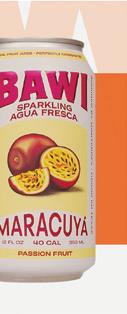


Modern adult non-alcoholic beverages, take note: this is how you put a complex drink into an approachable package. With a kiss of color, some sparse illustration and a few well-placed pieces of copy, De Soi visually communicates its elegantly simple approach with minimal fuss and style to spare.



Ghost Town Oats
Specialty coffee experts Michelle Johnson, Ezra Baker and Eric J. Grimm created Ghost Town Oats earlier this year with the goal of making the plant-based milk space more inclusive. They’ve also managed to make it more exciting, thanks in part to the eye-catching packaging of its premium oat milk. The graffiti-style black text, splashed against a flamingo-pink backdrop, stands out from the typical glut of blues and whites in the category, while the trio of ghosts that make the logo adds the perfect playful touch.



Motto
Matcha soda Motto certainly made an impression when it debuted in green glass bottles back in 2012. But even in ditching bottles for cans for its comeback this year, the brand still leaves a lasting impression. The deep, rich green looks gorgeous on the shelf, while the delicate placement of text and logo gives the appropriate feeling of something simultaneously both modern and steeped in craft and traditions.



Sarilla
Sarilla’s line of sparkling teas received a visual upgrade this year that marks a significant step forward. Each of the four varieties has its own bright, bold color scheme, but it’s the small touches — like the differently accented sun rays emerging from the bottom of the label, or the clean and inviting logo — that make the difference and feel likely to push Sarilla towards new and bigger audiences.




Bawi is one of several new brands attempting to build a viable RTD agua fresca category in U.S. retail, and we like their chances. Available in three flavors – El Limón, La Piña and Maracuyá – the lightly carbonated beverages are formulated with a list of clean ingredients including water, fruit juices and sugar, resulting in some of the best-tasting fruit drinks we’ve had in a while. We especially love La Piña’s high juice content which, at 48% from pineapple and lime juice, has a fresh and accurate fruit flavor. Meanwhile, Límon is a classic limeade style beverage and Maracuyá, made with passionfruit and lime juices, transports your tastebuds to a tropical oasis.



Amid this year’s wave of betterfor-you functional soda releases, Brooklyn Cannery made a noteworthy splash with its 5-SKU lineup. In addition to its retro-inspired packaging and on-trend incorporation of probiotics, Brooklyn Cannery has differentiated itself through bold, multidimensional flavor profiles such as Key Lime with Jalapeño and Cola Amaretto. All five flavors are standouts (especially for low calorie sodas), and the level of sweetness comes pretty close to a full calorie soft drink.

Dr. Perfy
Mood-boosting functional soda startup Perfy introduced some very tasty fruit flavors when it launched last year, but this fourth SKU – a twist on a nostalgic classic soda flavor – takes their innovation to a new level. The blend of low sugar fruit ingredients like blueberry, marion blackberry and pear juice, mixed with zero calorie sweeteners, hits a perfect balance, while the NFT-branded can displays a sharp and consumer friendly means of furthering the brand’s online ambitions.

Last year in this category, we recognized the debut flavor of Ghia’s RTD Le Spritz line of RTD, non-alcoholic aperitifs. This year, the brand has followed up with a powerful punch in its latest Mediterranean-inspired variety, Lime & Salt. Best described by the company itself as tasting like “a dip in the sea,” Lime & Salt is certainly similar to a margarita, but with a flavor profile bearing notes of olive and anchovies, it’s something far more than a zero proof alternative. Ghia has once again delivered a complex and delicious product.

Since launching in 2018, Boulder, Colorado-based Hoplark Water has made a name for itself by deliberately blurring category lines with its non-alcoholic hopped teas that simultaneously play into the beer and standard beverage sets. The company’s fi rst attempt to take on beer head-on reflects its eagerness to experiment and consistently innovate: Really Really Hoppy, Hoplark’s take on the West Coast IPA, is double dry hopped with Simcoe and Citra hops, while Citra offers a bright and juicy flavor bomb that stands up to the best of what you’d fi nd from a craft brewer. Hoplark continues to reimagine the possibilities for what modern, adult non-alc can be, with style and flair to spare.












When Todd Charmichael left his post as CEO of La Colombe, the visionary entrepreneur promised his next project would be an entirely original, innovative beverage format, developed with experimental formulation techniques to produce something unlike anything that had come before. With that product making its debut this year, we can confi rm that it meets those loft y expectations. Billed as a “shimmering water,” Loft iwater is bubbly, sweet – but without sweetener – and refreshing, with a texture and mouthfeel all its own.

The phrase “Vietnamese coffee” typically conjures up the image of a particularly potent, sweetened and indulgent drink. But for Nguyen Coffee Supply’s first steps into the RTD sector, they’ve gone for a zero sugar, clean Classic Black cold brew that brings out the complex, delectable flavor of Vietnamese robusta coffee beans. While the company has said new flavors are in the works, the strength of this coffee, packaged in a 7.5 oz. can, is award-worthy on its own.
Non-alcoholic agave spirits brand Parch has delivered an impressive and original take on classic cocktail flavors with its debut varieties, Spiced Piñarata and Prickly Paloma. Containing 70 calories and 17 grams of sugar per 8.4 ounce can, Parch’s alcohol alternative line also provides a sober-friendly functional lift from its a blend of adaptogens and botanical extracts – including GABA, ginseng, L-theanine, and ashwagandha. Whether it’s sweet or spicy, Parch’s drinks are refreshing and crushable, with beautiful packaging to boot.





Premium tea maker Rishi’s Sparkling Botanicals line impressed us when it launched in 2020 with its categoryblurring, low calorie and delicious canned teas. Their latest line extension, Bergamot Oolong, follows in suit with its blend of citrus and teaforward flavor profi le. Unsweetened, with 30 mg of caffeine per 12 oz. can, it’s also a great better-for-you midday pick-me-up.
Asian-inspired sparkling water maker Sanzo has built its brand around disrupting the crowded traditional sparkling water category, and this year it forged further ahead with a captivating new flavor, Yuzu With Ginger. Bursting with the bright, tart citrus bite of fresh yuzu, the drink strikes a perfect balance of simplicity and flavor with pleasantly bitter tasting notes and a bright floral aroma.
As awareness of boba and milk tea continues to rise in the U.S., standing out in the increasingly saturated category can create a challenge for CPG brands. However, Twrl M!lk Tea has been doing just that, thanks to its vibrant branding, light sweetness, plant-based ingredients (pea milk in place of traditional dairy) and overall fun and innovative design from liquid to package. Available in three flavors – Hojicha Roasted Green, Original Black and Supreme Jasmine– the nitro-infused plant-based milk teas have just 40-50 calories per 7.5 oz. can and are sweetened with agave syrup. Between its non-traditional incorporation of plantbased dairy and great taste, this milk tea is one of the best we have tried in 2022.



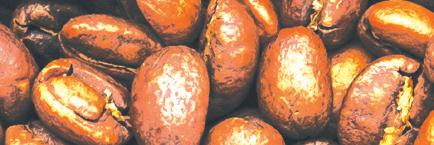
Let’s face it: 2022 was another grind of a year, an exhausting voyage across against economic headwinds and geopolitical tremors whose path ahead only promises more pain. Against that backdrop, ingredient suppliers, flavor specialists and the beverage makers that they work with are seeking to offer some relief by simply giving consumers the tastes that they crave: think indulgent desserts, crisp and refreshing fruits, and nostalgic candies.
As far as ingredient trends go, this one has a relatively long tail. Dave Asprey’s homespun “bulletproof” coffee recipe helped bring Silicon Valley’s biohacking sensibilities to mass audiences, and while most Americans still aren’t adding butter to their morning joe, Asprey’s recipes helped inspire current emerging brands like Kitu Super Coffee and Koia.
But while consumers are asking for functionality, these brands are betting they still want flavor, and they’ve leaned into indulgent taste profiles like salted caramel and glazed donuts for their latest RTD coffee releases. That aligns with Flavorchem’s 2023 Flavor & Trend report, which cites premium coffee as an in-demand platform for “experimentation, wellness, and novel flavors,” including cookie butter, bourbon caramel, chocolate cayenne and brown sugar. In its own Flavor Trends for 2023 report, T. Hasegawa notes that nearly half (48%) of global consumers are interested in cold RTD coffee with indulgent options. Other examples include Dunkin’s new Iced Coffee Bakery Series, with flavors like Cake Batter Donut and Brownie Batter, and, on the more functionforward side, Pop & Bottle’s Vanilla Cold Brew Oat Milk Latte + Collagen.
Rolling out the Pumpkin Spice for a few months every year doesn’t seem to be a problem, either, as 77% of global RTD coffee consumers say they find limited-edition flavors most appealing, according to retail data group Mintel. T. Hasegawa notes in its report that 15% of consumers prefer coffee as the beverage they are most willing to try unfamiliar flavors, while nearly three out of four global consumers say they like to see new and unusual flavors in coffee and tea, per Mintel. More broadly, coffee as an ingredient and flavor is enjoying strong momentum across categories, including snacks and desserts, which bodes well for future growth in RTDs.
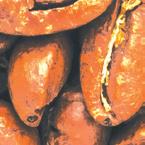
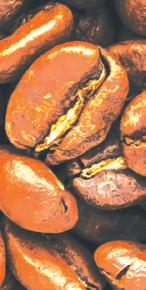
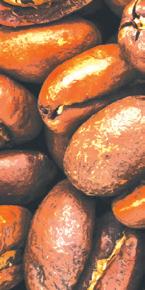

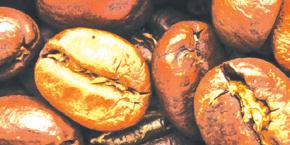
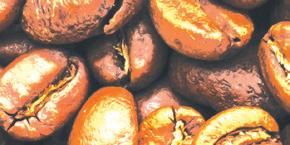

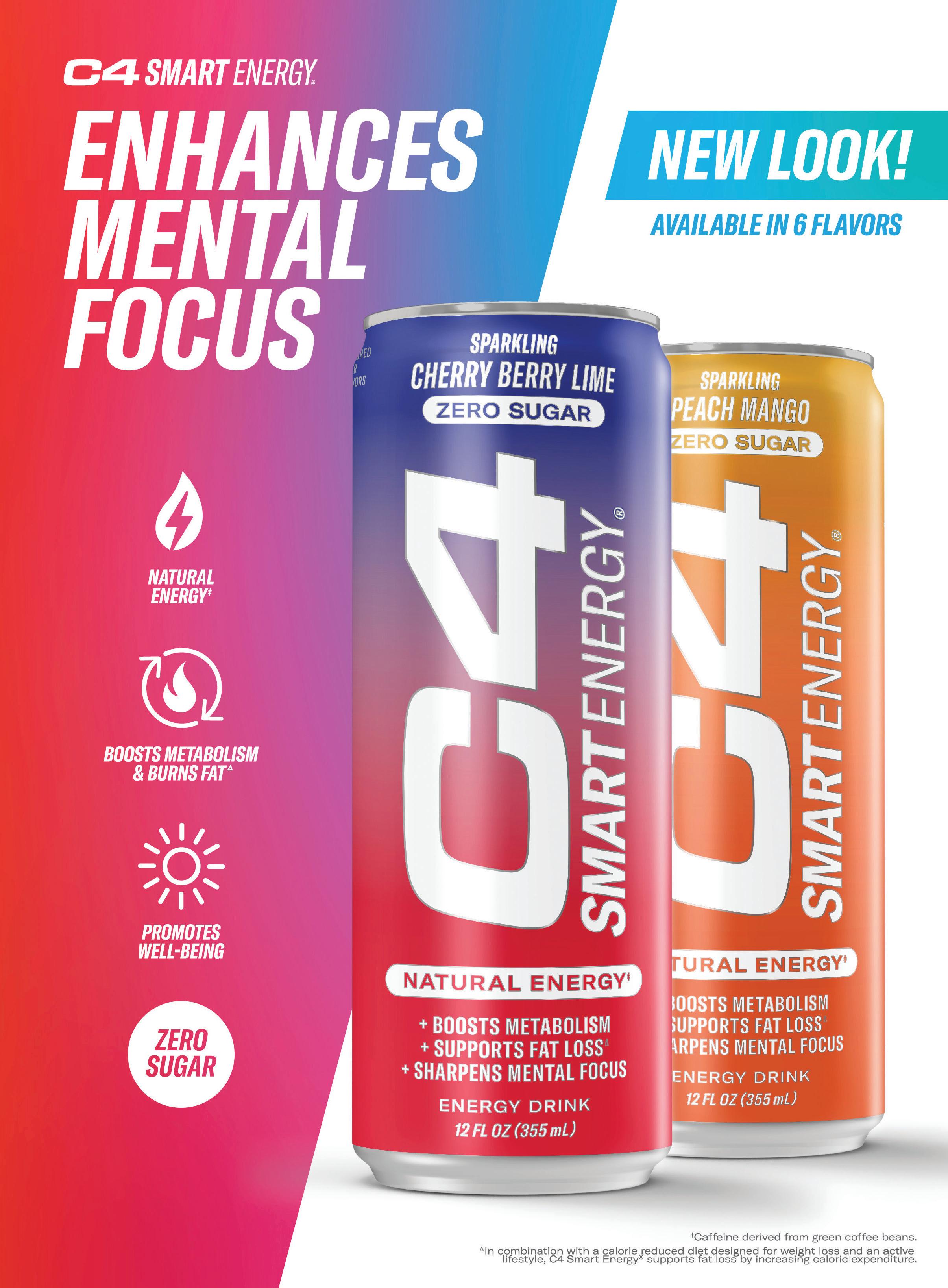

The word ‘exotic’ may be a bit loaded; its pertinence to each individual depends on their experience. That being said, “dragonfruit” may not be the rarest of flavors for the seasoned RTD beverage drinker, but rising interest in the fruit — named Firmenich’s 2023 Flavor of the Year back in December — may indicate a widening path ahead for other taste experiences of a similar ilk.
“Dragonfruit may be still a ‘rare’ fruit flavor for CPG food & beverage brands, but it is no longer rare to consumers,” said Jeff Schmoyer, Firmenich Global Head of Human Insights. The prickly fruit, known as Pitaya in Latin America, is a low water-use crop that offers a “light, refreshing, sweet” flavor that has long been favored in natural juices and smoothies, but is now getting more shine in packaged drinks. The fruit has proved a versatile flavor for categories ranging from energy drinks (Rowdy, Red Bull) to kombucha (KOE) to sparkling waters and soft drinks (the recently relaunched Bossa Nova, Polar, Tractor Beverages). According to Firmenich, dragonfruit use in actually growing faster in foods than in beverages, where innovations typically appear first.








In its 2023 trend forecast, The Arthur-Daniels-Midland Company (ADM) also cites the continued rise of “ripe, fruity citrus” like mango and passionfruit along with “juicy stone fruits.” Overall, citrus remains the “most classic” flavor profi le, accounting for nearly 30% of all new product launches, according to ADM. Within a saturated sparkling water market in particular, pushing boundaries with bolder fruit flavors is critical to standing out, according to Tom Gibson, Chief Flavorist at Flavorman.

“Client requests have taken a 180-degree turn on flavor, especially where seltzers and sparkling waters are concerned,” said Gibson. “Whereas before, clients would be looking for a gentler spritz of nuanced flavors in their drink, we are now seeing more clients ask for loud and proud, single-note flavors.”



It may not seem like an intuitive pairing, but candy and fitness get along rather well, apparently.
Last year saw performance energy drinks C4 and GHOST expand their use of licenses with their respective partners; for the former, that meant launching a Starburst flavor to complement its existing Skittles branded SKU. Meanwhile, GHOST, which counts Sour Patch Kids, Swedish Fish and Warheads among its licensing contracts, has continued to circulate those flavors through both its RTD and powder drink lines. Beyond the taste, those products help tap into nostalgic feelings and retro vibes for millennial and Gen X consumers, according to a report from functional ingredient maker Prinova, which lists retro candy and fruity cereals as flavor trends for 2023. T. Hasegawa reports that 17% of consumers seek beverages with nostalgic flavors for new flavor experimentation, while 46% choose nostalgic flavors specifically for dessert or confections.
That approach isn’t without some risks, however. GHOST was recently the subject of a complaint letter from advertising watchdog group Rudd Center for Food Policy & Health at the University of Connecticut urging the Federal Trade Commission (FTC) and Food & Drug Administration (FDA) to act against the drink maker for using kid-friendly candy brands on drinks intended for healthy adults only.
Which makes one wonder – is it worse to package healthier products with indulgent flavors and sell them to adults, or to make bad tasting, less nutritious products, and sell them to kids? Stay tuned for flavor trends 2024.


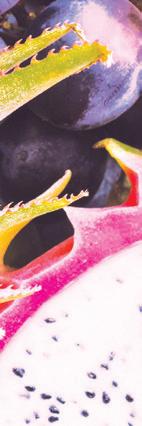






















 By Martín Caballero
By Martín Caballero








It may be hard to believe, but there was a time when the world didn’t know about cold brew coffee.
Look back to the mid-2010s, and you’ll find that the rumors are true: cold brew, in which coffee grounds are steeped in water for hours and kept cold throughout the brewing and bottling process, was a game changing innovation for the RTD coffee business. Iced coffee was already a massive category, fueled by Americans’ clear preference for chilled-over hot java and led by giants like Starbucks/Pepsi, but cold brew’s taste profile, premium price and ability to draw high-end specialty roasters into the market injected new life into the coffee space. With coffee shops helping drive awareness, packaged cold brew was suddenly viewed as the next essential addition to the cold case at grocery and convenience, populated by names ranging from the ultrapremium set (Stumptown, Blue Bottle) to those with more broadly appealing flavors and vibes (High Brew, Stok).
This nostalgic reverence isn’t to suggest that the category has come crashing down since then, however. Americans’ thirst for the stuff remains insatiable — QSR Magazine reported that cold brew coffee orders rose 27% year-over-year through April 2022, outpacing iced coffee by more than double. Ready-to-drink coffee is reflecting that growth: in the shadow of the massive conglomerates, innovative young brands like RISE Brewing Co., Nguyen Coffee Supply, Taika, Jot, Pop & Bottle and others have developed their businesses around their unique takes on cold brew.
But on the top end of the market, things look different. Coca-Cola, Pepsi and other major players have mostly consolidated their RTD coffee portfolios around a handful of straightforward, flavored iced varieties. Iced coffee is still the cold coffee of choice, with customers ordering 2.8 billion servings in the calendar year up to April, compared to 373 million servings of cold brew, according to QSR. That preference can also be seen in RTD; IRI data from MULO through November showed iced coffee sales growing 4.8% (over $3.3 billion), against a 14.5% decline in cold brew.
Whatever the brewing method used to make them, it’s clear that younger consumers in particular are eager for more RTD coffee options. And while cold brew itself may no longer be novel, its impact continues to shape the way brands, corporations and entrepreneurs are approaching the category.



For some of the biggest strategic beverage players, good coffee is where you find it.




More specifically, whether it’s coffee or not, American consumers are craving drinks that provide a boost of energy, and companies like Coca-Cola and Pepsi are primed to deliver them to those consumers in high volumes. Against that backdrop, coffee appears to have increasingly become one piece of a broader energy strategy that is reshaping the identity of its portfolio brands, and of the drink itself.
For Pepsi, that means leveraging its category-leading partnership with Starbucks to break into adjacent segments. As seen at the National Association of Convenience Stores (NACS) trade show in 2021, the beverage giant has aligned its energy portfolio around brands targeted to a specific demographic and experience: MTN
DEW for gamers, Rockstar for “mellow” and Starbucks for the “positive” natural consumer with its Baya Energy line.
Meanwhile, the continued success and expansion of Java Monster suggests that coffee as a flavor, even in nonpremium products, remains a strong purchase driver for consumers. Within the energy drink brand’s portfolio, cold brew is being deployed as a way to attract traditional coffee drinkers via the nitro-infused Java Monster Cold Brew, introduced last year in Sweet Black and Latte flavors in 16 oz cans. Now standing at nine SKUs, Java Monster has faced increasing competition from energy-adjacent products like Starbucks’ Double Shot and Triple Shot, as well as coffee products from male-skewing brands like Bang Energy and Black Rifle Coffee. The latter company’s fast expansion in RTD, to over 70,000 doors nationwide, has encouraged it to lean further into the category across multiple formats including high payload (300mg caffeine) 16 oz. cans, 11 oz. and 15 oz. cans for the cold box, and 6.5 oz. double shots.
It also seems worth noting that international brands have had mixed results in breaking into the U.S. cold brew market lately. BOSS Coffee, one of Japan’s largest brands and backed by spirits giant Suntory, quickly retreated to international markets after launching in the States, while Italian brand illy’s distribution presence has dwindled since its partnership with Coca-Cola ended. Elsewhere, family owned roaster Lavazza has committed to making its mark in the U.S. with its 4-SKU line of 8 oz. cans, launched in April 2022 and produced at its recently expanded roasting facility in West Chester, Pennsylvania.


The convergence of RTD coffee and energy drinks may be having other consequences, particularly for distributors.
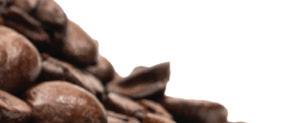

Back in 2020, La Colombe’s announcement of a 10-year distribution pact with Molson Coors for its canned Draft Latte drinks affirmed the shared belief that coffee represented a strong opportunity for the company to grow its portfolio of non-beer beverages. But just over two years later, in November 2022, having taken the product into national chains like Kroger, Walmart and Target, Molson Coors announced it had reached a mutual agreement to end its partnership with the Philadelphia-based coffee roaster effective March 31, 2023. Meanwhile, the beer distributor’s attentions have shifted to energy via a splashy alliance with superstar Dwayne Johnson’s ZOA Energy, which grew volume over 117% in 2022.
Though other factors are also clearly at play, that divorce represents another instance of coffee failing to find its place within the corporate mix. Despite being Coca-Cola’s largest ever acquisition, and being positioned as its flagship coffee brand, Costa Coffee has been sparingly deployed as an RTD brand; a three-SKU line of flat white iced espressos in 11 oz. slim cans, available in Signature Blend, Mocha and Caramel flavors, were teased at last year’s NACS show but have yet to receive a national rollout. Elsewhere, Keurig Dr Pepper’s (KDP) multiple forays into the category over the years with the likes of Peet’s, Forto and High Brew all quickly stalled. Having recently made an $823 million bet on the future success of Nutrabolt’s C4 energy platform, KDP’s desire to take another crack at RTD coffee isn’t clear.
Against that backdrop, it’s worth watching what develops at Anheuser Busch, which aligned with Austin, Texas-based functional coffee maker Kitu Super Coffee as a distributor and minority investor in 2020, and which also has more than one iron in the fire; see fastrising energy maker GHOST, which did $195 million in sales last year according to NielsenIQ data, growing volume over 1136% in that time. Recall that AB previously splashed into the coffee-andenergy space with the 2017 acquisition of Hiball, which has since gone quiet.
Following cold brew’s initial wave, other brewing techniques have had their say in the RTD category, from California-based Verve’s flash-brewed to the decidedly forwardlooking bean-less “coffees” from names like Atomo and Minus Coffee. But even though its newness may have worn off, cold brew remains a worthy vehicle for disruptiveminded entrepreneurs.
For Nguyễn Coffee Supply, the translation into RTD was intuitive. Its founder, Sahra Nguyen, had already built her New York-based company into a growing specialty roaster of Vietnamese-grown robusta coffees, the bean variety often overlooked in favor of its better known sister, arabica.

SOURCE: IRI, a Chicago-based market research firm-@iriworldwide% 52 Weeks through 01/01/23 cates that innovative cold brews still have space to expand into other channels. Pop & Bottle’s latest release — a three-SKU line of shelf-stable, organic, Direct Trade coffee “super concentrates” that can make 16 servings per 8 oz. glass bottle (MSRP $13.99) — was launched as a Walmart exclusive last year, giving the brand a presence outside of single serve coolers and allowing the store to upscale its center aisle coffee set.
Having poured time and energy into helping win convert consumers’ hearts and minds to Vietnamese robusta, translating that stronger, less acidic experience into a cold brew became the next step. After launching last year with a single Classic Black SKU, the brand expanded early this year at Whole Foods stores in New York City with two new flavors, Condensed Milk and Coconut, that further showcase Vietnamese coffee culture and traditions.
Another women-led coffee maker, Pop & Bottle, has validated the belief that innovative independent brands can make headway against larger competitors. The brand has seen its line of adaptogen-powered, oat milk-based cold brew lattes steadily claim a piece of the category; according to SPINS data shared by the company, its Vanilla Collagen Oat Latte was the top-selling shelf stable RTD coffee in the natural channel through August 2022, with its Mocha and Matcha SKUs also making into the top ten. The brand also saw total distribution points increase more than 15% from the year prior, outpacing all brands save for RISE Brewing Co.

Perhaps more importantly, those brands’ ability to grow outside natural retailers indi-




Meanwhile, RISE has targeted its expanding family of canned nitro cold brews at cstores; the latest addition is Salted Caramel with a 12 oz. can introduced last summer. Steady growth from its core line — unit sales (+18.2%) and dollar sales (+25.2%) are both up, per IRI — has given the Connecticutbased brand breathing room to push further into non-coffee products like oat milk in multi serve cartons and espresso-based RTD cocktails. The company’s experimental Nitro Shot — a concentrate capsule that can make rich, foamy nitro cold brew on-the-go when mixed with water — suggests it is still testing its boundaries.

Those experiences, and others, reflect how cold brew has for many brands become a significant piece of a larger business rather than its singular driving force. According to Caleb Bryant, Associate Director for Food and Drink at Mintel, inflationary pressures are creating opportunities for RTD coffee brands to take advantage of a shift to athome consumption.
“Consumers’ investments in their home coffee bars made during the pandemic are paying off as consumers increasingly experiment with new coffee drinks within the home, offering growth opportunities for coffee brands, coffee additives, and coffee accessories,” Bryant said.








SANG launched earlier this year with a range of ready-to-drink Vietnamese iced coffee, better known as cà phê sữa đá. The brand’s canned iced coffees come in three tasty flavors: SANG Traditional, SANG with Oatmilk and Straight Black with Vanilla.


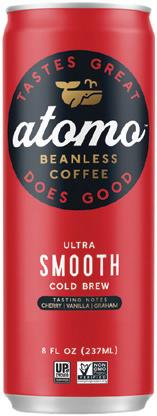
More coffee. Less waste. Cuvée’s new packaging is environmentally and economically friendly with 40% more coffee per container. That’s more brew for you and less waste for our planet.
After its Classic Black cold brew flavor was recognized as one of 2022’s Best New Products at BevNET Live, Nguyen Coffee Supply is thrilled to be launching two new cold brew flavors: Condensed Milk (dairy) and Coconut (non-dairy) and. All 3 cold brew SKUs of the brand’s Vietnamese coffee launched with Whole Foods at the new store opening of One Wall St.
RISE Brewing Co., the organic nitro cold brew coffee and oat milk company announced the launch of its newest flavor: RISE Salted Caramel Nitro Oat Milk Latte. The nitrogen-infused cold brew latte enhances the brand’s signature organic coffee with dairy-free, organic oat milk, sea salt and deliciously sweet caramel. It’s creamy, slightly sweet and refreshingly smooth.
Super Coffee is proud to launch its latest bottled coffee innovation: Strawberry Glazed Donut. This limited time offering will kick off the New Year with zero sugar, 70 calories, 200mg of caffeine and all of the flavor of your favorite Strawberry Glazed Donut.

Oaza Beverages, winner of the 2022 InnoBev most functional beverage launched chain-wide at Wegmans. Available in 3 flavors - Black, Oat Milk and Cacao Mocha - each 7.5 oz. can features electrolyte-infused cold brew and has 200mg of caffeine.
Explorer Cold Brew, which produces a range of coffee and chai concentrates in various caffeine levels, completed a
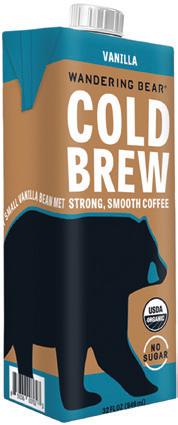

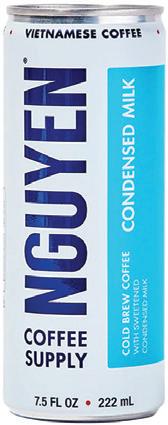


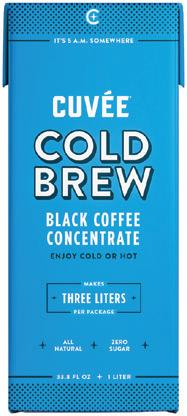
$2.5 million seed raise to fuel expansion into retail and grow their existing ecommerce business and Delta Airlines partnership. The round was led by consumer fund NewBound Venture Capital and Bill Ackman’s family office Table Management, and included Justin Robinson, Raphael Farasat, Sara Brooks, Timo Weiland and more.
Direct-to-consumer coffee brand Wandering Bear is expanding its ready-todrink line of eco-friendly 32oz “extra strong, surprisingly smooth” cold brew cartons to include their online bestsellers (Vanilla, Mocha, and Caramel). As always, all products are USDA organic and zero-sugar. The new items will be available nationwide beginning in February.
Following the successful introduction of new flavors Nitro Black and Nitro Sweet Cream, High Brew is extending the line to include Nitro Caramel. High Brew Nitro flavors introduce Nitrogen at the point of consumption leading to a frothy, vibrant mouth feel.
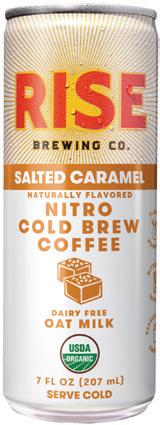
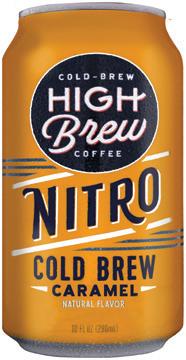
Atomo was recently featured in TIME’s Best Inventions of 2022 as one of the most innovative beverages. Atomo’s beanless cold brew was recognized by the magazine as “a shockingly close coffee dupe at a fraction of the environmental cost”. Creating a great tasting coffee that is better for the planet, Atomo’s cold brew contributes 93% less carbon emissions and uses 94% less water than conventional coffee.
JavaTwist is a refreshingly cool twist on coffee and fruit. The brand has just launched the “Naturals” line of beverages beginning with its Zero Added Sugar LemonBrew. This beverage pairs cold brewed coffee with lemonade using monk fruit as its sweeter.
NuRange Coffee has revamped its packaging based on market feedback. Additionally, its distribution has grown to over 1,200 stores including Whole Foods, Hy-Vee, King Soopers, City Market and many more.
Jibby Coffee has been named the first Fair Trade Certified line of CBD-infused coffees and lattes. Available in four varieties – Mocha Latte, Oat Milk Latte, Matcha Latte and Cold Brew Coffee – each 11 oz. can has 25mg of hemp CBD and 110mg of caffeine.
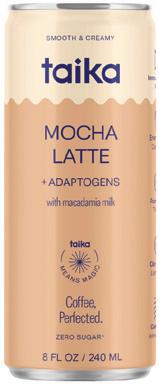
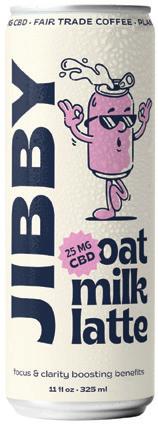
Bizzy Coffee, which manufactures organic cold brew coffee in Minneapolis, Minn. is the fastest growing brand, year-over-year, in dollar and unit sales in the refrigerated ready-to-drink coffee category (among top 25 brands).

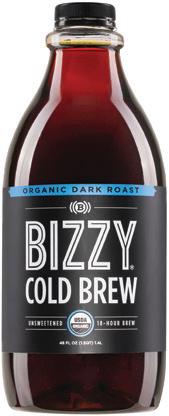
Taika has made distribution gains, opening the following accounts and more in 2022: Gelson’s, Lassen’s, Tocaya, Earthbar, Fresh Thyme, Nugget Market, Oliver’s Markets, Draeger’s Market, goPuff, Thrive Market, Foxtrot, and Kehe. The creative fuel brand also added a new flavor to the lineup: Mocha Latte.


After 18 months of battling “external factors,” Super Coffee has transi-
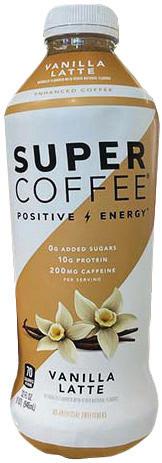
tioned its glass multi-serve bottle into a new rPET Super Coffee Multi Serve, chief revenue officer Jake DeCicco announced in a LinkedIn post. The rPET multi-serve bottles are now available at Whole Foods Market nationwide.

Specialty coffee roaster La Colombe celebrated the winter holiday season by bringing back its Peppermint Mocha Latte for a limited time. Additionally, the brand rolled out a new dairy-free version of the festive drink: Oatmilk Peppermint Mocha Latte. Both varieties are crafted with 100% Arabica single-origin Brazilian cold brew coffee.
Although official details remain scant, Sylvester Stallone has apparently entered the RTD coffee world with the launch of Tiger Eye drinks on GoPuff. Available in three varieties – Iced Coffee Latte, Iced Coconut Latte and Iced Coffee Mocha – the 8.5 oz. cans are available for $2.99 each or $8.97 per 3-pack.


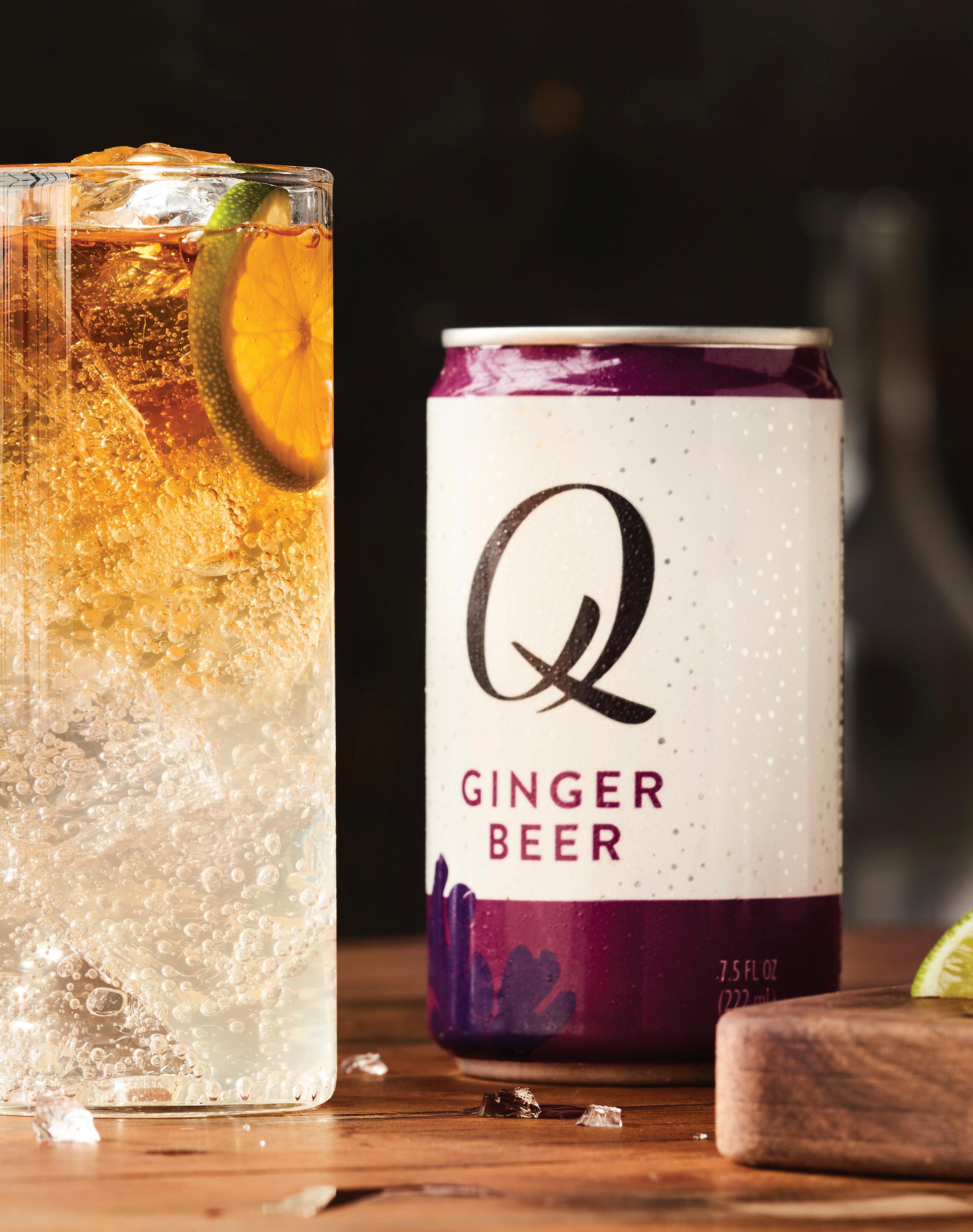
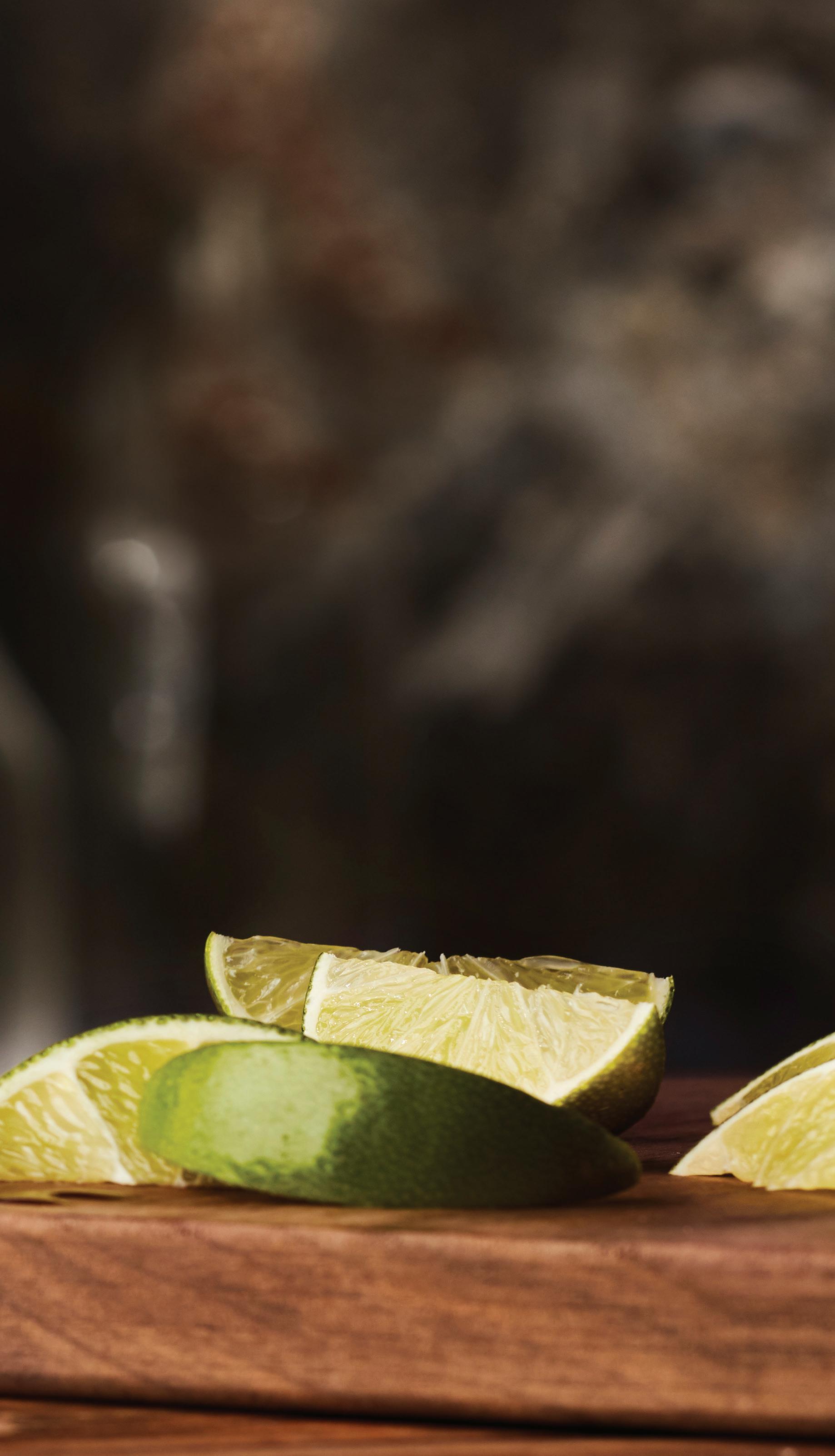 By Brad Avery
By Brad Avery
Q Drinks founder Jordan Silbert has often said the inspiration for his mixer brand came from personal experience – If he was spending good money on premium spirits, why would he bury those flavors in low quality mixers?
Founded in 2006, Q is now one of the top two premium mixer brands in the market, alongside British import FeverTree, with both brands amounting to a combined 7-8% unit ounce share of the entire mixer category, according to Q. IRI reported retail dollar sales of Q’s liquid mixer line up 26.1% in the 52-weeks ending January 1, 2023 while its tonics and club sodas grew 3% to $15 million in the same period. In the same period, Fever-Tree rose 12.1% to over $46.6 million in retail sales.
Last June, Silbert moved into the chairman position at Q Drinks, handing the CEO role over to former Mondelez International SVP of sales Bob Arnold. Now, seven months into the role, Arnold believes the market for premium mixers is rapidly evolving – looking much more favorable to the category than it did even last summer –as the adult beverage sector undergoes its own transformation through the rise of non-alcoholic alternatives and RTD cocktails.
“You look at the premium segment, the premium segment is well positioned by 2025 to almost, I think, no longer be considered the premium segment, but rather, the mainstream,” Arnold said. “And the [current] mainstream becomes the value.”
Overall, IRI reported that liquid cocktail mixers up 0.8% in the period, as brands like Zing Zang reported modest 0.4% dollar sales growth and others such as Mr. & Mrs. T (-5.5%) and Tres Agaves (-5.7%) fell. However, tonics and club sodas have seen significant growth, up 14.3%, with private label drinks growing 6.6%. But the growth has primarily come from the premium players, as mainstream
stalwarts like PepsiCo’s Schweppes (-6.2%) and KDP’s Canada Dry (-8.1%) have struggled to keep up with premium competition.
in the retail space that we need to be leaning in on,’” Arnold said. “So it’s pretty extraordinary that’s happened – forget about years, within months.”





















According to Josh Miller, founder of craft mixers startup Owen’s, the ability for premium and small brands to swift ly innovate has been a key advantage over mainstream brands. Last year, the brand – which is currently in over 23,000 retail doors nationwide and more than 10,000 on-premise accounts – introduced a nitro-infused espresso martini mix containing 50 calories and 2 grams of sugar per can. Miller noted that the use of nitro, along with the better-for-you label, has helped attract new and younger consumers to the brand.
“What’s really driving this category is bringing new consumers into it,” he said. “We don’t just go after your stereotypical cocktail crowd of 41 to 60 years old at home, we try to skew younger, older, middle aged so there’s a product for everybody. And we found the espresso martini brought in this new generation of drinkers.”



supply disruptions hitting Q and Feverin Q’s rearview). Last year, Fever-Tree unveiled on its core sparkling mixer offerings, while also quietly

The premium segment has continued to perform, even in the face of some pandemic-related supply disruptions hitting Q and FeverTree last year (and which Arnold said is now in Q’s rearview). Last year, Fever-Tree unveiled a slate of lower-calorie innovations, including its new Blood Orange Ginger Beer and Lime & Yuzu flavors on its core sparkling mixer offerings, while also quietly acquiring U.S.-based Powell & Mahoney – which produces multiserve craft margarita, sour and bloody mary mixes –for $5.9 million.


The mixer category has also benefited from some new blood through startups like AVEC, Top Note Tonic, and the actress Blake Lively’s Betty Buzz entering the fray. Now, this wave of innovation – combined with the poor performance of many of the old mainstream brands – is leading some retailers to rethink the mixer shelf. Even in the short time since Arnold took over the day-to-day operations at Q, he said retail buyers who previously told him mixers were a low priority category are now coming to the company seeking “thought leadership” on how to grow the set.
The pandemic helped to charge up the premium mixer segment after consumers began paying more attention to the alcoholic beverages they were preparing at home. The growth of premium spirits – which has remained resilient despite the looming threat of a recession – has also been a source for the expansion of the premium mixer segment, and the market for adult beverages is also rapidly diversifying. The Dry January and sober curious trends have led to the rise of the alcohol alternative category, which has created an influx of NA spirits, wines, beers and mocktails seizing shelf space.
According to research company CivicScience, a survey of nearly 3,000 U.S. consumers who drink alcohol found 41% were somewhat to very likely to participate in Dry January, down slightly from 43% last year but still elevated from just 33% in 2021. Gen Z consumers were most likely to take a month off of hard drinking, as 55% of consumers aged 21-24 said they would participate, while older millennials and Gen X (ages 35-54) were the least likely to join in at just 38%.



“The conversation they’re starting to understand is, ‘Okay, I need to give more space to this premium segment, I need to shrink down the mainstream segment, and we now have two new anchor brands




“The conversation they’re starting to understand is, premium segment, I need to shrink
like Seedlip and Lyre’s to cross-promote, including
companies’
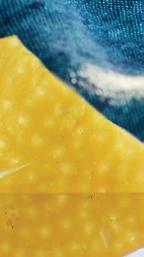
products together. However, Gibb said

At Fever-Tree, which has more than doubled its business since the pandemic began, CEO Charles Gibb said the brand has been quick to partner with NA spirits producers like Seedlip and Lyre’s to cross-promote, including digital campaigns advertising both brands and in-store activations and sales, encouraging consumers to buy both companies’ products together. However, Gibb said he believes that Dry January is just one branch of the larger better-for-you macro trend, providing Fever-Tree an opportunity to establish itself as












not only a better quality, but also a healthier way to drink. The brand’s low calorie Blood Orange Ginger Beer SKU became its alltime fastest growing new product launch, he said, and additional innovations will lean into the better-for-you positioning.

“The bit that excites me frankly is – yes, continued growth in tonic, yes, continued growth in ginger beer – but this area of low calorie drinking, which really fits into Dry January,” Gibb said. “Because Dry January, when you really want to talk about it, is a concept around being healthy.”

Dwight Richmond, director of center store at Seattle-area natural retailer Town & Country, said the overall mixer category has struggled for years and was upheld primarily by Bloody Mary and Margarita mixes, as consumers paid more attention to ingredient labels and sugar content and the old mainstream mixers fell out of favor. But even attempts by mainstream brands to introduce premium lines (such as Schweppes and Canada Dry have introduced) has been “too little, too late,” he said.
“[Mixers is] not a category where we’re going to say, ‘Okay, well, we’re going to abandon it and get rid of it completely,’” Richmond said. “But in larger sets and larger stores, yeah, we might pull it out for some more NA space because NA is where the massive growth is coming from right now – and ready-to-drink cocktails.”
Town & Country became one of the first U.S. retailers to introduce a dedicated alcohol alternatives set last spring and has seen the strength of the NA boom, Richmond said, as sales are potentially on pace to surpass $1 million across six stores in its first year since building out a dedicated shelf.
But Richmond noted that “new guard” brands like Betty Buzz are “making up the losses in the gaps of the category overall,” as the startup makes an aggressive marketing push to grow awareness. This has led Town & Country to readjust its approach to the mixer set, “stripping out some of the old guard” in order to provide a fresh arrangement with better-for-you and higher quality brands. And if the retailer does decide to expand its NA set at the expense of mixers, it’s less likely to come out of the premium brands’ space.
At California-based retail chain Erewhon, purchasing director Ana Yoo said brands like Betty Buzz are doing well, but the trendsetting grocer’s customers are mostly gravitating towards functional NA brands and mocktails like De Soi, HiYo and Kin Euphorics, which can be consumed as a standalone mocktail, or used as a mixer with spirits.
While alcohol alternatives are certainly impacting the mixer set, less clear is the role RTD cocktails could play in the category’s future. While canned cocktails may appear to remove the need for a mixer, Richmond said he’s mainly seen the category draw the most sales away from wine, while Arnold and Gibb said their data shows it drawing sales from craft beers. Gibb suggested that canned cocktails may even be complementary to premium mixers by introducing more consumers to upscale alcohol consumption. Meanwhile, a different opportunity may emerge for smaller mixer brands as alcohol manufacturers seek partners to launch RTD cocktails with; Miller said that Owen’s has fielded numerous calls from large alcohol conglomerates interested in working with the brand on co-developing an RTD, although he hasn’t taken any up on the offer yet.








Feeling Nostalgic? Drinkers’ Choice newest flavor, The Shirley, is a classic reimagined. Classic all-natural cherry taste that’s great as a mixer, or perfect on its own. Launched in summer 2022, The Shirley has already ranked #1 in category sales for the year by CPG Pulse & is actively looking for distribution partners.

In Q2 2023, Modica will release two new superfood mixer flavors: Cacao Espresso Martini and Blueberry Lavender Lemon Drop. Each of the new mixers will make 10 drinks per bottle and can be mixed with spirits for a cocktail or with club soda for a mocktail.
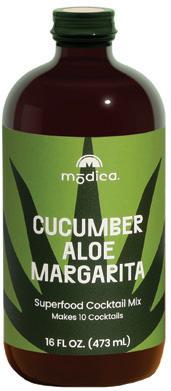
Cheeky Cocktails is announcing new distribution with Boisson in New York and Lipman Brothers in Tennessee. Cheeky recently executed a brand refresh with a new logo and labels for better visibility on shelf and alongside premium spirits.

Waterloo’s Blackberry Lemonade was thoughtfully developed over 10 months to bring consumers a nostalgic and authentic flavor experience perfect for incorporating into your favorite mixed drinks. Waterloo Blackberry Lemonade has quickly become a must-have for cocktails and mocktails alike with a focus on flavor.
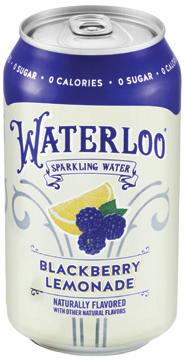
Handcrafted cocktail company Mixly Cocktail Co. announced a new flavor addition: Blueberry Lemon Sage. A mixer that is as good as it looks, Blueberry Lemon Sage is popping with flavor and color. The slightly sweet notes of blueberry, paired with the bright notes of lemon and warmth of sage, creates a well balanced cocktail to pair perfectly with vodka, whiskey or gin.
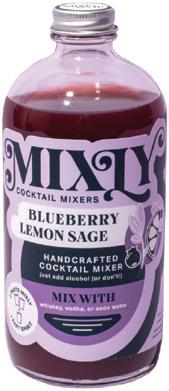
Owen’s Craft Mixers recently launched their new Espresso Martini Mix ($13.99 for a pack of 4) which is now available on Amazon. This perfectly-crafted, pour-over your favorite spirit (or ice) non-alcoholic cocktail mix that’s made with real ingredients, less sugar and quality you can taste.
Root Elixirs recently rolled out revamped packaging just in time for the new year. The brand also unveiled its newest seasonal LTO, Apple Spiced Ginger Beer.
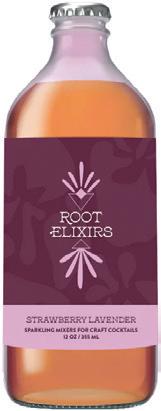

Fever-Tree Blood Orange Ginger Beer has the fiery, full-bodied taste of our awardwinning Premium Ginger Beer, balanced with the juicy and zesty flavors of Blood Oranges from Italy. The sweet characteristics from Blood Orange are combined with a juicy top note to bring a wonderful balance to this flavored Ginger Beer. A uniquely refreshing drink, specifically made to be mixed, but equally delicious on its own.

Q Mixers has launched its Spectacular Bloody Mary Mix, a premium alternative to the watery, high-fructose mixes currently on shelves. This better-for-you Bloody Mary mixer is purposefully crafted with no high fructose corn syrup, genetically modified ingredients, artificial flavors or preservatives.

Betty Buzz sparkling non-alcoholic mixers announced its expansion into Whole Foods nationwide and on Amazon. The news was shared alongside a cheeky new video starring founder Blake Lively and marks an important milestone for the brand as it enters its second year in business. The line, which includes five flavors made to mix or enjoy solo, has achieved unrivaled growth since launching in late 2021 and secured distribution in over 8,000 stores nationwide.
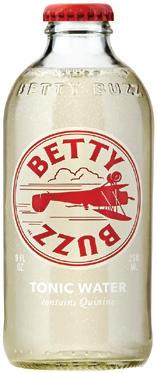
Momo’s Michelada Mix, owned by a black-female and veteran couple out of Austin, Texas, is a delicious tomato free, vegan, and lemon based flavor that now has 3 sizes available which are 2 oz singles, 16 oz. and 1 liters. Outside of the greater Austin area, the mixes can be purchased on the brand’s website.

British brand Longbottom & Co launched Longbottom Virgin Mary in the US, bringing a premium, pourable, non-alcoholic Bloody Mary mixer to consumers in Chicago. It is now available for purchase to US consumers in the Chicago metro area.
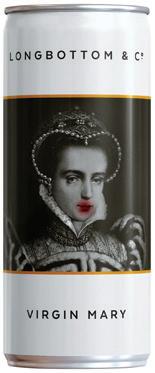
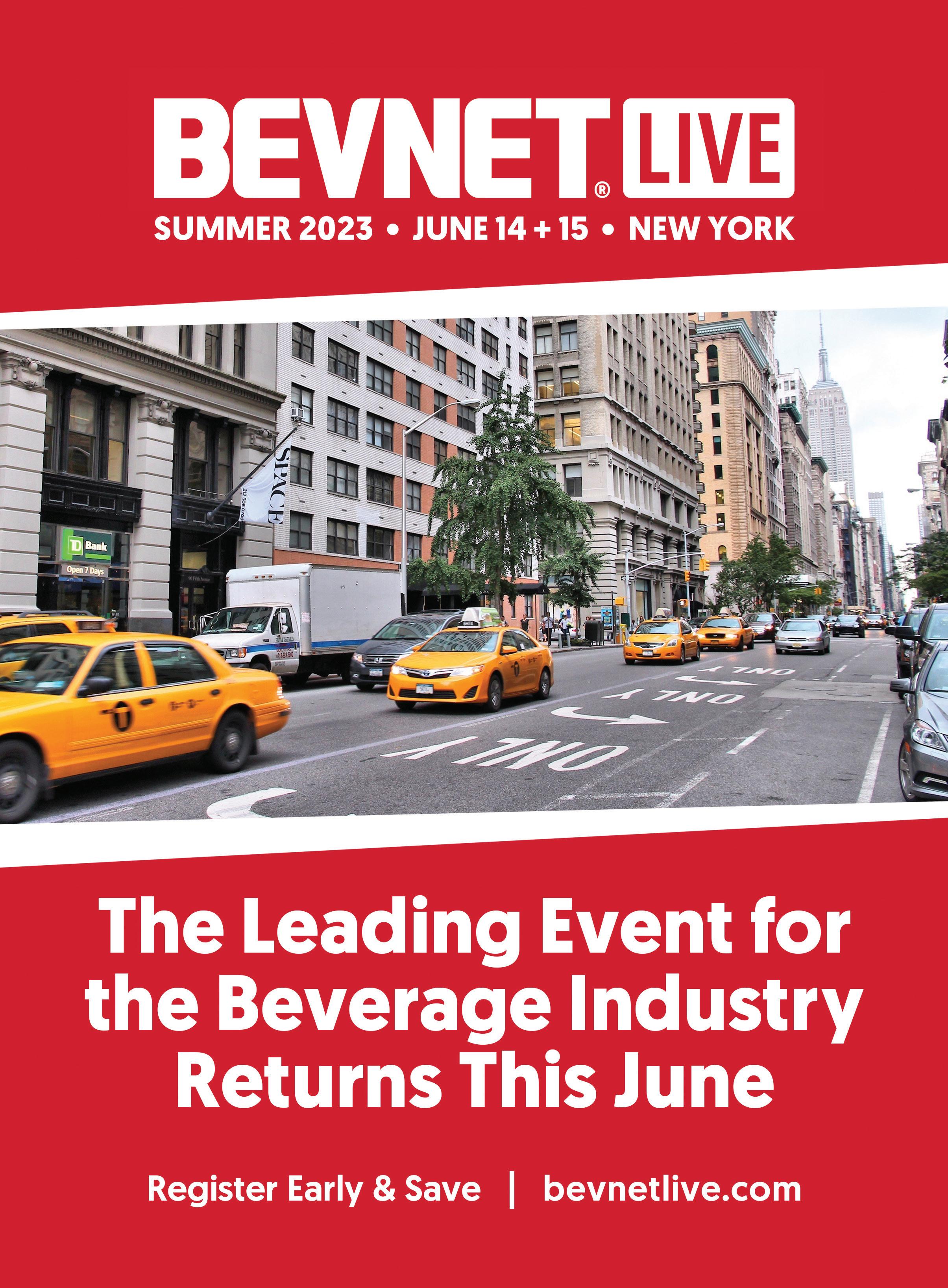
From the espresso martini’s comeback to canned hard water, there’s been no shortage of surprising developments in spirits recently. But what are the overarching trends that will shape the industry in 2023? Here are four drivers of change to look out for.



In the last year more drinkers have adopted moderate drinking habits by switching between full and zero-proof cocktails, enjoying occasional low-alcohol or functional beverages, or abstaining altogether.
“Moderation is not just a moment, it’s a lifestyle for many people,” said Brandy Rand, chief strategy officer for drinks data company IWSR.
Now an $11 billion global business, no- and low-alcohol has proven to extend beyond a moment as well and is projected to grow 7% in volume over the next four years, according to IWSR.
More options to meet each occasion are likely to emerge from well known spirit brands or portfolios, which will help grow consumer perception and awareness, said Rand. Among non-
alcoholic spirits, clear spirit replacements like gin and tequila alternatives are the fastest growing non-alcoholic segment in the U.S., and dark alcohol-free spirits catering to whiskey and rum drinkers are providing new options that can be straight or mixed. Those spirits will mirror industry-wide behaviors.

“As premiumization has been a trend in beverage alcohol for several years, the no- and low- space will continue to grow not only on existing brands but with new offerings at higher price points,” said Scott Lammert, executive vice president of supplier business development for Republic National Distributing Company.





No-alcohol spirits are expected to see more dynamic growth as brand owners invest in innovation and retailers and bars develop nuanced non-alcoholic beverage sets and menus.
“There is starting to be a much clearer consumer and trade differentiation between low and no,” said Rand. “We see the motivations to drink each category to be different, so how we segment and talk about the low versus no-alcohol categories will become more important, especially at retail.”
U.S. alcohol sales in 2022 were led by premium spending across categories, and despite the economic climate most analysts agree that high-income drinkers will continue shopping for pricier spirits, but possibly with more caution. In 2022, total spirits volumes grew by 2%, with premium-plus up 13%.
“Alcohol has evolved to be much more lifestyle driven in that people are willing to invest in quality – what you drink says something about who you are, it’s a very social experience,” said Rand.

That attitude is expected to mitigate the trade-down in spirits from consumers more impacted by inflation. While sales analytics agency Bump Williams Consulting tracked a dip in upper-tier spirits towards the end of 2022, macroeconomic headwinds don’t appear strong enough to completely reverse the long-term trend.
“I think spirits in general are going to continue to perform well, I just think we’re going to see a slowdown on those higher end spirits— they’re not going to be carry-
ing as much of the weight as they might have in years past, at least in the short term,” said Dave Williams, vice president of analytics and insights at BWC.
Among high-quality products, consumers are shifting to smaller bottle sizes versus moving to lower-priced brands within spirits, noted RNDC’s Lammert.

The categories consumers are most excited about spending on? High-end tequila and U.S. whiskey. But drinkers are also reaching for pricey bottles in categories that have experienced moderate or soft volume growth, like gin and rum.
“We’re seeing similar behaviors in categories like gin, it’s just about waiting for one of those brands to really step into the forefront and catch its stride and get to scale like in some of those other categories,” said Williams.

With whiskey and agave threatening to overtake vodka as America’s favorite spirits, enthusiasts are looking for new and interesting products— creating an opportunity for diversification within the categories.


Total whiskey volumes were up 3% in 2022, surpassing vodka last year for the first time in almost two decades, per IWSR. Whiskey also saw a fair share of mergers and acquisitions in 2022 with major spirit players like Diageo and Campari bringing higher end producers like Balcones Distilling and Wilderness Trail into their portfolio. The recent proposition to officially recognize American Single Malt as a category will fuel a lot more investment and innovation in the segment, added Rand.
Meanwhile, agave spirits contributed $1.6 billion to the spirits industry in 2022, accounting for 70% of the overall volume growth and 65% of overall value growth of total U.S. spirits, according to IWSR. As tequila’s popularity continues to rise, drinkers will likely explore similar spirits.
“The rise in tequila goes so well with the premiumization trend because now you’ve got these mezcals jumping in,” said MaryAnn Pisani, chief revenue officer of MHW, a beverage alcohol importer, distributor and service provider. “All those boutique mezcals that didn’t really have a chance five or ten years ago, now there’s this huge slot for them because there is space for a $50-plus bottle.”
Other agave and Mexican spirits are emerging and though they are tiny in volume terms, the growth rates indicate early momentum. Data from IWSR showed sotol was up 23% last year, raicilla 75% and bacanora 72%.

Coming off seven straight years of volume gains, the ready-todrink category will continue to evolve with spirit-based RTDs leading the way. Premium-priced RTDs have grown faster than any other segment over the past two years, according to IWSR data. That momentum is driven by an increase in spirit-based cocktails, higher-proof offerings and well-known premium brand extensions.
“We expect continued over-performance of spirits-based RTDs versus the industry and malt-based hard seltzers, as industry leaders continue to enter the space and leverage brand-building capabilities and scale,” said Lammert.

More agave based RTDs will likely crowd the shelves, mirroring tequila’s ascension. Ranch water, paloma, and the evergreen margarita will be some of the top growing flavors, added Lammert.
While overall premiumization trends are moving drinkers to spirits-based canned cocktails, those RTD brands are also doing a better job at appealing to a broader base of consumers, according to Williams.
“I think we’re seeing beer drinkers remain pretty loyal to the category, it’s just that they’re not seeing the same influx of new drinkers,” said Williams.
New drinking-age consumers are finding their way into alcohol via canned cocktails, he added. While BWC includes all RTD bases in its data, the agency expects RTDs to cut into about 20% of beer shelf space during the spring resets as retailers trim to make room for hot growth areas. Spirits companies may also work harder to reach those tech savvy demographics online — luxury alcohol e-commerce site ReserveBar recently launched a canned alcoholic beverage focused site, for instance.
As major beverage companies continue to innovate in the RTD space, they will also likely look for inroads into beer channels. Spirit giant Sazerac recently transitioned from wine and spirits wholesaler RNDC to several beer distributors. Like Topo Chico’s spirit-based version of its hard seltzer brand set to release this year, other beverage companies may continue to launch spirit takes on their malt ready-to-drink beverages, putting themselves in position to be effective in beer and wine-only channels if state liquor laws change. While there were some legal victories for spirits in 2022, state-level lobbying will heat up as advocacy organizations push to equalize tax rates for spirits, open up sales at grocery and convenience outlets, and legalize direct-to-consumer shipping.
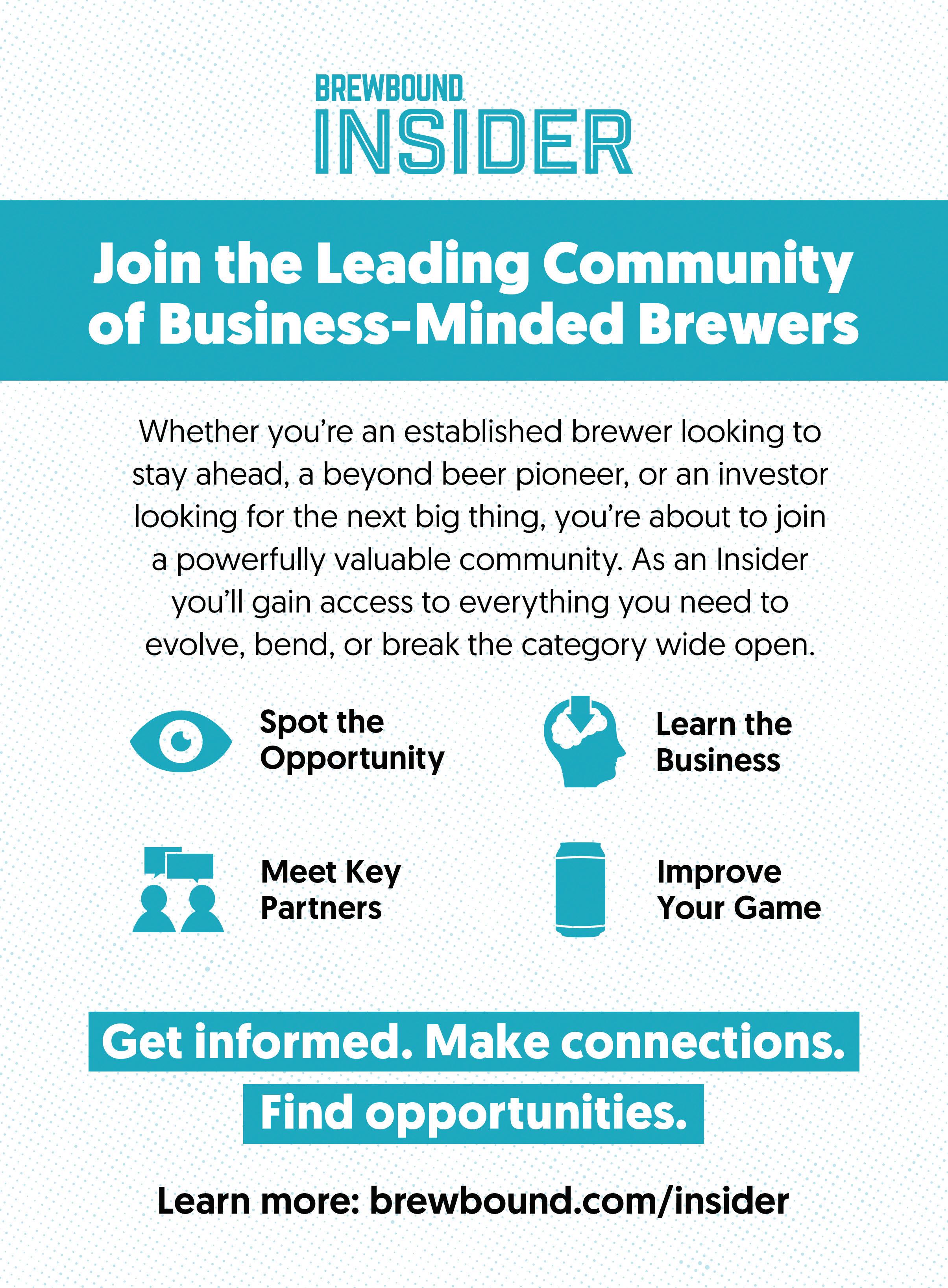
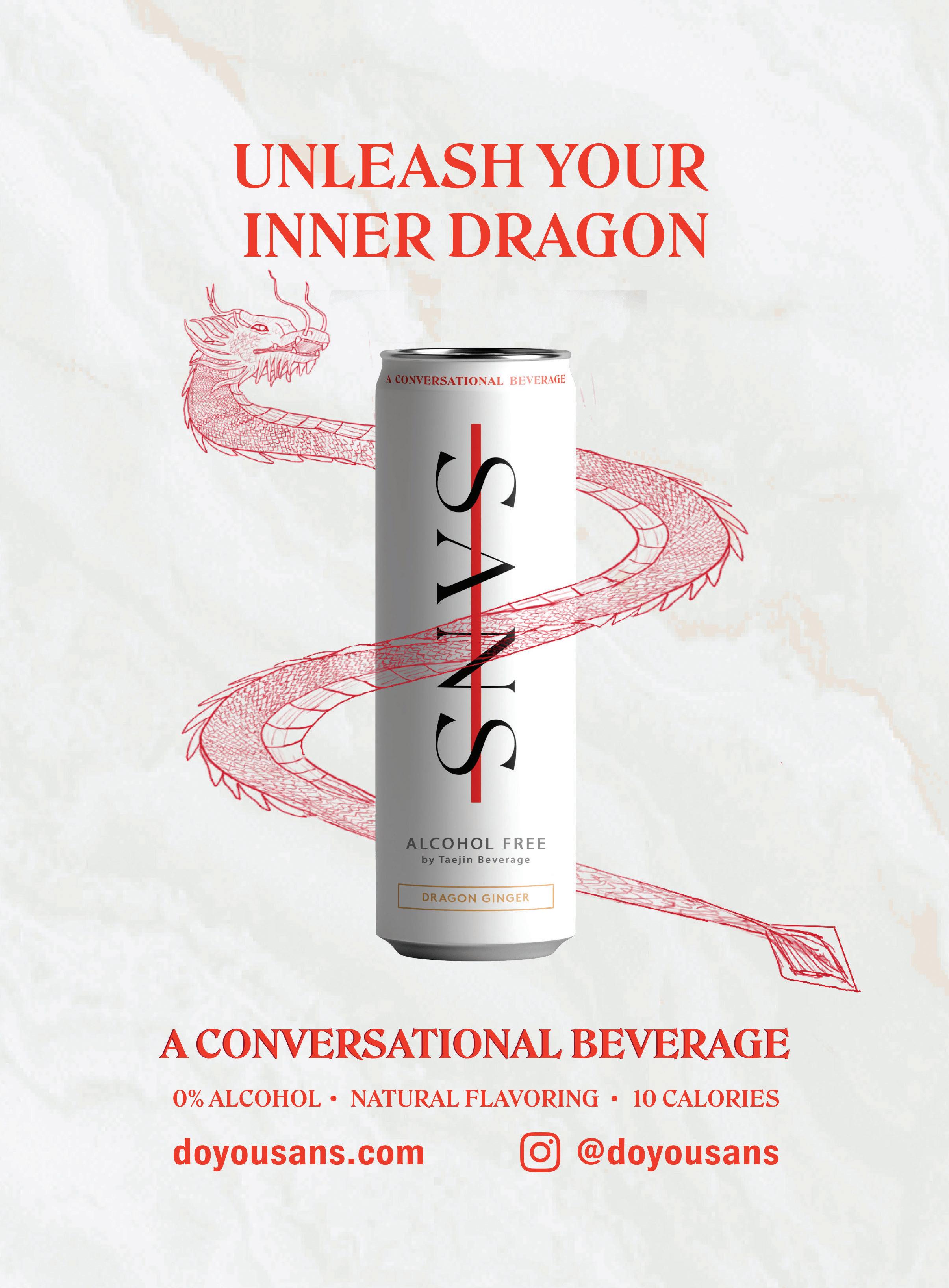
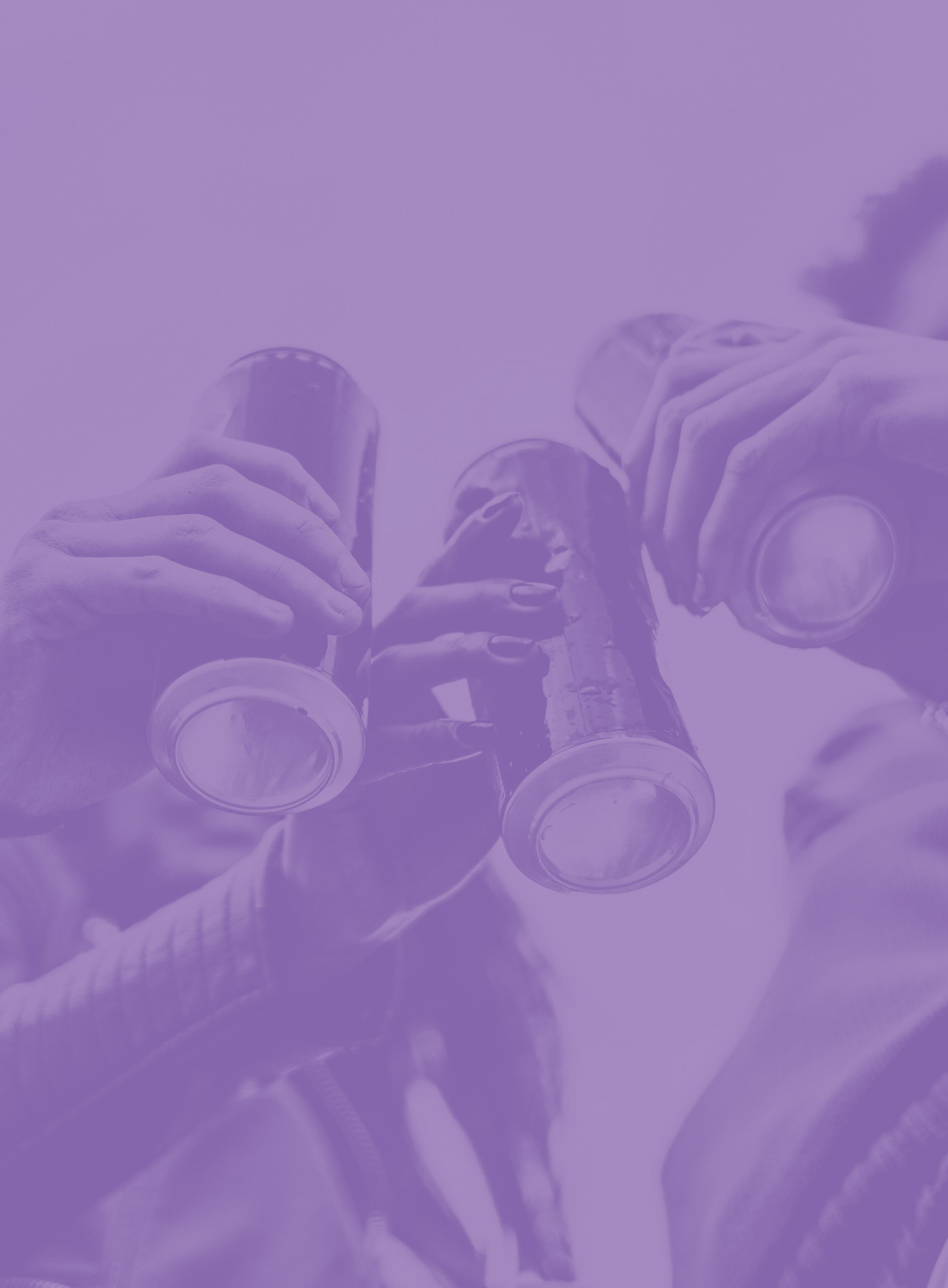
503 Distilling - The Official Canned Cocktails of the Northwest

Introducing Big Sipz Cocktails


Big Country Organic Hard Seltzer Gold Medal Winner
Cocktail Inspired Hard

Bluebird Hardwater’s First-Ever Canned Hardwater Beverage
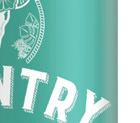
Bluebird Hardwater
Bluebird Hardwater creates the first and only canned hardwater beverages. Utilizing only two ingredients, each 12-ounce serving of hardwater is the perfect combination of premium spirits with ultra-purified water. It ditches the carbonation (zero bubbles), preservatives, sugars, fake flavors, and artificial sweeteners that typically accompany alcoholic beverages.
Bluebird Hardwater is offered in three different options:
VODKA + WATER: Made with a clear, smooth 10x distilled vodka, VODKA + WATER is a bright pour that highlights the clean taste of vodka without any of the typical burn.
TEQUILA + WATER: Crafted with a Mexican Blanco tequila made from agave, TEQUILA + WATER is a crisp drink that’s smooth start-to-finish.

WHISKEY + WATER: Mixed with a sweet, warm aged whiskey, WHISKEY + WATER tastes like the perfect last sip of whiskey on the rocks.
Bluebird Hardwater prioritizes a light, clean, and high-quality beverage while ditching the carbonation, preservatives, sugars, and artificial sweeteners ingredients.

BTL SVC - Perfectly Balanced, Award-Winning, Premium Quality Cocktails

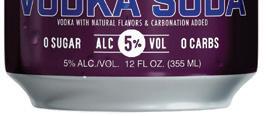
BTL SVC
Bambucha - Not Your Average Hard Kombucha

Bambucha Kombucha
Bambucha is not your average hard kombucha. We are chef-crafted with a very flavor forward, well balanced profile. It's just the right amount of tart without the vinegar bite. USDA Organic, Gluten Free, and Vegan.

CANTEEN Vodka Soda - Drink Better: Ready to Drink, Ready to Go!
Canteen Vodka Soda
CANTEEN Vodka Soda is light, crisp and refreshing and perfect for any adventure. Zero Sugar, Zero Carb, All Flavor. Made in Austin and sold Nationwide. Low Calorie, 5% ABV and available in 7 flavors + multi flavor packs.
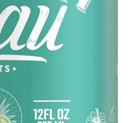

Cantina Margarita-style Hard SeltzerMade in Austin. Born our West.
Cantina Margarita Hard Seltzer


Cantina Margaritastyle Hard Seltzer is a fresh new take on hard seltzer. All-Natural and never bitter. Fresh & Easy to drink, this 6% ABV seltzer comes in 3 flavors; Strawberry, Mango & Original Lime and sold in a 12pack multi flavor.
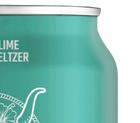
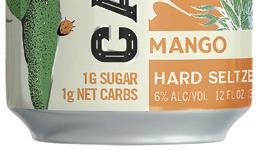
Purpose Driven Spirit Based Hard Seltzers that are Mixed for Music
Country Luau Spirits
Country Luau is a purpose-driven line of ready-to-drink cocktails and seltzers made w/ premium spirits and organic juices. In addition, 2% of our revenue is donated to musicians and organizations that support musicians through our grant program, Mixed for Music.
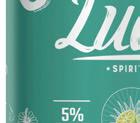
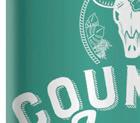
Collective Arts’ Mixologist-Inspired Canned Cocktails Collective Arts

Spirits with Real Fruit Juice, Natural Flavors and Carbonation Day Chaser Cocktails
Dry Fly Distilling “On the Fly” Canned Cocktails

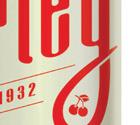
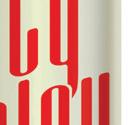
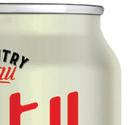
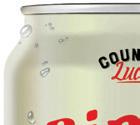
Dry Fly Distilling, Inc.
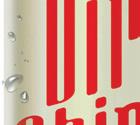
Nostalgic Cocktails Mixed With Real Liquor and Organic Juices
Country Luau Spirits
The ‘nostalgic’ Dirty Shirley w/ vodka and Lemon Drop w/ Tequila are unique twists on classic mocktails and cocktails of the past. Using real spirits and organic juice, we have created a sessional beverage that comes in at 5.5% abv and 150 calories.

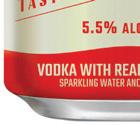

Dezo
These delicious All-Natural Fruit & Vodka Seltzers blend premium spirits with coconut water and other nutrient rich fruits. You can find Dezo this year at the nation's largest electronic music festivals, online and in leading retailers in CA, MA & FL



The Standard Ranch Water - With 100% Agave Blanco Tequila
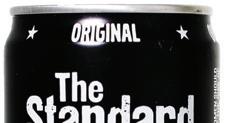
Elm Fork Beverage Company
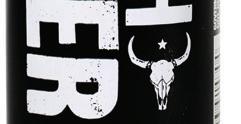

There’s only one way to make a REAL Texas Ranch Water and that’s with pure 100% Blue Agave Tequila. Coming to you from Jalisco, MX - The Original comes in 4pk/12oz cans with fresh lime, no added sugar, and a smooth 5.8% ABV. Raise Your Standard!
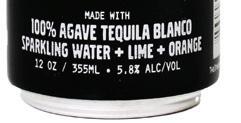
KickStand Cocktails - Real Spirits. Crushable Spice.

KickStand Cocktails
KickStand Cocktails, the vodka-based canned cocktail solely dedicated to spice and made with clean ingredients is available in four flavors: Roasted Jalapeño Cucumber, Smashed Raspberry Serrano, Charred Pineapple Poblano + Torched Peach Chipotle.

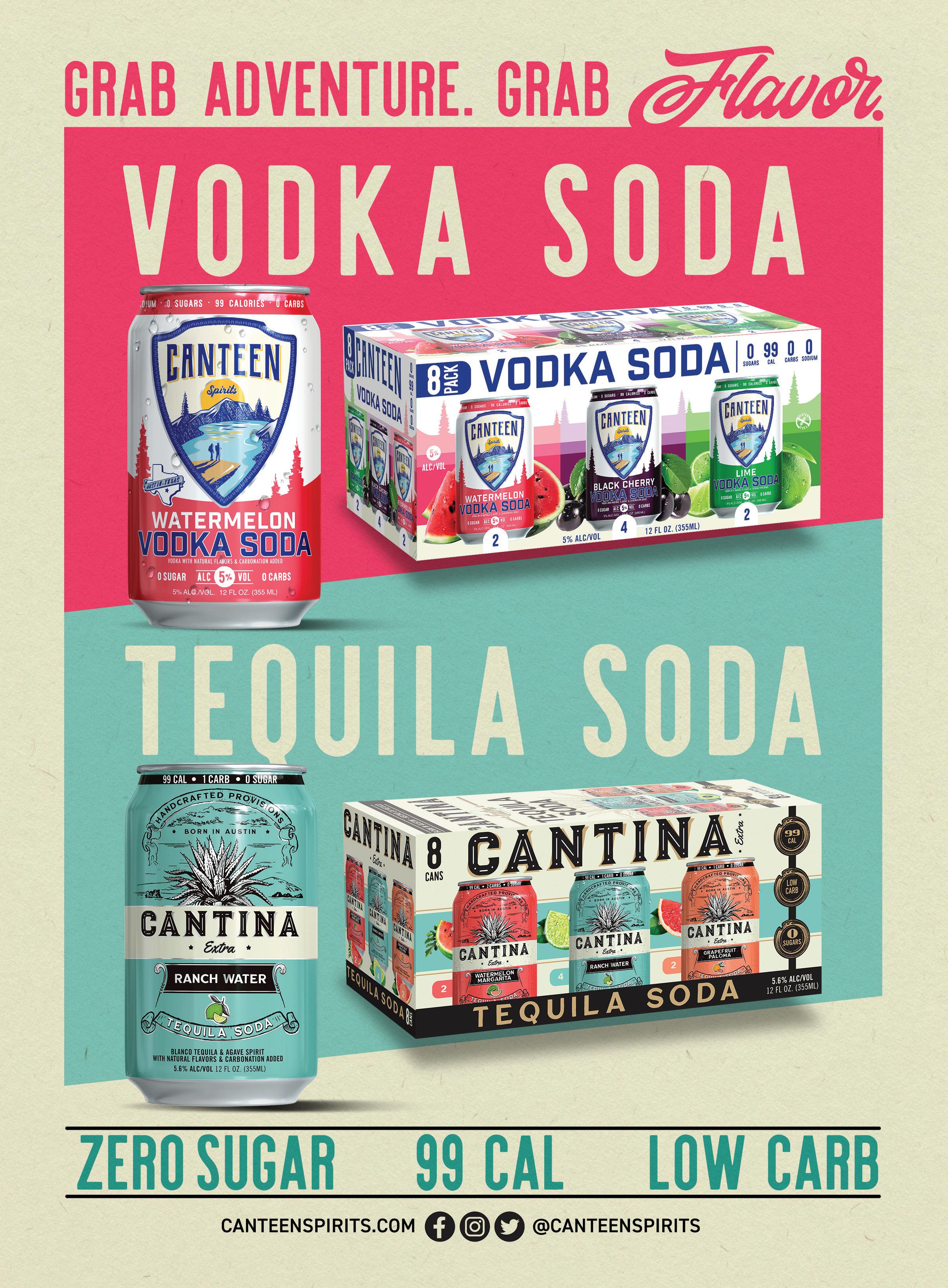
Fishers Island Lemonade Award-Winning Craft Cocktails

Masq Coconut Water made with Rum - 90 Calories, 1 Carb, <1g Sugar

Mixed-Up Cocktails: Just Booze, Juice, and Agave Nectar
Mixed-Up Cocktail Co
Mixed-Up Cocktails promise delicious flavors with clean and simple ingredients. With just booze, natural NFC juices, & a touch of agave nectar to sweeten the deal, these 10% ABV cocktails crack open with the freshness of your favorite bar cocktail.

Stormalong Cider. Always Real, Never from Concentrate.
Stormalong Cider

At Stormalong, we’re committed to quality and taste. We don’t cut corners. We respect the apple, the ingredients, and the process. All of our ciders are made with 100% real locally sourced apples which are freshly pressed and fermented with care.
PA-Produced, Spirit-Based, Ready-toDrink, Canned Craft Cocktails


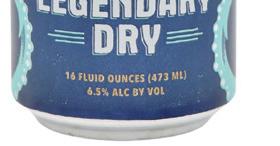
Pure Brands Company
Buena Fé's ("In Good Faith") Organic Tequila Quenchers are made in Mexico using organic 100% agave tequila, organic fruit juices and organic natural flavors.
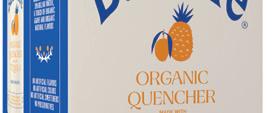
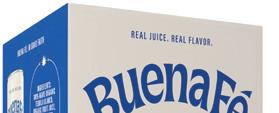
Top Dog Cocktails
12.5% ABV, four upscale, refreshing flavors--our RTD cocktails are made with real liquor & natural ingredients. No malt, no bubbles! Convenient to drink & buy with direct delivery in Pennsylvania. Available in PA & NJ with add'l expansion plans.
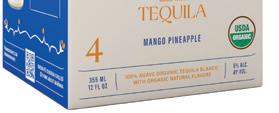








Picadas - New Mexican Hard Aguas Frescas

Picadas
Proper cocktails made with all natural ingredients and 12% ABV. Rivergreen cocktails

Made with real fruit and nostalgic flavors that will transport you to the vibrant streets of Mexico.
Meet The World’s Best Ready-to-Drink Cocktail

Post Meridiem Spirit Co.
Spirited Hive Premium RTD Craft Cocktails Infused with Organic Honey
Spirited Hive

Straighataway: Potent and Astonish Cocktails, Enjoyed Effortlessly Straightaway



Viva Tequila Seltzer, the #1 Hard Seltzer in the World. Viva

VERVET
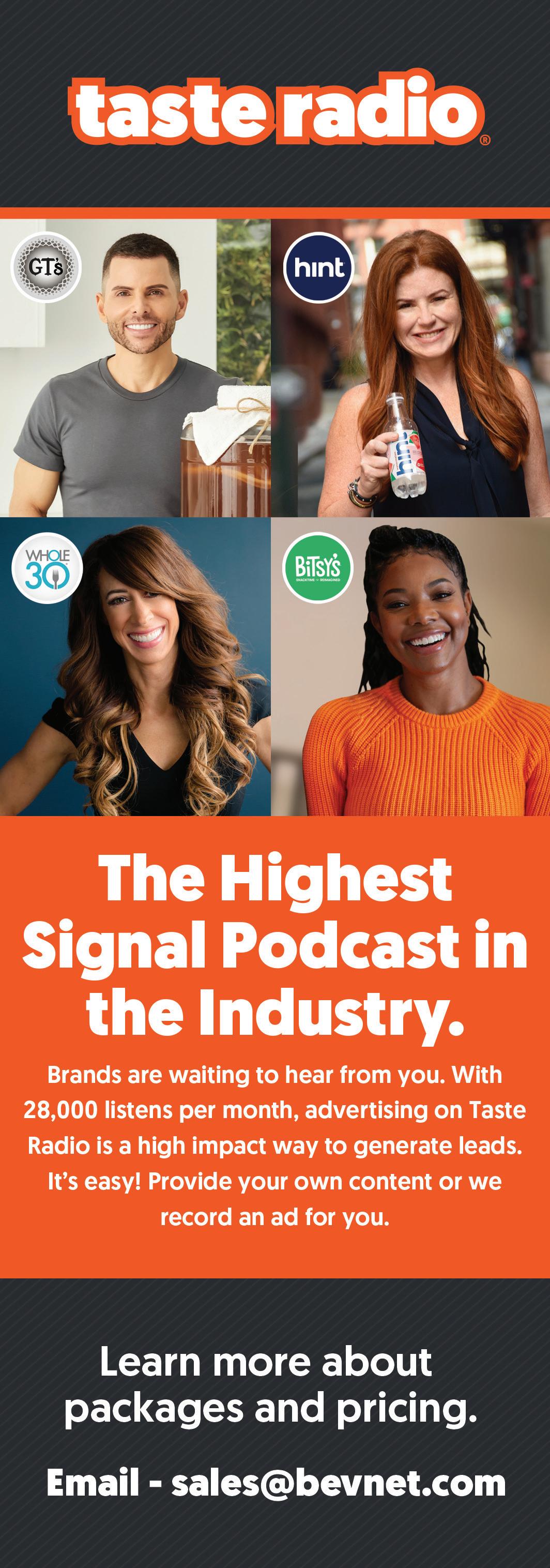
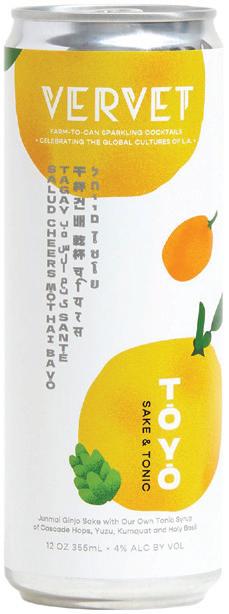
VERVET is bartendermade, woman & minority owned, and inspired by the global cultures of LA. We source seasonally fresh ingredients from California farms, create house-made bitters, vermouth, amaro, and tonic water and use a plant-based preservative!


Almendra Americas, LLC
AZ Laboratories
For over 48years, we've traveled the world to connect people with the finest products. At A. Holliday & Company, we source, test, and ship every product we carry. We supply various bulk tea varieties (extracts & leaf), coffees (extracts), antioxidants, herbal & superfruit extracts, natural caffeine, polyphenols, EGCG, Rooibos, Butterfly Pea powder, and much more. Please contact us.

Flavor Company
Abelei Flavors

Your partner for innovation, reliability and quality. Almendra has been delivering consistently superior natural clean label ingredients to reduce sugar and improve taste of high potency sweeteners for more than 10 years. Proprietary Taste Technology A portfolio of patented and licensed taste modulation solutions. Global Service Stevia expert sales and support in the Americas, Europe and Asia

AZPACK

We have served our clients over the past decade testing a wide variety of beverage products! Ranging from energy drinks to hard seltzer products, we have the grounds covered with our science. Our team is confident in operating and testing through our approved analytical methods to provide you the honest, and reliable results you can count on.
As a flavor manufacturer abelei creates delicious, application-specific flavors assisting our clients in getting to market faster with flavorings that fit their product requirements. abelei specializes in creating great-tasting sweet brown, citrus fruit, soft fruit and other top-note flavors perfect for the beverage, food, dairy, confectionery, health & nutrition, and pet industries.
AZPACK is a Refresco owned facility offering co-packing services in cans and bottles. Our capabilities include high acid, carbonated, still, and alcoholic beverages. Fully automated canning with a 2 million can volume per day, in tunnel pasteurized or cold filled, and variety and multi-packs formats. Kosher, Organic and SQF Level 3 certifications. Visit our website to learn more.
American Canning
In 2022, American Canning, an Austin-based can packaging company, introduced aluminum Toyo Ultimate Can (aTULC) packaging to the United States for the first time in a brand-new, compactconcept can manufacturing line designed specifically for craft.

Developed by Toyo Seikan Group Holdings in Tokyo, Japan, aTULC is an award-winning and trusted technology that promotes an innovative alternative to traditionally manufactured aluminum cans. Rather than applying internal coatings by spray application post production, aTULC cans are made from BPA-free, pre-coated aluminum sheet. This creates a more consistent and robust barrier between the raw aluminum and the can contents, which is particularly beneficial for storing higher-acidity products. Pre-coating also eliminates the need for water and/or any lubricating and washing chemicals within the manufacturing plant. Added benefits of the aTULC liner include minimal flavor absorption and drastically increased shelfstability for hard-to-hold products.
To discover the complete benefits of aTULC and learn more about how this packaging solution not only protects your brand, but the environment as well, contact American Canning. Low minimum order quantities, quick lead times, and volume and bundling discounts available. Brite cans, shrink-sleeve and printed decorations options, all from Austin, TX, USA.
AZ Laboratories will help ensure the safety of your product so you can rest assured when consumers are stocking up their carts with your product. With our fast turnaround times, competitive pricing, and an open representative to help answer any questions at any time, we hope you think of us here at AZ Laboratories to be your trusted laboratory partner.

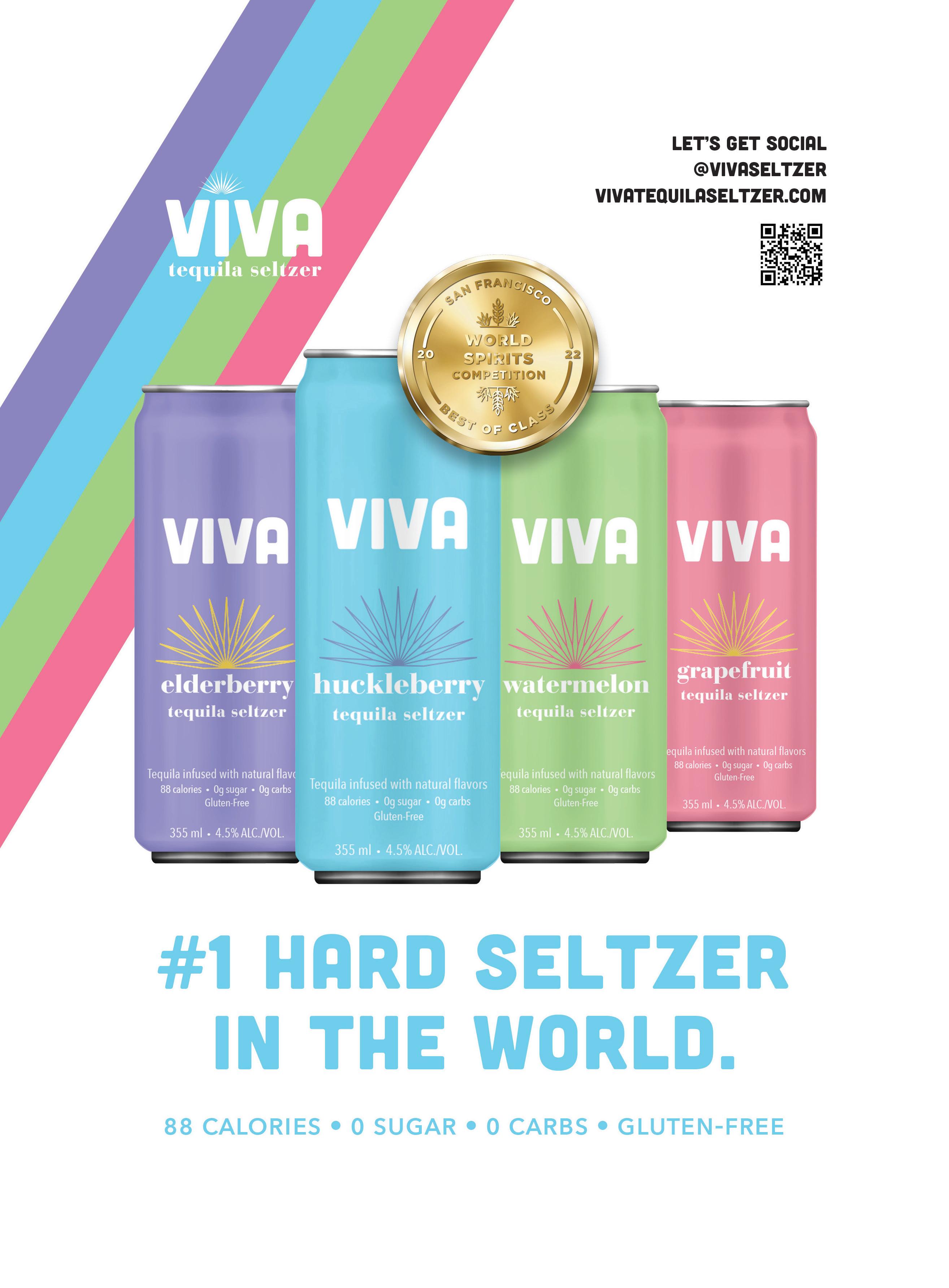
BevSource


Beverage Flavors & Innovation Blue Pacific Flavors
We are trusted by entrepreneurs & established brands alike to commercialize their beverages. Our product development & commercialization knowledge, manufacturing relationships & global sourcing capabilities provide the expertise you need to succeed. Whether you’re looking for ingredients & packaging, or need support with development, pilot production, and quality assurance testing, we can help.

Our focus is to connect your consumer with your brand’s package and message by developing its visual communication, strategy, look and feel. As a full-service agency, we can take the project from an idea to final print. With 30+ years of experience, we know a thing or two about how to win at retail. Make your brand a winner!

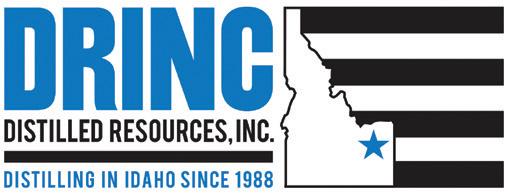
Since 1903, Callisons has created authentic flavors using the highest quality, natural extracts directly from nature. Known as the leader in mint, Callisons develops a diverse portfolio of flavors with a passion for the Beverage, Confection, Oral Care, and Bakery industries. As tastes change and the market expands, we evolve and innovate to remain on the forefront of the next flavor revolution.
Connecting Possibility
Blue Bite
DRINC is a full service premium distilled beverage canning business since 1988. DRINC runs new Krones fully automated counter pressure rotary system and case packer. DRINC can also provide nitrogen drips, turn-key packaging and can supplier options. DRINC offers premium potato & grain vodkas as well as tequila and whiskeys based RTDs and can go from a potato to a can within a 300 foot radius.
Flavor & Product Development for Alcoholic Beverages #MadeBetter Brookside Flavors


Hold
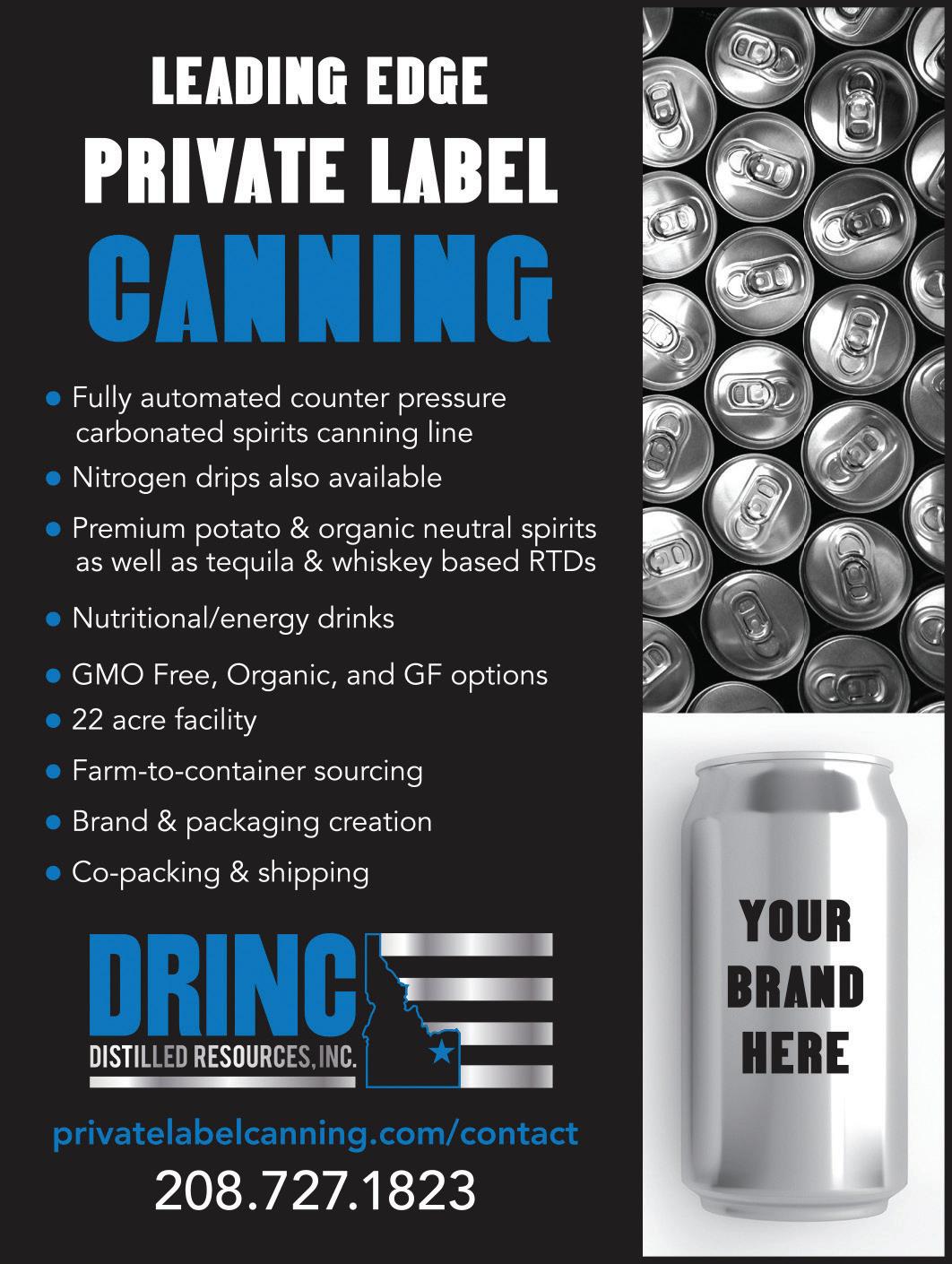
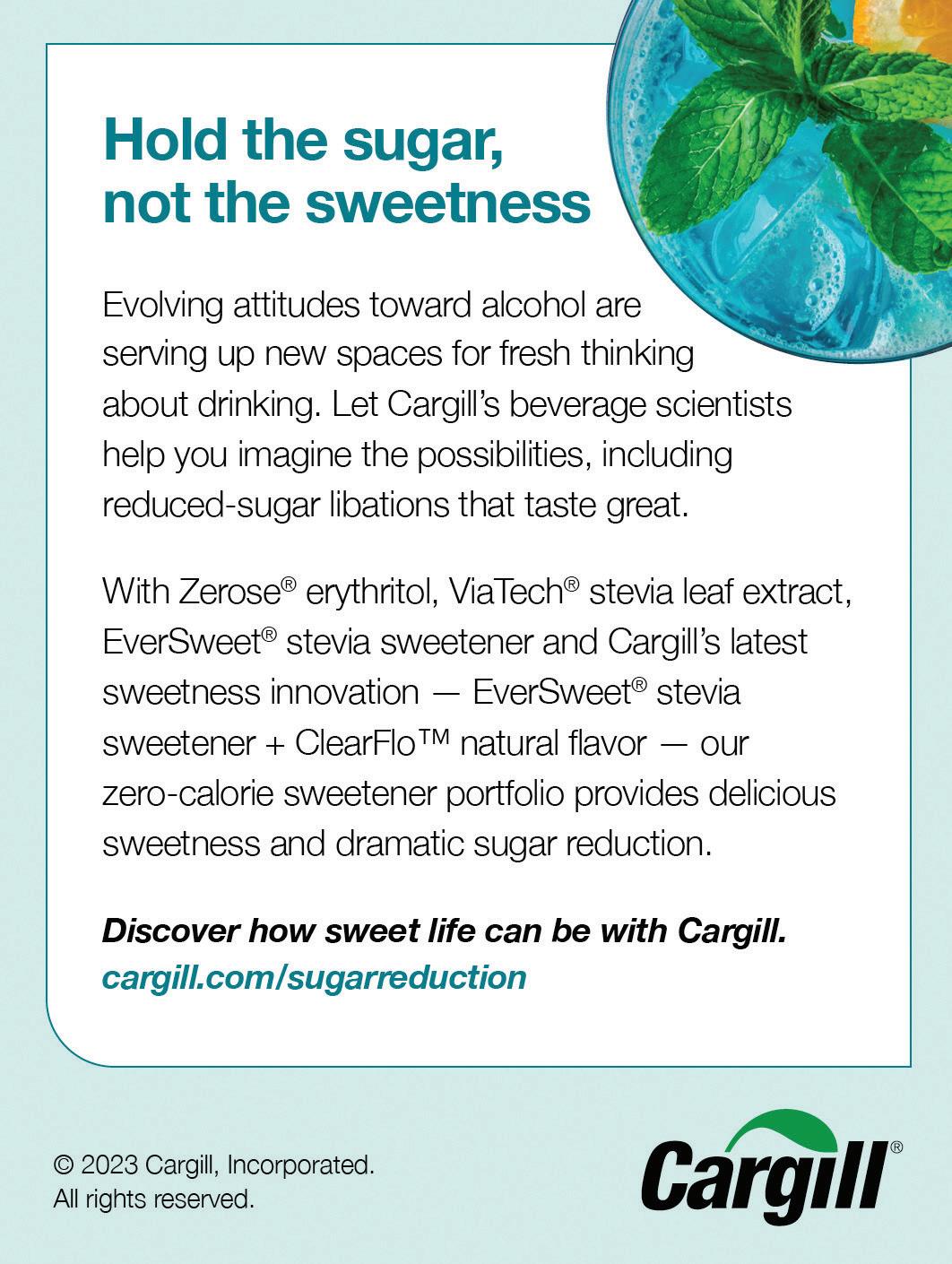

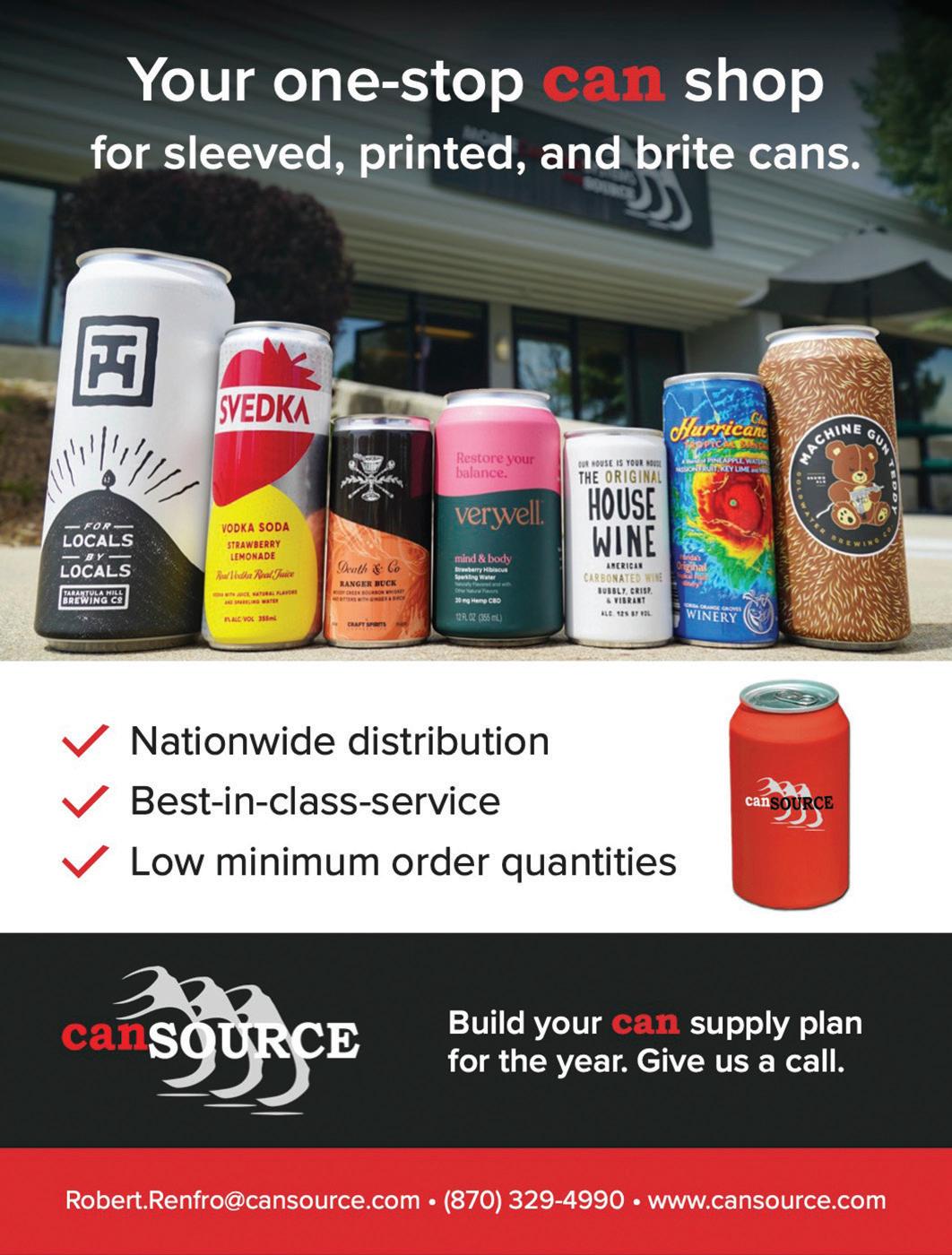
Ready-to-drink products show the fastest growth in the alcoholic beverage segment in North America. Doehler offers complete, all-in-one compound solutions to bring your alcoholic & non-alcoholic RTD cocktails to life, delivering world-class quality & taste while reducing complexity & driving cost efficiencies. Partner with our experts to bring exceptional flavors & solutions to your customers.
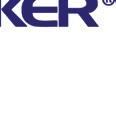

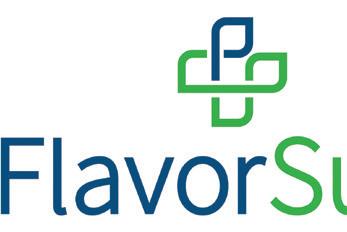


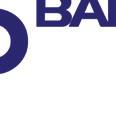





















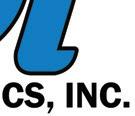


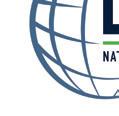



Looking for all natural, premium ingredients for your next alcohol RTD formulation? FFP’s superior extraction process provides on-trend, sustainably sourced, clean label botanicals, tea, cold brew and herbal extracts that work in all levels of proof and provide the authentic flavor profile consumers demand. Add our in-house natural flavor capability for a partner that delivers—FFP.
We are the perfect choice for your beverage flavors. Our experienced team is guided by a commitment to creating innovative, superior quality products. Our "AA" BRC audit grade represents our commitment to food safety and quality assurance. Ask us for your clean label requirements, including Organic, Non GMO, Natural, Gluten free and Vegan. Our team is up to the challenge. Call us today.

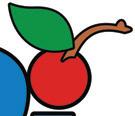
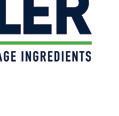
Creating beverages that succeed in the market is collaborative. That’s why our mission at FlavorSum is to become a valued member of your team. By partnering with FlavorSum, you gain access to experts with the speed and agility of a small supplier and the capabilities of a larger manufacturer. From ideation to commercialization, we will work closely with you on your new beverage innovation!
G3 is a leading packaging and logistics provider. G3 provides aluminum cans and can ends with a variety of brite cans sold by the pallet to full truckloads. We have fast turnaround times as cans are sourced domestically and in stock: 100ml, 12oz std & sleek, 250ml, 330ml & 16oz std. G3 offers cost-effective bulk and finished good transportation and 3PL warehousing nationally and regionally.
Flavorman


Welcome to FOODAROM, a proud member of the global Glanbia family. We are flavor designers. We are flavor tastemakers and trendsetters. We are experienced flavorists that create and manufacture the memorable flavors that will have your customers coming back for more. Partnering with food, beverage and nutritional product industries, we deliver turn-key flavors and formulation support. But not just any flavors, we create made-to-order solutions and profiles designed to perfectly meet the flavor expectations of your audience and beyond. In short, unforgettable taste sensations that will put your brand on the tip of everyone’s tongue.

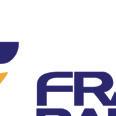

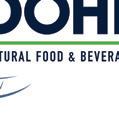
Have a great idea for a beverage? Flavorman can help you bring it to life. Own your custom formula and benefit from value-added services and resources designed for your success—everything from R&D and shelf life testing, to regulatory assistance, pre-production planning, and more. With 30 years in the business, Flavorman is the best partner to help you change what the world is drinking.
Franklin Baker, Inc. is the largest processor of coconut ingredients in the Philippines as the premier supplier to the global beverage & food market. Franklin Baker offers an extensive portfolio of coconut products including Coconut Water, Coconut Milk/Cream, Coconut Concentrate, Creamed Coconut. Our extensive third-party certifications are unrivaled to the highest product standards.


GAIA fruits
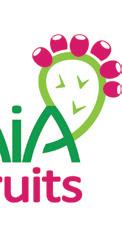
Prickly Pear strengthens the Immune System. It is been attributed with healing properties since it is rich in Bioflavonoids that have strong antioxidant properties and give this fruit its distinctive bright red-violet color, and help the body detoxify and reduce inflammation. GAIA fruits is your trusted supplier of prickly pear puree and concentrate as a functional ingredient with an exotic flavor










Lagersmith Can Supply Co.

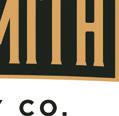

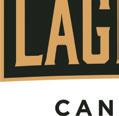



EXBERRY® by GNT is the leading brand of natural colors for the food and beverage industry. Our colors are non-GMO and derived solely from fruits, vegetables, and edible plants through a process of chopping, pressing, filtering and blending. Our team of technical specialists are available to guide customers through each stage of the formulation and upscaling process.
Gusmer Brewing Solutions

Gusmer Enterprises


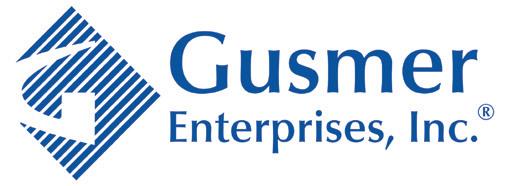
Whether it's a box of digitally printed cans for a photo shoot, a pallet of shrink-sleeved cans for a short run, or a truckload of printed cans after landing your first national account; Lagersmith has been partnering with beverage entrepreneurs since 2012 with our industry-leading low prices. Email sales@lagersmith.com.

We have a full line up of Mix Processors to handle your RTD mixing needs. Our systems’ main operation mix ratio is 1/4 - 1/5 and can achieve outputs ranging from 6 gpm (70 cans per minute) to 265 gpm (2,800 cans per minute). Our processors can be developed for small and large production operation by introducing semi-automated vs fully automated machines. All our machines have the capability of holding quality expectation by means of electronic measurement. Some of the quality points we can monitor are Mix Ratio, CO2 dosing, Brix, Dissolved Oxygen, Product Flowrate Output, and Temperature to name a few.
Since 1924, Gusmer has taken a revolutionary approach to serving the brewer’s vision. It’s why Gusmer offers a full line of solutions for the brewing industry including fermentation and processing aids, filtration media and equipment, analytical products and instrumentation, processing equipment, and analytical laboratory services. Contact your local Gusmer Technical Sales Representative today!
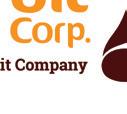


IFPC

Consumers today want it all—you’re balancing the demands of great taste, supply chain challenges, regulatory hurdles and consumer acceptance. The experts at McCormick FONA can help. From ideation to launch, we can create a seamless, winning path for you. Design, develop and scale up using our Beverage Innovation Studio in Geneva, IL or Irvine, CA. We'll bring the best taste solutions to the table.

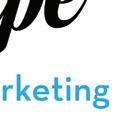



When formulating RTD alcohol beverages, IFPC carries the ingredients needed to create a delicious cocktail experience for consumers. From sweeteners to natural preservatives and more, we stock what you need in one of our 14 distribution centers across the country.

Founded in 2009 in Austin, TX, our shop embodies the best of all our big agency, clientside, and small business experience. We’re powered predominantly by referrals, with clients ranging from startups we help name to Fortune 50 household names. Like the painstaking act of creating a cassette mixtape, we work tirelessly to articulate each client’s unique message in everything we do for them.

Mobile Canning Solutions
Iron Heart Canning Co
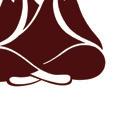

Trust the monk.™

MONK FRUIT CORP.

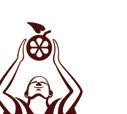

IHC is your solution to guide you through the canning process! With over 250 MILLION cans filled to date, IHC offers unmatched Experience and Expertise. We service the Eastern US and deliver Quality you can count on – Guaranteed seams, All beverage types, All can sizes, Materials sourcing, & Co-Packaging Partners –whatever your situation we can get your product canned. IHC is your one stop shop!
Monk fruit allows you to create great tasting, innovative products with significantly less sugar and calories - all from the goodness of fruit! Monk Fruit Corp is the recognized industry leader, with the best quality and widest variety of monk fruit products and the majority share of the global monk fruit market (more than 3X our nearest competitor). Looking for monk fruit? Trust the monk.™










Flavor Manufacturer

Mother Murphy's Flavors
Tequila wholesale suppliers
San Bartolo Farms, Inc.

Mother Murphy's is a full-service flavor manufacturer dedicated to supporting customer needs through quality and flavor innovation. At Mother Murphy's we specialize in flavor and prototype development for the beverage industry and have over 2,500 TTB flavors in our portfolio that are perfect for RTD Beverages. Team with Mother Murphy's and experience exceptional RTD Alcohol Beverage flavors.
Contract Manufacturer

Looking for tequila for you tequila-based RTD?
Look no further! San Bartolo Farms can provide quality tequila for all your tequila projects. No quantities too big or too small. Reach out today through email or phone and get a consultation!
Saxco International


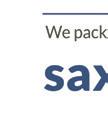


Nor-Cal Beverage Company, Inc. is a full-service Contract Manufacturer with two production facilities in Northern and Southern California. Both locations offer a range of production capabilities and certifications. We also offer finished goods and distribution service centers positioned to supply West Coast fulfillment needs. Family owned and operated since 1937 also Women's Owned Business.


Saxco is a full-service packaging solutions supplier. We have served the distiller, wine, and craft beverage community for more than 90 years and are uniquely positioned as your single source supplier, offering standard glass bottles and cans to fully proprietary packaging solutions, and services including can sleeving, fully automated pack-outs, and more. Get the surety of supply you depend on.






Sensient Flavors and Extracts offers value-added flavors, systems and extracts that bring life to products. We inspire our customers to deliver products that offer multi-sensory experiences that are “just picked from nature.” Thanks to our wide-ranging product library, development teams and cutting-edge facilities, we’re able to implement thoughtful solutions for complex challenges. With industry-leading expertise in the savory, beverage and sweet markets, we provide comprehensive solutions that meet our customers’ flavor, color, and functionality requirements. At Sensient Flavors & Extracts, we use our advanced proprietary development technologies to create fresh, unique flavor systems. Additionally, we have a complete line of masking & flavor enhancing technologies. Particularly in beverage, we have a TrueBoost portfolio that enhances mouthfeel & creaminess, and a natural extract portfolio from named sources.
We are experts in the science, art and innovation of taste. We are market-savvy influencers, grounded in facts and driven by the needs & occasion of our consumers. We are problem solvers,and you are what makes us a collaborator, and a true partner. Together, we can solve the most challenging product puzzles and together, we can make products that are delicious, craveable and truly inspired.


Specialty Food Beverage-PCI

We work with specialty beverage manufacturers and importers covering a wide variety of beverage types to include, alcoholic, non-alcoholic, functional, energy drinks and supplements. Policy types include General Liability, Product Liability, Excess Liability, Property, Product Recall and Ocean Cargo. Very familiar with wholesale and retail insurance requirements for many major vendors.





As the masters of finished beverages and high-quality flavors, we specialize in the custom formulation of both alcoholic and non-alcoholic RTD beverages including cocktails, spirits, mixers, functional shots, flavored waters, teas, sports drinks, and more. Our skilled beverage technologists and talented flavor chemists formulate beverages that deliver extraordinary value to our customers. Whether it is sourcing commercially viable ingredients or masking off notes from additives such as vitamins and minerals, our team allocates resources, facilities, and experience to bring your beverage concept to life. From flavor matching and custom blends to TTB compliance and much more, our highly skilled team of experts is here to offer full turnkey solutions - all while offering low minimum orders and quick lead times.
Statco-DSI is a full-service equipment and integration service provider to the food and beverage industry, with specialties in dry powder mixing, continuous inline blending, as well as de-aeration and carbonation. Operating from 11 offices coast-to-coast, we are able to assist with all of your beverage processing requirements.
Consistent efficiency and high-quality production is more critical than ever. If you're experiencing drags in production, a centrifuge could significantly enhance your process. Trucent sells, rents, and services centrifuges designed for specific applications. With multiple sizes and automation options, Trucent can provide a purpose built system for your needs. Contact us today.

The Key To Commercialization
Struggling to launch a new beverage product? From cost reduction strategies to packaging, and label approvals, we'll help navigate the complexities of formulation, production, and promotional channels. Don't let commercialization challenges get in your way -- Turnkey Bev can support your brand every step of the way. Contact us today for a free, noobligation consultation.

Win at the shelf with Trax Dynamic Merchandising Trax

United Food and Beverage specializes in buying and selling used processing, packaging, bottling and canning equipment for the Food and Beverage Industry. Our 24+ years experience propels United to be a worldwide leader in used equipment. Our 80,000 square foot warehouse is based in the Charlotte, North Carolina region. Services include plant liquidations, rigging, certified appraisals and auctions. Industries that we serve include bottled water, soft drink, dairy, copackers, tea, breweries and food production plants. Quality Late Model assets are our specialty.


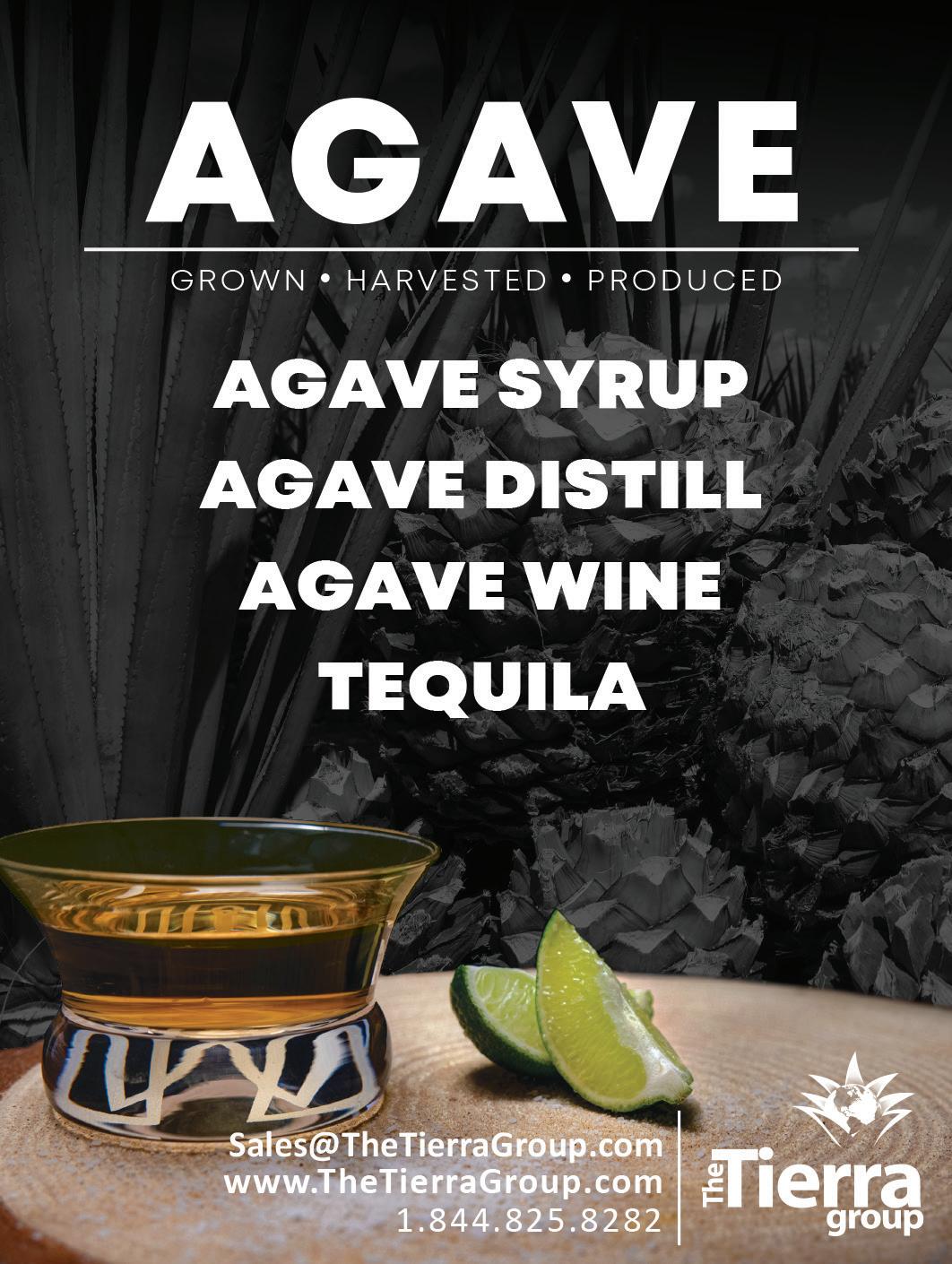
Alcoholic Beverage Formulation
US Beverage Manufacturing
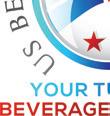
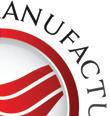

Watermark Design



We offer turnkey alcoholic beverage formulation, development, and manufacturing services for startup beverage companies looking to develop unique beverage ideas. We can help with all ingredients and packaging. We work with alcoholic and non-alcoholic beverages, liquids and powdered drink mixes, and can help manufacture your product in aluminum cans, plastic bottles, or flexible packaging.




Brewery Management Software

Vicinity Software





Since 2007, Watermark has been creating award-winning designs for the beverage industry that also convert to sales. Work with experienced, knowledgeable designers. We begin with your logo and brand, and then we create a package that is true to your story and also stands apart from the crowd. We also can help you with brand outreach, from marketing collateral to online presence.

Beverage Cans & Ends
West Coast Container, Inc.

Connect departments across finance, sales, production & distribution with a first-class feature-set in a cohesive, centralized system. From managing raw materials to creating a complete cost breakdown & meeting TTB compliance requirements, VicinityBrew gives brewers the tools & flexibility to meet the rapidly changing demands of the brewing industry.
We deliver competitively priced packaging solutions to customers of all sizes. Our customer service is second to none. We sell BPANI Printed and Brite cans, along with glass, plastic and closure solutions to meet your everyday packaging requirements. Delivery options include direct full truckloads or purchasing pallet quantities from our convenient warehouse network. Call us for a quote, today.

SVC
Distilling
A. Holliday & Company Inc.
Abelei Flavors
Baruch Los Angeles CA (424) 333-2355 btlsvc.com
Schleef Portland OR (503) 816-9088 503distilling.com
Renken Toronto - (416) 225-2217 teacoff.com
Allegretti North Aurora IL (630) 859-1410 abelei.com
Zabin Decatur GA (404) 395-0219 almendra.com American Canning
Almendra Americas, LLC
Duhaime Austin TX (512) 931-1226 americancanning.com AZ Laboratories
Vu Tempe AZ (480) 955-9870 azlaboratories.com
AZPACK - Tempe AZ (480) 449-7770 azpack.com
Bambucha Kombucha
Iuculano San Diego CA (760) 672-4827 bambuchakombucha.com Berlin Packaging
Loper Chicago IL (312) 869-7501 berlinpackaging.com
BevSource - Saint Paul MN (866) 956-4608 bevsource.com Big Country Organic Brewing Co
Amezcua Austin TX (888) 249-2609 enjoybigcountry.com Big Sipz
Blake's Hard Cider
Blue Bite
Melcher Sausalito CA (719) 640-8327 bigsipz.com
Chelsea Iadipaolo Armada MI (248) 245-1881 blakeshardcider.com
Andy Shartzer New York NY - bluebite.com
Blue Pacific Flavors Roya Sayyah, Lori Banks-Keller City of Industry CA (626) 934-0099 bluepacificflavors.com
Bluebird Hardwater Sam Timberg Manhattan NY (917) 880-1324 bluebirdhardwater.com
Brookside Flavors
Art Becker Chicago IL (773) 677-3065 brooksideflavors.com
Callisons Kim Carson Cincinnati OH - callisons.com
CanSource Robert Renfro Longmont CO (870) 329-4990 cansource.com
Canteen Vodka Soda Brandon Cason Austin TX - DrinkCantee.com
Cantina Margarita Hard Seltzer Brandon Cason Austin TX - drinkcantee.com
Caporale Consulting Mark Caporale Middletown CA (707) 987-9703 caporaleconsulting.com
Cargill - Minneapolis MN (800) 932-0544 cargill.com
Collective Arts Lauryn McLaren Hamilton - (705) 994-4798 collectiveartsbrewing.com
Cornerstone Strategic Branding
Tapia New York NY (212) 686-6023 cornerstonebranding.com
Kost Austin TX (949) 303-0446 countryluau.com Day Chaser Cocktails Holly Wark Middlebury VT (802) 398-2097 daychaser.com
Country Luau Spirits
Dezo Marc Kessler Los Angeles CA - drinkdezo.com
DIO Cocktails Brendan Fee New York NY (970) 316-1870 drinkdio.com
Distilled Resources, Inc Gray Ottley Rigby ID (208) 727-1823 privatelabelcanning.com
Distilled Resources, Inc DRINC Gray Ottley Rigby ID (208) 727-1823 distilledresources.com
Doehler North America Kristy Ellenson Cartersville GA (770) 383-4526 doehler.com
Dry Fly Distilling, Inc.
Terry Nichols Spokane WA (509) 863-7820 dryflydistilling.com
Elm Fork Beverage Company Jack Pettijohn Dallas TX (214) 642-0782 thestandardranchwater.com
Fermented Sciences Inc. Tyler Gage Ventura CA (401) 426-9543 fermentedsciences.com
FFP William Kirkland Lake Mary FL (352) 357-4141 floridafood.com
Fishers Island Lemonade
Flavor Dynamics, Inc.
Dan Pelzar West Hartford CT (860) 605-7128 filemonade.com
Colleen Roberts South Plainfield NJ (908) 822-8855 FlavorDynamics.com
Flavorman Spencer McGuire Louisville KY (502) 289-5549 flavorman.com
FlavorSum Brooke Hutton Kalamazoo MI (800) 525-2431 flavorsum.com
Foodarom
Franklin Baker, Inc.
G3 Enterprises
GAIA fruits
GNT USA, LLC
Noémie Loiselle Salt Lake City UT (801) 975-2604 foodarom.com
John Slade Memphis TN (901) 881-6681 franklinbaker.com
G3 Enterprises Modesto CA - g3enterprises.com
Roberto Garfias San Luis Potosí - +52-444-1595829 gaiafruits.com
Jeannette O'Brien Dallas NC (704) 469-5555 exberry.com
Gusmer Enterprises - Mountainside NJ (866) 213-1131 GusmerBeer.com
IFPC Mathew Brady Fenton MO (314) 422-2324 ifpc.com
Iron Heart Canning Co
KickStand Cocktails
Roger Kissling - - (908) 619-5449 ironheartcanning.com
Darren Rovell Livingston NJ (917) 576-2818 kickstandcocktails.com
Lagersmith Can Supply Co. Nathan Smith St. Paul MN (612) 800-2169 lagersmith.com
Loncaro
Masq Fusions, LLC
McCormick FONA
Mixed-Up Cocktail Co
mixtape marketing
Mojonnier
Monk Fruit Corp.
Mother Murphy's Flavors
NielsenIQ
NOR-CAL Beverage Co
NRS
Joey Rosa Hermosa Beach CA - loncaro.com
Brad Parkes Winchester VA (540) 539-6296 drinkmasq.com
Sarah Hager Geneva IL (443) 618-6903 fona.com
Teresa Dahl-Bredine Silver City NM (575) 654-7357 mixedupcocktail.com
Ben Steckbeck Austin TX (512) 981-7155 mixtapeagency.com
Matt Brinn Streetsboro OH (844) 665-6664 mojonnier.com
Paul Paslaski Libertyville IL (847) 367-6665 monkfruitcorp.com
Michael Oden Greensboro NC (336) 273-1737 mothermurphys.com
Katie Papke Chicago IL (541) 948-5660 nielseniq.com
Pete Grego West Sacramento CA (916) 372-0600 ncbev.com
Elie Y. Katz Newark NJ (833) 289-2767 nrsplus.com
PakTech - Eugene OR (541) 461-5000 PakTech-opi.com
Picadas
Hugo Martinez Austin TX (650) 313-8687 drinkpicadas.com
Pneumatic Scale Angelus Gigi Lorence Stow OH (800) 992-0491 psangelus.com
Post Meridiem Spirit Co.
Pure Brands Company
REV Copack
Andrew Rodbell Atlanta GA (404) 580-1919 postmeridiemspirits.com
Andrew Bushby New York NY (917) 818-8573 drinkbuenafe.com
Extracts
Ska Fabricating
Sovereign Flavors Inc.
Specialty Food Beverage-PCI
Rob Babikan Hoffman Estates IL (847) 558-0427 sensientflavorsandextracts.com
Jake Kolakowski Durango CO (970) 403-8562 skafabricating.com
David Ames Santa Ana CA (714) 437-1996 sovereignflavors.com
Tom Wallace Ballston Spa NY (866) 461-0709 specialtyfoodbeverage.com
Spirited Hive Jack Espy Nashville TN (720) 208-6955 spiritedhive.com
Statco-DSI Process Systems
Stormalong Cider
Straightaway Cocktails
The Tierra Group
Top Dog Cocktails
Top Pop RTD Co-Packing
Trax
Randy Smith Huntington Beach CA (714) 375-6300 statco-dsi.com
Shannon Edgar Sherborn MA - stormalong.com
Caitlyn Pura Portland OR (971) 255-1627 straightawaycocktails.com
Rebecca Goulet Maple Plain MN (763) 479-0788 thetierragroup.com
Matt Satten Chesterbrook PA (734) 717-8792 topdogcocktails.com
Chris Connolly Stamford CT (201) 723-5145 TopPopPkg.com
Georgios Tzafis New York NY - traxretail.com
Tribini Taylor Grant West Chester PA (484) 653-8898 drinktribini.com
Trucent
Turnkey Bev
United Food and Beverage, LLC
US Beverage Manufacturing
VERVET
Vicinity Software
Jeremy Vogel - - (734) 474-8554 trucent.com
Joey Brennan - FL (239) 250-0663 TurnkeyBev.com
Jeremy Sanders Hickory NC (843) 622-8434 unitedfoodandbeverage.com
Zach Mosesian Las Vegas NV (702) 476-1021 usbeveragemanufacturing.com
Loretta Wang Los Angeles CA (626) 321-2960 drinkvervet.com
Jamey Kirsch - GA (470) 579-5274 vicinitybrew.com
Viva Beverages Stephen Thurston - - (813) 705-2627 vivatequilaseltzer.com
Watermark Design Darcey Lacy Charlottesville VA (434) 295-5625 watermark.design
West Coast Container, Inc.
West Peak Sparkling Spirits
Wild Ohio Brewing
Kevin McInerney - - (614) 420-1830 westcoastcontainer.com
Jamie Sanyal Santa Cruz CA (831) 818-3845 drinkwestpeak.com
Russell Pinto Columbus OH (614) 562-4691 wildohiobrewing.com

Tito’s Homemade Vodka splashed into Dry January with its own humorous ad campaign, hoping to prove alcohol brands can still grow brand awareness amid a month primarily dedicated to the sober-curious movement.
Partnering with television personality and home entertaining queen Martha Stewart, the Austin, Texas-based brand transformed Dry January into “DIY January.” The month-long campaign was anchored by a 60-second video starring Stewart that called on those participating in the month-long sober movement to “get crafty” by finding uses for Tito’s in everyday household tasks, such as cleaning mirrors and windows, preserving fresh cut flowers and deodorizing shoes.
“We understand that Tito’s drinkers might choose to opt out of drinking this month to partake in dry January, and we support them in doing that,” said Tito’s VP of brand market-
ing Taylor Berry in a press release. “We’ll still be here when February rolls around, but we wanted to offer up some helpful alternate ways to use our vodka until then.”
To complement the video, Tito’s launched a limited-edition collection of DIY January bottle-topper attachments for consumers looking to try out household tasks themselves. The attachment set includes a deodorizer for spritzing musty fabrics, a “flavorizer” for making penne alla vodka and a “cleanerizer” for cleaning windows and mirrors.
The set of attachments is available online for $10, with all net proceeds donated to a nonprofit group of the consumer’s choice.
The six-track collection was created to celebrate Sprite, Fresca and Seagram’s shift to clear packaging. In July, The Coca-Cola Company announced the venerable Sprite brand, long known for its green bottle, would transition its plastic PET packaging from green to clear, enabling the bottles to be recycled into a multitude of items.
The Coca-Cola Company teamed up with music legend Mark Ronson and Madlib for its ‘Recycled Records’ campaign, which features an original EP made up of sounds taken from the bottle-to-bottle recycling process.

“The Coca-Cola Company is thrilled to have teamed up with Mark Ronson and Madlib to celebrate our portfolio’s transition from green to clear plastic. This sonic partnership is part of The CocaCola Company’s broader World With-
Non-alcoholic beverage brand Proxies recently teamed up with Dominique Crenn, chef owner of Atelier Crenn in San Francisco, to launch its newest innovation, Pétanque.

Like the rest of Proxies offerings, Pétanque is made by blending wine grapes, fruits, teas, spices and complex ferments to “capture everything that makes wine a great pairing with food – without the alcohol.” The new offering features tasting notes of riesling, green apple, kiwi, yuzu and juniper.
out Waste goals,” said Coca-Cola North America VP and general manager, sustainability Kurt Ritter in a press release. “We’re excited about the switch because it increases the amount of high-quality, food-grade recycled plastic available in the marketplace and ultimately allows our brands to use more recycled plastic in their packaging.”
Additionally, the company has released a documentary-style short film that points out the parallels between “the heritage and spirit of music sampling” and the closed loop recycling process.
“For my own blend, I wanted to design something for anyone at the table. Craft ing Pétanque was a truly delightful experience,” said Crenn in a statement. “I wanted to capture the culture and diversity of my new home in California, so we explored different flavors, herbs and textural components that I use in the kitchen to express creativity and our community in the glass.”
Founded in 2021, Proxies produces a line of non-alcoholic wine alternatives crafted for “when you want something to drink but you’re not drinking.” The brand’s core offerings include Blanc State, Red Ember, Red Clay and Pink Salt.
According to Crenn, who grew up in Brittany, France, Pétanque was created to pair with her restaurant’s pescatarian menu with an acid profile that stands up to classic French cuisine. The new offering will soon be released to Proxies Club members and select partners, with a percentage of sales from each bottle going to Crenn’s chosen charitable foundation, World Central Kitchen.








